FR ANCHISE


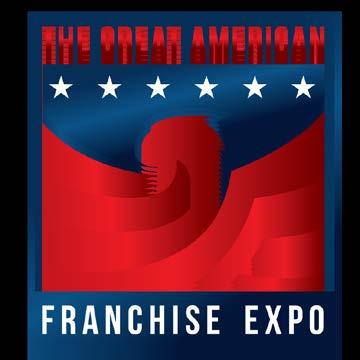


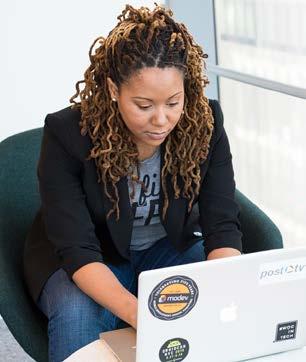









The Great American Franchise Expo is the USA's premier franchise expo series. Experience the power of virtual reality & tour the world's top franchise brands from the expo floor. Educate yourself with the largest & most comprehensive series of seminars on franchising & business ownership.
• Choose from hundreds of concepts in dozens of industries.
• Meet franchise law experts to guide you through the legal process
• Learn about financing options to fund your new business.
• Interact with quality franchise company executives.
PROUD MEMBER
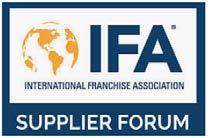

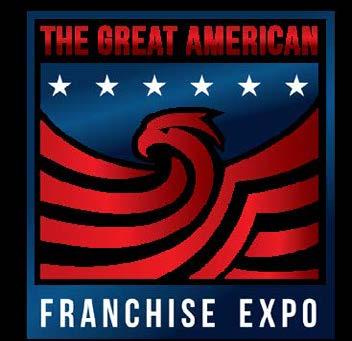
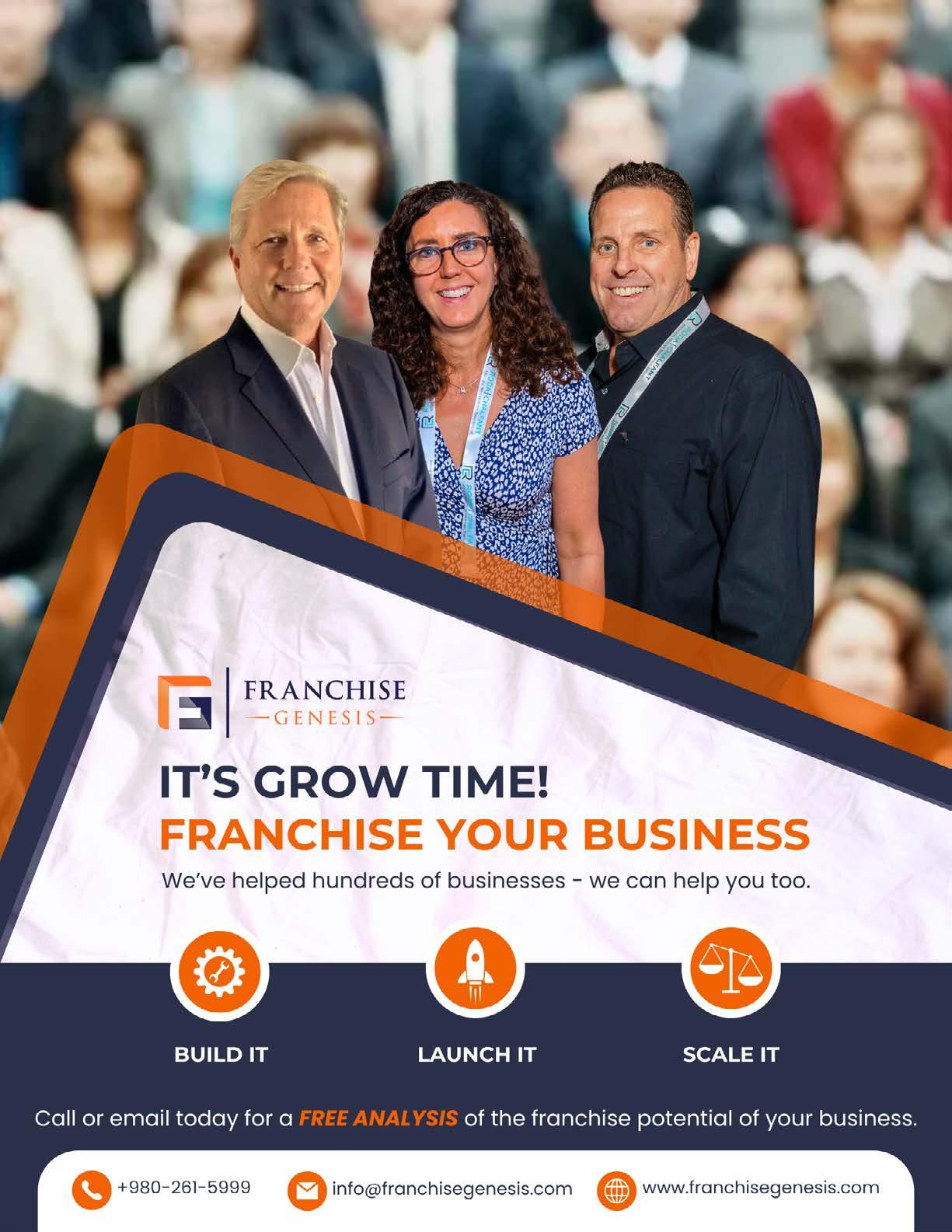

















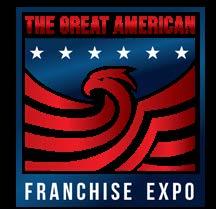















The Wind Beneath Butterfly's Wings: Becky Wang's Journey by Robyn Deering
Jatin Taneja
Very Definition of an Entrepreneur, Connor T. Burns is Proving Pillar To Post’s Executive Model is a Huge Success by Rhonda Sanderson
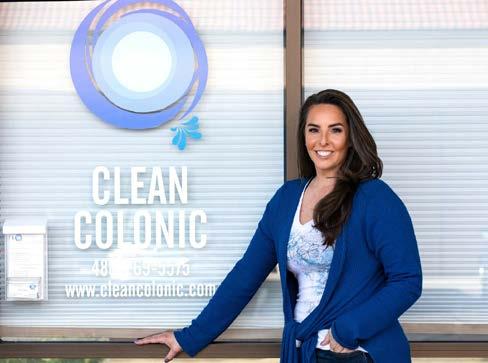


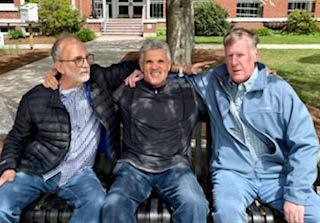
Gameday Men’s Health: The Franchise Game Changer in Men’s Wellness by Joe Carter
Tiwari
How a Local Medical Franchise is Redefining Men’s Health in Nashua by TJ Treat
The 5 Myths of Owning a Senior Care Franchise in 2025 – and the Truth! by Joe Fox
Why Healthcare Franchises Are a Smart Bet for the Future by Jatinder Taneja
Self-Herding: Why You Keep Repeating Yourself — Even When It’s Holding You Back by Mike Martuza
Leaving the Corporate World Helped This Washington DC Area Franchisee Realize His Dream with Floor Coverings International by Rhonda Sanderson

114 BUTTERFLY HOME CARE
A Mother’s Journey, A Community Mission: How Butterfly Home Care Is Empowering Families Through Compassionate In-Home Care by Becky
Wang
118 ELDER-WELL® ADULT DAY PROGRAM
Ahead of the Curve: How Kara Harvey Is Shaping the Future of Senior Care. Again. by Taylor Seitz
122 PERFECT CARE MATCH
Beyond Traditional Caregiving: Perfect Care Match's Integrative Franchise Model is Revolutionizing Home Care by Leah Doroch
126 SubContain: Revolutionizing Medical Waste Collection with In-Ground Intelligence by Anne
Pearce
130 CONTENT RECOVERY SPECIALISTS
Restoring More Than Homes: How Our Franchisees Support Seniors After Fire Loss by Ashley
Taylor
134 FRANMASTERY
Most Franchisors Fail or Fade Away: Here’s How to Beat the Odds by Jeff Dudan
138 IBUY APP
An iBuy App Franchise Leads The Future of Business Advertising by Harold Montgomery
142 ASK THE RESULTS GUY™
Are You Coachable? by Tony Jeary
146 CRAYOLA® IMAGINE ARTS ACADEMY™
Imagine What’s Next: Building a Brighter Future with Crayola® Imagine Arts Academy™ by Tracy Woods
150 MAHANA FRESH
Eat Well, Age Well: How Mahana Fresh Is Serving the Next Chapter of Healthy Dining




A GENERATIONAL SHIFT CREATES A MULTI-TRILLION-DOLLAR OPPORTUNITY
America is experiencing one of the most significant demographic shifts in modern history — the so-called “Silver Tsunami.” Every single day, nearly 10,000 baby boomers turn 65. By 2030, one in five Americans will be of retirement age. By 2040, the 65+ population is projected to surpass 80 million people. This isn’t just a statistic — it’s a seismic transformation of the U.S. economy, healthcare system, and business landscape.
And at the center of this transformation? Franchising.
The senior care and medical franchise sector is exploding as more entrepreneurs realize the potential in serving an aging population with evolving healthcare, lifestyle, and home-care needs. From in-home senior care and physical therapy centers to medical spas, urgent care
clinics, and specialized elder-focused services, franchising has become the driving force that’s reshaping healthcare delivery in America.
THE SIZE OF THE OPPORTUNITY: A $5 TRILLION INDUSTRY
Healthcare isn’t just big — it’s massive. The U.S. healthcare market is expected to exceed $5.5 trillion by 2030, with home healthcare and senior services among the fastest-growing segments. Consider these trends:
• Home healthcare spending is projected to hit $225 billion by 2029.
• Medical franchises now span urgent care, diagnostics, dental, rehab, med spas, and elder care.
• Over 90% of seniors express a desire to “age in place,” fueling demand for personalized, home-based services. Franchise systems are uniquely positioned to
capitalize on this growth because they combine scalability, brand consistency, and operational efficiency. Independent clinics and homecare providers often struggle to manage costs and comply with regulations, while franchises leverage shared resources, centralized training, and established systems to meet consumer demand faster and more effectively.
Franchising thrives in industries where trust, compliance, and consistency are critical — three factors deeply tied to healthcare. For patients and families, choosing a brand they recognize and trust matters. For operators, following proven systems ensures regulatory compliance, strong patient outcomes, and operational stability.
Key advantages of the franchise model in healthcare include:
• Turnkey systems for licensing, insurance, and compliance.
• Shared marketing power and established brand credibility.
• Built-in recruitment, staffing, and operational playbooks.
• Economies of scale on medical supplies, equipment, and tech.
• Fast, scalable expansion into growing markets. This combination has made franchising one of the fastest-growing forces in healthcare, especially in areas like urgent care, senior living, home care, and wellness services.
Senior-focused franchises dominate a significant slice of the market, offering everything from companionship and daily living assistance to memory care and hospice services. These businesses fill a critical gap as America faces a shortage of caregivers and a ballooning elderly population.
Examples of thriving senior care franchise brands:
• Home Instead Senior Care – With over 1,200 locations globally, Home Instead has set the standard for in-home care, helping seniors remain independent longer.
• Right at Home – Specializes in customized care plans and wellness support, empowering franchisees to meet families’ unique needs.
• Visiting Angels – Focused on affordable inhome assistance, this franchise has become a household name for families seeking compassionate senior support.
• Senior Helpers – A leader in dementia and Alzheimer’s care, combining medical expertise with holistic home-based services. Demand for these services will only grow. By 2050, the population over 85 — those most likely to need daily care — will nearly triple. For franchise entrepreneurs, this creates an unprecedented long-term growth trajectory.
THE RISE OF MEDICAL FRANCHISES: A NEW MODEL FOR CARE DELIVERY
While senior care dominates headlines, the medical franchise sector is quietly revolutionizing the patient experience. These aren’t just home-health providers — they span an entire ecosystem of innovative care models designed to meet patients where they are. Some of the fastest-growing categories include:
1. Urgent Care & Walk-In Clinics
Franchises like American Family Care (AFC) and NextCare Urgent Care have capitalized on the growing demand for accessible, affordable alternatives to emergency rooms. With more than 9,500 urgent care centers nationwide, franchising has made same-day healthcare available in nearly every major market.
2. Medical Spas & Aesthetic Clinics
Brands like Ideal Image and Massage Envy’s MedSpa line have turned wellness
THE U.S. HEALTHCARE MARKET IS EXPECTED TO EXCEED $5.5 TRILLION BY 2030, WITH HOME HEALTHCARE AND SENIOR SERVICES AMONG

and aesthetics into mainstream healthcare categories. Consumers are increasingly seeking services like Botox, IV drips, and regenerative treatments, and franchising has allowed these brands to scale quickly while maintaining safety and quality standards.
As Americans live longer, orthopedic injuries, surgeries, and chronic pain are becoming more prevalent. Franchises like FYZICAL Therapy & Balance Centers and Physical Therapy Now are creating accessible, personalized recovery pathways for aging adults and active seniors alike.
4. Diagnostics & Preventive
With preventive medicine on the rise, diagnostic franchises like Any Lab Test Now are tapping into consumer demand for faster lab results, direct access to testing, and lower costs — all without needing a traditional doctor’s referral.
The intersection of healthcare and franchising is being supercharged by technology. From AIpowered scheduling systems and telemedicine integration to predictive analytics and wearable health devices, franchises are leading the charge in making care more efficient and accessible. For example, many home-care franchises now use remote patient monitoring platforms that allow caregivers, families, and physicians to track vital signs in real time. Urgent care franchises are deploying AI-driven triage tools to reduce wait times and improve outcomes. And med spa franchises leverage centralized data systems to customize aesthetic treatment plans at scale. These innovations make franchises nimble, scalable, and attractive to investors — enabling operators to deliver personalized, high-quality care while keeping costs under control.
For entrepreneurs exploring opportunities in franchising, the senior and medical care sector offers one of the strongest growth stories of the next decade. The combination of demographic inevitability, rising healthcare demand, and systemic innovation creates a near-perfect storm for long-term success.
Why now is the time to enter this space:
• The senior population will double by 2040.
• Healthcare spending keeps climbing — and private-sector solutions are in demand.
• Consumers are increasingly comfortable with brand-driven healthcare experiences.
• Franchises allow operators to leverage established expertise while tapping into explosive growth markets.
As traditional hospital systems and independent providers struggle to keep up, franchise entrepreneurs can step in with scalable, standardized, patient-focused solutions that bridge the gap.
The Silver Tsunami isn’t a challenge — it’s an opportunity. The aging population, combined with skyrocketing demand for accessible healthcare, has created one of the most dynamic business environments in U.S. history. Franchises are uniquely positioned to meet these needs, blending proven systems with entrepreneurial agility to deliver consistent, high-quality care at scale.
For investors, operators, and visionaries alike, the next decade represents a golden age of growth in the senior and medical franchise sector. Whether your interest lies in in-home care, urgent care, wellness services, or cuttingedge diagnostic solutions, franchising offers a pathway to success while making a meaningful impact on millions of lives.
In short, the Silver Tsunami is here — and for franchise entrepreneurs, the wave has never been more promising.
Nick Neonakis Editor, Franchise Journal



DESIGN DIRECTOR
Pete Neonakis
DIGITAL DIRECTOR
Chantae Arrington
ART DIRECTOR
Brenda Lesch
SENIOR EDITOR
Joe Fox
SENIOR CONTRIBUTING
EDITOR
Rob Petka
ONLINE EDITOR
Seth Lederman
STAFF WRITER
Megan Neonakis
SOCIAL MEDIA
EDITOR
Ted O'Shea
ASSOCIATE EDITOR
Mariel Miller
ONLINE EDITOR
Greg Gasparini
VIDEO PRODUCER
Matt Panepinto
CONTRIBUTORS
Joe Carter
Robyn Deering
Leah Doroch
Jeff Dudan
Joe Fox
Bob Hays
Tony Jeary
Seth Lederman
KG LeRoy
Mike Martuza
Anne Pearce
Ann Power
Rhonda Sanderson
Taylor Seitz
Michael Stavrinakis
Jatin Taneja
Jack Tiwari
Greg Tuthill
Becky Wang
Nicole Willard
Tracy Woodse





by Seth Lederman, Consultant, The Franchise Consulting Company
The world has long catered to the baby boomers, who have been vanguards in so many ways. This demographic continues to serve as a trailblazer even as they age out of the workforce.Thanks to this aging population, demand is rising for homebased care. That reality, coupled with a growing preference for personalized, in-home support, has made the senior and medical services
franchise sector one of the fastest-growing industries in North America. Investors now have a unique opportunity to step into a market with both strong financial potential and meaningful social impact. Whether you’re an experienced franchise owner or a firsttime investor, seniors and medical service brands offer a combination of resilience, scalability, and community need that few other industries can match.


One of the most compelling reasons to invest in this sector is the demographic shift shaping the market. The U.S. Census Bureau estimates that by 2034, adults aged 65 and older will outnumber children for the first time in history. This aging population will require not only medical support but also a wide array of non-medical services, such as companionship, personal care, and assistance with daily activities.
Additionally, more patients and families are choosing home-based care over institutional settings. Home health and personal care services offer the comfort of familiar surroundings, lower infection risks, and a more personalized approach. This shift has fueled significant growth in the industry— IBISWorld projects the U.S. home care provider market will continue to expand steadily in the coming decade.
From an investor’s perspective, seniors and medical services franchises provide:
“AGING IS NOT LOST YOUTH BUT A NEW STAGE OF OPPORTUNITY AND STRENGTH."
— Betty Friedan
• Strong Market Demand – Driven by both aging populations and healthcare system pressures.
• Recession Resilience – Care needs persist regardless of economic cycles.
• Community Impact –Opportunities to make a tangible difference in people’s lives.
• Multiple Revenue Streams – From companion care to specialized nursing services.
Like any business venture, investing in a senior or medical service franchise has both benefits and challenges. One of the many pros is that a franchise provides established brand recognition. Since franchise systems come with proven business models, operational support, and built-in credibility, you don’t have to work as hard to build a business from the ground up. Another advantage is senior care services often lead to long-term client relationships, creating steady revenue streams.
Additionally, the healthcare field is heavily regulated. Franchisors often provide

comprehensive training to navigate licensing and compliance requirements. There is also room for growth down the road, thanks to the fact that many franchises allow investors to expand into additional services, such as dementia care or chronic disease management, increasing earning potential. To be clear, there can also be challenges with a senior or medical franchise. As mentioned above, it is a highly regulated industry. As a result, some services, especially skilled nursing, require specific certifications, licenses, and adherence to strict health regulations. Finding and keeping qualified caregivers also can be a significant hurdle.
Then there is the emotional and personal nature of the work. Serving vulnerable populations requires compassion and resilience, both for owners and staff. You become involved in people’s lives, which can be a joy and a strain.
Finally, the initial investment for a medical or senior franchise can be more
significant than other franchise areas. While often less costly than medical facilities, home care franchises still require substantial startup capital.
If you’re exploring a seniors or medical services franchise, take the time to research and evaluate your options thoroughly. Here are key considerations:
• Understand Your Local Market – Analyze demographics, competition, and demand for services in your target area.
• Know the Licensing Requirements –Regulations vary by state, province, and country. Confirm the necessary licenses before you commit.
• Assess Your Skills and Interests – This industry requires a service-oriented mindset and comfort with healthcare environments.
• Evaluate Franchisor Support – Look for brands that offer robust training, marketing assistance, and operational guidance.

• Plan for Staffing Needs – Caregiver recruitment is one of the most important success factors in this sector.
• Review Financial Projections Carefully
– Understand both the upfront investment and the time it may take to reach profitability.
Among the leading names in the industry, ComForCare Home Care stands out as one of North America’s most recognized and respected home care franchise companies. Operating 200 territories across the U.S., Canada, and the United Kingdom, ComForCare has built a reputation for delivering compassionate, professional care to clients of all ages. While the largest demographic client base has
traditionally been seniors aged 65 and older, ComForCare’s services extend well beyond elder care. The company provides both non-medical and optional skilled nursing care across the full age spectrum, starting with pediatric clients.
Primary services include:
• Companion and Personal Care
• Chronic Disease Management
• Long-Term Care Support
• Dementia and Alzheimer’s Care
• Skilled Nursing Care (requiring Private Duty Nursing licensing and certification)
ComForCare has earned a place as a Top 25 World Class Franchise every year since 2008, based on franchisee satisfaction rankings by the Franchise Research Institute. The brand has also been featured in major publications such as Entrepreneur, Forbes, Fortune, Inc., and USA Today, further cementing its position as a trusted name in home care.
For investors, ComForCare offers a blend of brand recognition, extensive training, ongoing support, and the flexibility to serve a wide range of client needs. Its diversified services also provide multiple revenue opportunities, from companion care to specialized nursing.
The future for this sector looks exceptionally promising. Advances in medical technology, telehealth, and remote monitoring will continue to enhance the quality and scope of home-
based care. Meanwhile, societal shifts—such as more families living apart and fewer multigenerational households— are increasing reliance on professional caregivers.
Franchises that adapt to these trends, invest in caregiver training, and maintain strong community relationships will be best positioned for longterm success. Furthermore, the emotional satisfaction of helping individuals live with dignity and independence adds a unique dimension to the business opportunity—one that goes beyond financial gain.
Investing in a seniors or medical services franchise is not just a business decision; it’s a commitment to serving some of the most important needs in society. With an aging population, a growing preference for home-based care, and proven franchise models leading the way, the sector offers investors the chance to achieve both financial success and social impact.
Frannexus can help you do your due diligence and choose a reputable brand. We are experts in understanding the unique challenges of franchising. Our goal is to position you for a rewarding and sustainable business venture in whatever field you select.
Seth Lederman, CFE, a Franchise Acquisition and Development Specialist, is a multi-faceted entrepreneur with over 30 years of experience in small business success, including ownership and sale of his business enterprises. He frequently contributes to The Franchise Journal and is on the exclusive Forbes Business Council. Contact him at seth@ thefranchiseconsultingcompany.com.


































































































































F o u n d e d i n 2 0 1 5 , J u n i o r C h e f s o f A m e r i c a ( J C O A ) t e a c h e s k i d s
a g e s 4 – 1 8 a p a s s i
f
h o s p i t a l i t y t h r o u g h c u l i n a r yf o c u s e d S . T . E . A . M . e d u c a t i o n . W i t h f i v e p r o g r a m s u n d e r o n e
s c h o o l , J C O A h e l p s s t u d e n t s
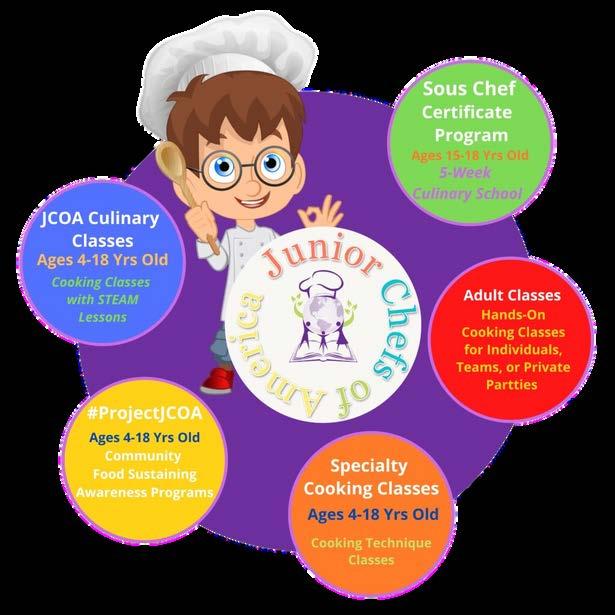







Want your franchisees to focus more on growing their business and not worry about the non-revenue generating, tedious task of bookkeeping? Would you like to see...


Customized Reports on a Timely Basis?
Simplified Bookkeeping Process?
Hours of Data Entry & Errors Eliminated?
Affordable Flat Monthly Fees?
How about Owners better focused on growing their business and maintaining a healthy work / life balance??
No doubt you have a great training process for new owners, but once they get up and running, their primary task should be to SELL, SELL, SELL... to get their business on solid footing so they can grow.
Don’t let them get caught in the trap of trying to handle bookkeeping themselves, it’s not the best use of their limited time, talent, and resources.
We have franchise packages for both new and is not your typical bookkeeping firm... We provide affordable outsourced bookkeeping services to many Entrepreneurs and Small Business Owners across the county using SaaS technology most accounting firms haven’t even heard of, let
www.bookwerks.io/franchise info@BookWerks.io
513-373-7488 x 2
by Alex Neonakis, Writer
I’m 18 years old. A high school senior. On paper, my life is just starting — college applications, thinking about the future, wondering where I’ll fit in. But lately, I’ve been thinking a lot about time and age . About my grandparents getting older. About my parents working so hard. About the economy. About how generations pass the torch without even realizing they’re holding it.
For most of my life, the future felt like something far away — something adults worried about. But now, it’s closer than I imagined. And when I look around at what’s happening in America right now, I see two things happening at the same time:
A massive wave of aging as millions of baby boomers reach retirement.
A new wave of opportunity for my generation to step up, innovate, and build.
These aren’t separate ideas. They’re connected — and franchising might just be the bridge between them.
When you’re young, you think your grandparents will always be there. Mine still make me laugh, still tell the best stories about Greece, about moving to
THE SENIORS OF TODAY BUILT THE BUSINESSES, SCHOOLS, AND COMMUNITIES WE LIVE IN...
NOW, AS THEY FACE NEW CHALLENGES, IT’S OUR TURN — MY TURN, EVENTUALLY
— TO MAKE SURE THEY’RE CARED FOR AND SUPPORTED.
America, about working hard to build a life. But lately, I notice little things — how much more they rely on family, how they talk about doctor visits, how they plan their days differently. And I realize something: we’re living through a huge demographic shift. Every day, 10,000 baby boomers turn 65. By the time I’m 30, one in
five Americans will be over retirement age.
That changes everything — not just for families, but for the economy, for healthcare, and for the kinds of businesses America will need to thrive. Seniors want independence, dignity, and comfort. Families want care they can trust. Communities need solutions.
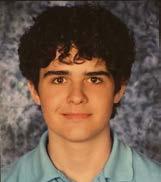
This is what people call the “Silver Tsunami” — and it’s creating challenges and opportunities at the same time. There’s already a shortage of caregivers. There aren’t enough facilities, enough in-home support, enough affordable, accessible services to meet demand.
But here’s the thing: where there’s demand, there’s innovation. And franchising is playing a huge role in answering this call.
Take companies like Home Instead Senior Care, Visiting Angels, and Right at Home. These aren’t just businesses — they’re lifelines. They help older adults live safely at home, give families peace of mind, and create thousands of jobs in local communities.
The healthcare industry in
the U.S. is expected to top $5.5 trillion by 2030. That’s mindblowing. And while that number sounds massive, it represents something personal — millions of lives needing better care and millions of families searching for trusted providers.
Franchising works here because it combines local ownership with national systems. You get consistency, reliability, and a proven model — but the care happens right in the community, delivered by people who know and understand their neighbors.
I’m part of a generation that grew up in a world of constant change — technology, culture, and economics moving faster than anyone expected. That can be overwhelming, but it’s also exciting. Because if there’s one thing I’ve learned, it’s this: there will always be a new generation ready to step in.
Right now, we’re watching millions of baby boomers retire. In the next 10 years, trillions of dollars in businesses, real estate, and assets will change hands. There will be more opportunities than ever for young people willing to learn, to lead, and to take risks.
Franchising makes that possible. You don’t have to reinvent the wheel to start something meaningful. You can partner with a brand, learn from experts, and serve a need that’s only growing. Whether it’s senior care, urgent care clinics, physical therapy, or wellness services, there are paths for young entrepreneurs to build businesses that matter. For me, that’s powerful —
the idea that my generation can build careers and make a difference, especially for families like mine with aging grandparents.
Sometimes I think about what it means to grow up in this country right now. The economy can feel uncertain. Technology is moving faster than we can keep up. And yet, when you strip it down, the story of America is still the same: each generation finding its way, stepping up, and building on what came before.
The seniors of today built the businesses, schools, and communities we live in. They powered the economy for decades. Now, as they face new challenges, it’s our turn — my turn, eventually — to make sure they’re cared for and supported. And franchising offers a way to do it at scale. It gives regular people — people like me, just starting out — a platform to create local solutions with national backing. It creates careers, builds wealth, and strengthens communities. It connects generations in a way that feels rare these days.
When I think about my future, I don’t know exactly what path I’ll take. But I do know this: the opportunities are enormous. The economy is shifting. Healthcare needs are growing. And franchising is unlocking ways for entrepreneurs, young and old, to step into one of the biggest challenges of our time — caring for an aging population — while building something sustainable and meaningful.

It’s easy to feel small at 18, staring at problems this big. But when I think about the businesses being built, the families being supported, and the communities coming together, I feel hopeful. Because even as one generation gets older, another is always ready to rise.
That’s the thing about America — there’s always another chapter being written.
And for my generation, the pen is just starting to hit the page.
Alex Neonakis is a high school student who loves business, history, basketball, and butter chicken. He’s passionate about entrepreneurship, exploring different cultures, and finding the best food spots with his friends.


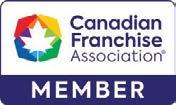









by Bob Hays, Consultant, The Franchise Consulting Company

As populations around the world continue to age, the demand for senior care services is reaching unprecedented levels. This demographic shift is driven by increased life expectancy, declining birth rates, and the aging of the baby boomer generation. In the United States alone, the number of people aged 65 and older is projected to reach over 80 million by 2040, nearly doubling from 2020. This surge presents both challenges and opportunities for healthcare systems, families, and communities—and opens the door for scalable solutions like
senior care franchises to meet growing demand efficiently.
One of the most pressing concerns is the strain on traditional caregiving models. Historically, elder care was provided within families, often by adult children. However, modern societal changes— such as smaller family sizes, geographic dispersion, and dual-income households— have made it increasingly difficult for families to provide full-time care. As a result, professional senior care services, including assisted living, home health care, and skilled nursing facilities, are becoming essential. Senior
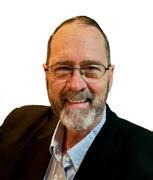
franchises are uniquely positioned to fill this gap by offering structured, professional services that can be rapidly deployed across communities.
The growing need for senior care is not just about quantityit’s also about quality and specialization. Older adults often face complex health issues such as dementia, mobility limitations, and chronic diseases like diabetes and heart conditions. These require trained professionals and tailored care plans that go beyond basic assistance. Many senior care franchises offer specialized training and protocols to ensure caregivers are equipped to handle these challenges, often exceeding the standards of independent providers. Innovations in geriatric medicine, telehealth, and remote monitoring technologies are helping bridge the gap, and franchise systems are increasingly integrating these tools to enhance care delivery.
Senior care faces a range of challenges that impact both
caregivers and older adults. Common issues include managing chronic health conditions, mobility limitations, and cognitive decline such as dementia. Emotional struggles like depression, anxiety, and loneliness are also prevalent, especially among seniors with limited social support. Financial constraints and staffing shortages further complicate care delivery, often leading to inconsistent or rushed services. Safety concerns, poor nutrition, and the stress of transitioning into care facilities add to the complexity. Additionally, caregiver burnout and the risk of neglect or abuse highlight the urgent need for better oversight, training, and support systems in senior care environments. Senior care franchises help address these issues by offering centralized support, standardized procedures, and ongoing staff development—ensuring consistent quality across locations.
High-quality senior care relies on a set of best practices that prioritize compassion, personalization, and coordination. Individualized care planning ensures that each senior’s physical, emotional, and social needs are addressed, while regular in-person contact and home visits foster trust and better understanding. A multidisciplinary team approach enhances care through collaboration among healthcare professionals. Promoting independence with
adaptive tools, coaching in selfcare, and maintaining effective communication all contribute to improved outcomes. Special attention to transitions of care, social engagement, and the use of technology helps streamline services and reduce isolation. Senior care franchises often incorporate these best practices into their operational models, ensuring that franchisees are trained to deliver care that meets or exceeds industry standards. Finally, supporting caregivers through training and selfcare initiatives is essential to sustaining quality and preventing burnout—another area where franchise systems provide valuable resources.
From an economic perspective, the senior care industry is poised for significant growth. It offers employment opportunities
across a wide range of roles—from caregivers and nurses to administrators and tech developers. However, workforce shortages remain a major hurdle. Recruiting, training, and retaining qualified staff is essential to meet the rising demand and ensure high standards of care. Senior care franchises help mitigate these challenges by offering centralized hiring support, competitive compensation structures, and career development pathways that attract and retain talent. Policymakers also have a crucial role to play. Expanding funding for Medicare and Medicaid, incentivizing caregiving careers, and supporting family caregivers through tax credits and respite programs are vital steps. Franchise networks can be instrumental in scaling services to meet policy goals, especially in underserved or rural areas where access to care is limited.

Senior care franchises can play a vital role in addressing many of these challenges. By operating within a proven business model, they deliver consistent, highquality care across multiple locations. Franchises benefit from centralized training, standardized safety protocols, and access to advanced technologies that enhance communication and care coordination. Their scale allows for better staffing, competitive wages, and sustainable operations, while also offering structured support to reduce caregiver burnout. With the

ability to provide both in-home and facility-based care, senior care franchises are well-
positioned to meet the growing and complex needs of older adults in today’s society.
Bob Hays, a Franchise Consultant and member of the Veterans Franchise Council, leverages his firsthand experience as a former franchise owner to provide strategic guidance. He helps individuals and business owners navigate franchise opportunities with informed decision-making and expert support. Contact Bob at bhays@thefranchiseconsultingcompany.com.
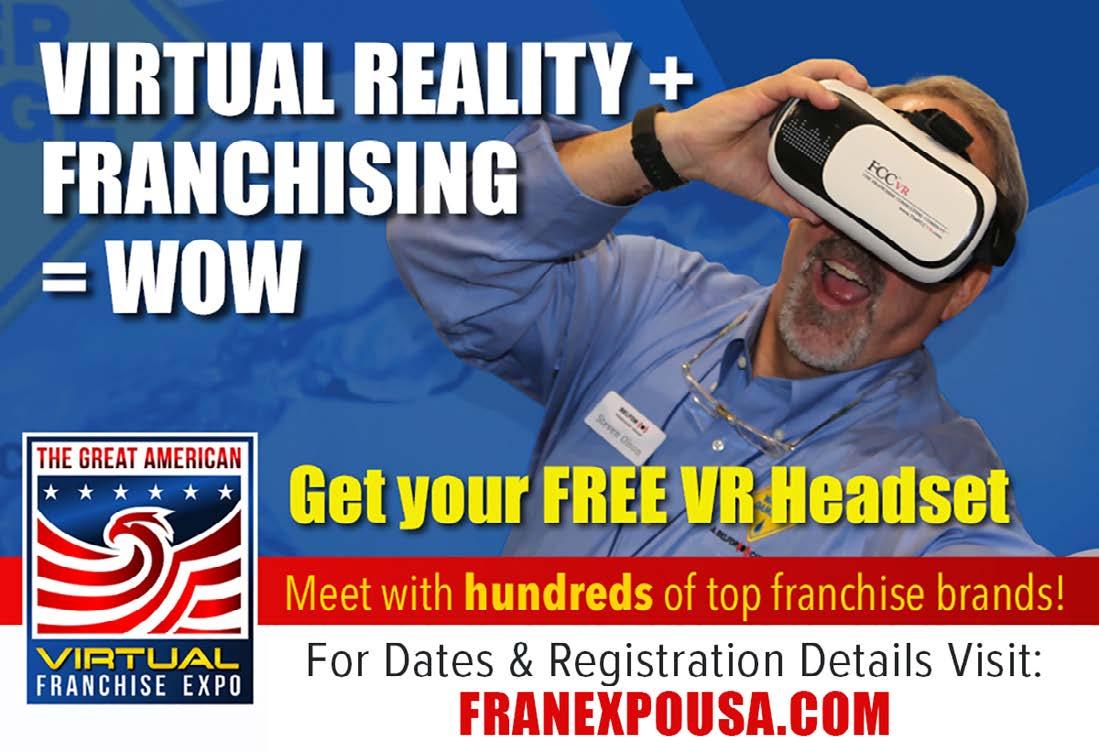









There are 10,000 Baby Boomers in the US who are turning 65 every day. Hearing loss is one of the most prevalent issues people experience with advancing age. Only about one-third of adults with hearing loss find adequate hearing healthcare. 1 in 3 people in the US between 65 and 74 have hearing loss. Nearly half of those older than 75 experience difficulty hearing.
Hear Again America’s methods for addressing hearing loss benefit overall health, quality of life and emotional fitness. Our priority is to help our patients enjoy their customized journey to a lifetime of better hearing.


“ 1 in 3 people in the US between 65 and 74 have hearing loss.”
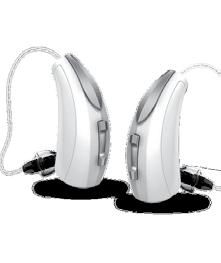
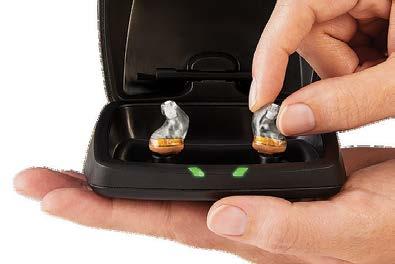
• One of the largest Audiologist-owned hearing aid practices.
• Over 30 locations throughout Florida, Georgia, Maryland & South Carolina.
• Established processes, procedures and programs intended specifically to lead your business and employees to remarkably rewarding success.

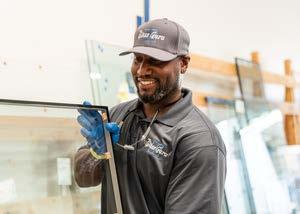




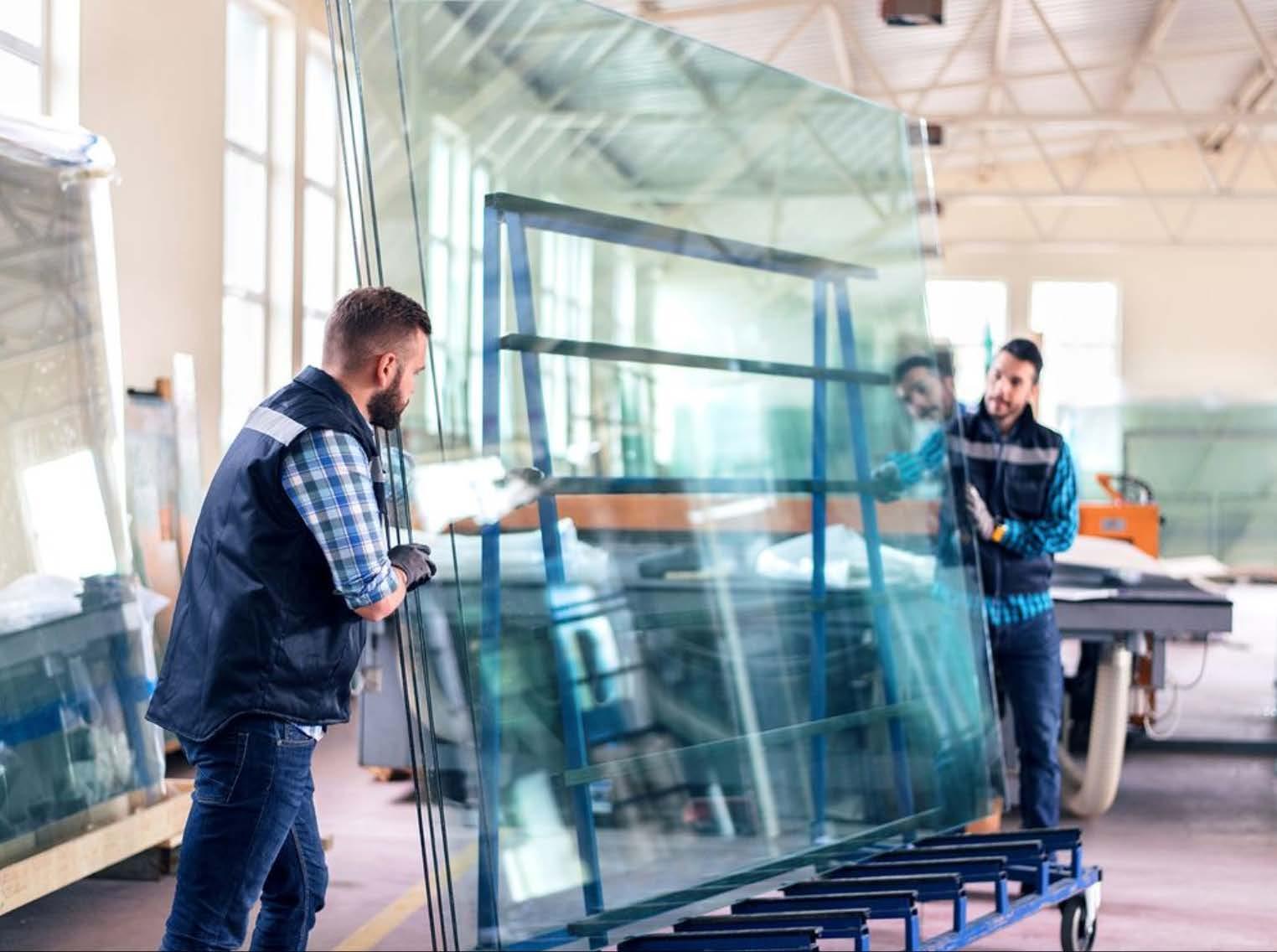


by KG LeRoy, Consultant, The Franchise Consulting Company
By 2030, one in five Americans will be over the age of 65. Hospitals like Mayo Clinic and Cleveland Clinic are pioneering dedicated seniorcare units for fall prevention and memory loss detection. But the real challenge is scale: how do we take these innovations beyond hospital walls and into the everyday lives of seniors?
Franchises in senior care hold the answer. With their ability to replicate services, train caregivers, and maintain consistency, they can expand hospital-tested solutions into
homes and communities nationwide.
SPOTLIGHT: FALL PREVENTION
• 50B+ annual cost of senior falls in the U.S.
• #1 cause of injury-related hospitalizations among seniors.
Hospitals act first: Mass General, Mayo, and others now include fall-risk testing (balance, gait, and medication reviews) in routine care.
Tech steps in:
• Wearables (Apple Watch, Philips Lifeline).
• Radar sensors (Vayyar Home).


“THE FUTURE OF SENIOR CARE LIES AT THE INTERSECTION OF HOSPITAL INNOVATION AND FRANCHISE SCALABILITY.”
• Smart flooring and pressure mats.
Franchise impact:
• Case Study: ComForCare’s “Connected Care” integrates fall detection and wellness monitoring across franchise locations (Franchise.org, 2023).
• Benefit: Fewer readmissions, more trust with families.
• Spotlight: Early Memory Loss Detection
Hospitals lead: Cleveland Clinic Lou Ruvo Center and Johns Hopkins Alzheimer’s Center emphasize early screening. Technology delivers:
• AI speech analysis for subtle cognitive changes.
• Digital games & apps for recall tracking.
• ONSCREEN’s “Joy”: an AI TV companion with reminders, games, and conversations (NY Post, 2025).
• JubileeTV: AI-enhanced set-top box for dementia support (Axios, 2025).
Franchise impact:
• Case Study: Right at Home’s Innovation Task Force pilots cognitive monitoring tools and AIdriven care (Franchise Business Review, 2024). Caregivers become the first line of defense in spotting early decline.
Research Corner
Frontiers in Public Health (2019): Smart homes and wearables extend independence, but seniors worry about cost and privacy (PMC, 2019).
JMIR Aging (2023): Seniors value tech when it supports autonomy, resist when it feels intrusive(JMIR, 2023).
UC Davis I-Care (2024): Integrates calendars, video calls, and cognitive tracking for seniors with impairment (UC Davis, 2024).
= A NATURAL PARTNERSHIP Hospitals validate → Franchises scale.
Imagine: A patient with mild cognitive decline leaves the hospital. Instead of paper discharge instructions, they’re connected to a trained franchise caregiver who installs fall-prevention sensors, monitors memory health, and coordinates care.
Result:
• Hospital lowers readmission risk.
• Franchise gains revenue & credibility.
• Family gains peace of mind.
1. Adopt Hospital-Proven Protocols – Make fall-risk and memory screening part of standard care.
2. Invest in Training –Caregivers must normalize tech for families.
3. Build Partnerships –Position as hospitals’ trusted post-discharge ally.
4. Use Data Wisely – Share insights with providers while protecting privacy. Hospitals are innovating. Universities are researching. Startups are piloting. But without franchising, these solutions will remain siloed. By embracing fall prevention, early memory loss detection, and technology-enabled caregiving, senior care franchises can transform from service providers into essential healthcare partners. The opportunity is profound: to help millions of seniors
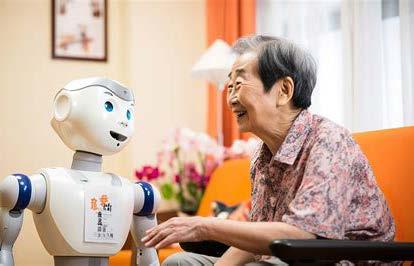

live longer, safer, more fulfilling lives — and to do it at scale, with dignity and innovation hand in hand.
KG LeRoy is a purpose-driven entrepreneur and seasoned data and technology leader with 25+ years of experience at global organizations including Tata Consultancy Services, Merrill Lynch, the Federal Reserve Bank of New York, and Deloitte Consulting. An MBA graduate of NYU Stern, he has led high-impact teams, driven strategic transformations, and built trusted professional networks across industries. Alongside his corporate success, KG has embraced a higher mission: helping individuals and families transform their lives through purposedriven collaboration with financial professional services, real estate, and franchising. Today, he is dedicated to enabling others to align with their calling, create meaningful income streams, and co-build a caring and prosperous world. Contact KG at KG@ TheFranchiseConsultingCompany.com.

D r y w a l l r e p a i r s p e c i a l i s t s o f f e r i n g
h i g h - q u a l i t y , s a m e - d a y r e p a i r
4 0 + Y e a r s o f f r a n c h i s o r e x p e r i e n c e
N o i n v e n t o r y h e a d a c h e s o r
h i g h p a y r o l l , w h i c h l e a d s t o
p o t e n t i a l l y s p e e d y p r o f i t a b i l i t y
N i c h e h o m e s e r v i c e b u s i n e s s
o p p o r t u n i t y w i t h m i n i m a l
c o m p e t i t i o n
P r o p r i e t a r y b u s i n e s s d e v e l o p m e n t
t o o l s f o r c o n t i n u e d g r o w t h
6 0 - 9 0 r a m p - u p








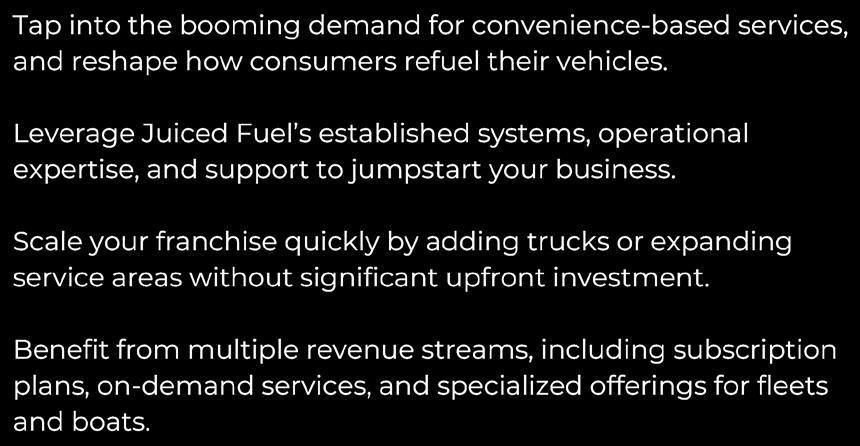


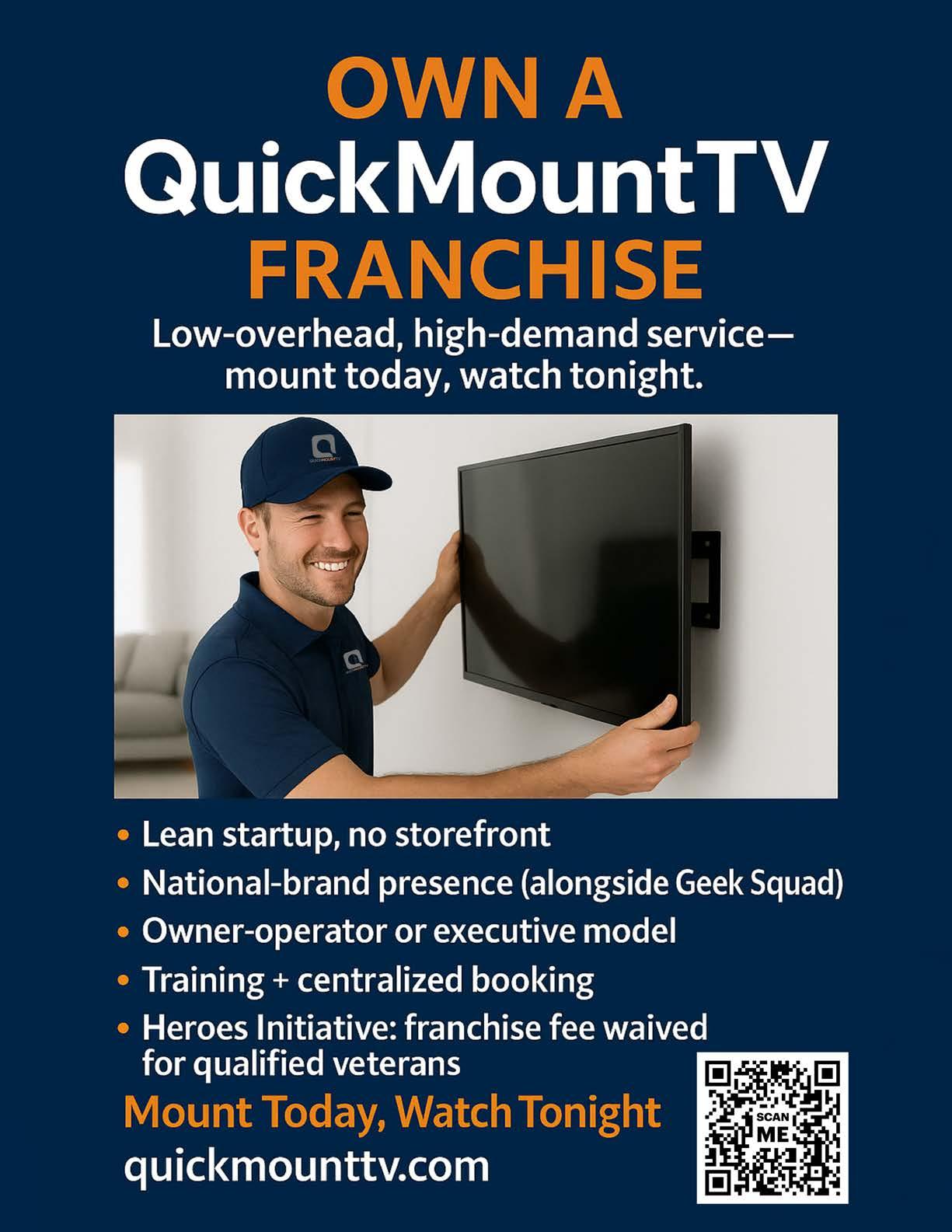
by Jatin Taneja, Consultant, The Franchise Consulting Company
The demographic shift towards an increasingly elderly population presents a significant opportunity within the healthcare sector, particularly for home health services. The global "silver tsunami" of older adults desires to "age in place," creating unprecedented demand for home healthcare services, from non-medical to skilled nursing. This robust market offers substantial financial and societal potential for entrepreneurs and investors. This article explores the compelling rationale for entering the home health sector via the franchise model, emphasizing the benefits of established brands and support for sustained market expansion.
The home healthcare industry is booming, projected to reach $666.9 billion by 2030 with an 8% CAGR. This growth is fueled by the aging Baby Boomer generation, as 90% prefer to age at home. Home care franchises offer vital nonmedical and skilled nursing services, proving resilient to
BILLION BY 2030 WITH AN 8% CAGR.
economic fluctuations. With 11,500 businesses generating $11 billion annually and employing 400,000, this sector is a robust and promising investment opportunity. Advantages of owning a Home Health Franchise Model
Adopting a franchise model for entry into the home healthcare sector offers distinct advantages over independent ventures:
• Access to a Continually Expanding Market: The ongoing increase in the aging population ensures a consistent and growing client base. With an estimated 10,000 Baby Boomers reaching age 65 daily, the demand for

in-home care—spanning chronic condition management, postoperative recovery, and daily assistance—is on an upward trajectory, positioning a home care franchise as a strategic investment.
• Leveraging Established Brand Recognition: A significant challenge for new businesses is cultivating trust and credibility. Investing in a home healthcare franchise provides immediate access to an established brand's reputation. Consumers and their families are more inclined to select a familiar name associated with quality and reliability. Brands in the senior care franchise domain offer franchisees instant credibility and a competitive advantage within their local markets.
• Comprehensive Training and Operational Support: Unlike independent startups, home healthcare franchises typically provide extensive initial training and ongoing support. This is particularly beneficial for individuals without prior healthcare experience. Franchisors
equip franchisees with the necessary knowledge and skills. This robust support system, encompassing operational guidance and marketing strategies, significantly reduces the learning curve and facilitates rapid operational readiness.
• Adherence to a Proven Business Model: Franchisors have meticulously refined their operational processes, from client acquisition methodologies to staff management protocols, thereby eliminating the need for franchisees to develop these from scratch. This established model mitigates risk and enhances the probability of profitability. Healthcare brands offers a scalable system honed over years, integrating compassionate care with efficient business practices.
• Diversified Revenue Streams: Franchisees can provide non-medical care (e.g., companionship, personal care), skilled nursing, or specialized services such as dementia care. This flexibility allows for catering to diverse client needs while optimizing revenue potential. Good healthcare brands excel in offering a blend of inhome care services and assistance with senior living navigation, broadening its market appeal and income generation capabilities.
• Profound Societal Impact: Beyond financial considerations, owning a senior home care franchise

offers deep personal and professional fulfillment. Franchisees provide essential services that significantly enhance the quality of life for seniors and offer peace of mind to their families. Whether facilitating post-surgical recovery or enabling continued independence, the work performed has a tangible, positive impact. This sense of purpose is a primary motivator for many franchisees and a key differentiator of home health care franchises.
The financial landscape of home health franchises presents a compelling proposition for investors:
• Comparatively Lower Entry Costs: While initial investment varies, home care franchise opportunities generally require less capital outlay compared to other franchise sectors such as food service or retail. Startup costs may range from approximately $115,000 to $270,000, encompassing franchise fees, equipment, and initial marketing. This is considerably less than the substantial capital required for certain other franchise types. Furthermore, many franchisors offer financing options or incentives, such as veteran discounts, to lower entry barriers.
• Significant Profit Potential: Industry data indicates that established senior care franchises can
CAN ACHIEVE AVERAGE ANNUAL GROSS SALES EXCEEDING $1 MILLION, WITH TOP PERFORMERS REACHING EVEN

achieve average annual gross sales exceeding $1 million, with top performers reaching even higher figures. Good franchisors provide franchisees with access to large, protected territories (over 350,000 people), facilitating scalability and competitive advantage. With typical royalty fees around 5-7%, a significant portion of generated revenue remains with the franchisee.
• Recession-Resistant Stability: During periods of economic downturn, while discretionary spending may decline, the imperative for senior care remains constant. This intrinsic resilience offers franchisees financial security and confidence, ensuring business continuity even during challenging economic times.
• Scalability for Sustained Growth: As the client base expands, franchisees can strategically increase staffing, broaden service offerings, or even acquire additional territories. Multifranchise owners can successfully leverage the brand’s support and systems to build thriving operations over extended periods.
• Synergy of Community Impact and Profitability: By creating local employment opportunities for caregivers and serving families in need, franchisees contribute to the local economy while simultaneously building a sustainable business. This dual benefit of profit and purpose makes initiating a home care franchise a uniquely attractive entrepreneurial venture. Home healthcare franchises offer a compelling investment.
This growing industry, driven by an aging population's preference for in-home care, provides significant financial rewards and the satisfaction of helping others. Leveraging established brands, training, and proven models, entrepreneurs can mitigate risks and build resilient, profitable businesses. These scalable, recession-resistant franchises offer both financial success and positive societal impact, making them a strategic choice for future business ventures.
Jatinder Taneja is a seasoned franchise consultant with over 20 years of experience in business and entrepreneurship, helping individuals find the right franchise fit aligned with their goals. His strategic insight and personalized approach empower candidates to make confident, long-term decisions in franchising. Contact Jatinder at Jatin@TheFranchiseConsultingCompany.com.
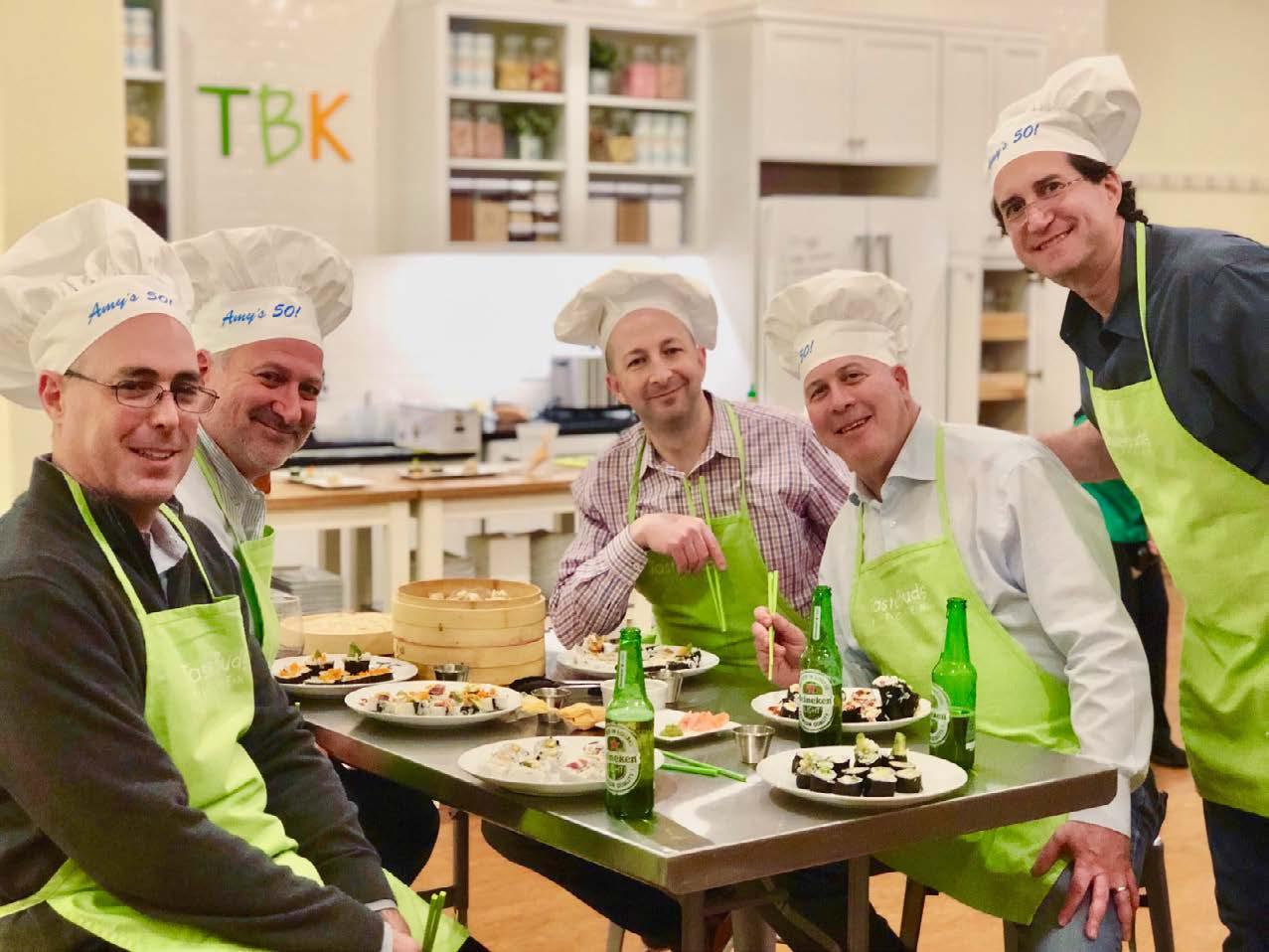






























































• Professional B2B Payroll & Workforce Management Services Business
• Low Capital Investment <$100K
• Recurring Revenue/Exceptional ROI
• No Retail Build Out & Quick 90 Start Up
• Full Training & Ongoing Support Leveraging Top Technology


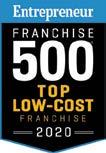
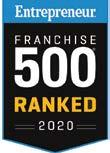













by Robyn Deering, Consultant, The Franchise Consulting Company
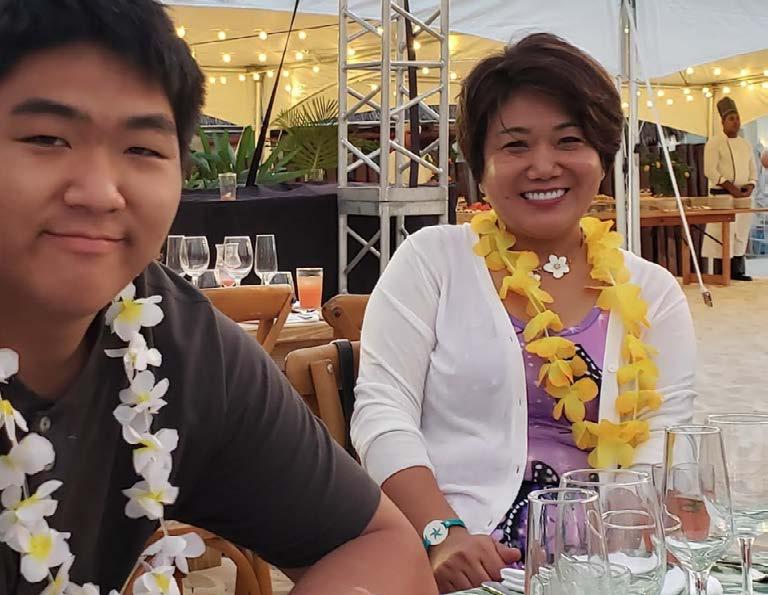
At 24, former software engineer Becky Wang thought perfection was the answer to everything. Then autism entered her world and everything changed.
Founding a franchise requires such soft skills as kindness and the ability navigate a complex system of services to the aging and autistic populations was not on her radar at all. "I was very detail-oriented and
had a strong desire to make everything perfect." While her son struggled to sleep through the night until age 10, she did her best to keep a perfect home after grinding through a high-level corporate job. “I was bringing files home and working till 2 a.m. and trying to get by for years on 3 to 4 hours sleep.”
Her breaking point became her breakthrough. "I realized life is not perfect, my house


does not have to be perfect. I became more flexible. I learned to relax.” She laughs. “I learned to give myself a break!"
That flexibility would prove essential when Wang faced her son's teacher's gentle suggestion about autism. "I just cried. I had never heard of the word autism," she admits. Growing up in China, she resisted labels and help until her son was six years old. It was then she discovered the comprehensive support system available in the United States.
Studies by the American Pediatric Association also point to the complexity of services needed because autistic individuals, particularly those with co-occurring medical conditions, require diverse and specialized healthcare services across various settings. The Center for Disease Control's Autism and Developmental Disabilities Monitoring (ADDM) Network reported a significant increase in autism prevalence, with a 2022 estimate being 1 in 31 eight-year-olds and predicted continued increases in prevalence and improvements in early identification could indicate
increasing need for services.
Securing support services for her family and herself ushered in a gradual but profound transformation . "I started seeing my life get better and improvements in my son. So, I started helping a couple of friends and I saw their lives get better,” she recalls. “That is when I saw there was more I could do."
This realization set in motion her determination to create Butterfly Home Services, a franchise dedicated to supporting families navigating autism with a leadership philosophy centered on the lessons her sons taught her: “I have to thank my sons for teaching me so much about being strong when I was doing my best to split my time between my two sons, one who has autism while the one who does not played football. When I realized I can not do it all, they taught me to rely on my team. My team is like family to me and each and every one of them is a great support because they are compassionate people who have helped me develop a culture that allows everyone to grow.”
Her approach to selecting franchisees reflects this wisdom. "They have to be kind people, people with empathy," Wang explains even organizational skills are a distant secondary skill she looks for in future owners. "The most important thing is just that they are a nice person, a really kind person."
Business skills can be taught; compassion cannot. Without
a compassionate advocate, many families and their autistic loved ones miss out on services that can vastly improve the quality of their lives, Wang believes.
The metamorphosis from a Mom seeking solutions for her family to a franchisor founding a meaningful and profitable franchise, has been more than cathartic. Beyond the benefits to multiple communities and new business owners, the impact on her family runs deep. Her autistic son once wrote her a note on torn paper that she keeps for daily inspiration: "Mom, I love you most in the whole wild world." His younger brother mastered the challenges of having a sibling with autism and grasped the rewards of emotional regulation at an early age. In the silence between unspoken words, Wang feels their appreciation of her unrelenting effort to provide each of them the best life possible.
"Our family has learned what it really means to be responsible and that it is not all about being perfect," Wang reflects.
From a perfectionist engineer to an empathetic leader, Wang's journey embodies the metamorphosis her company name suggests—proving that sometimes the most beautiful transformations come from life's unexpected challenges.
Robyn Deering is a franchise consultant in southwest Florida and author of the upcoming 'Corporate Refugee's Guide to Franchising: Trade Job Insecurity for Business Ownership That Works.' Contact Robyn at Robyn@ TheFranchiseConsultingCompany.com.

"I REALIZED LIFE IS NOT PERFECT, MY HOUSE DOES NOT HAVE TO BE PERFECT. I BECAME MORE FLEXIBLE. I LEARNED TO RELAX... I LEARNED TO GIVE MYSELF A BREAK!"
— Becky Wang, Founder of Butterfly Home Services


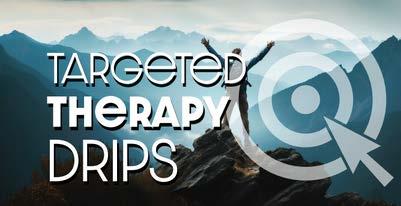









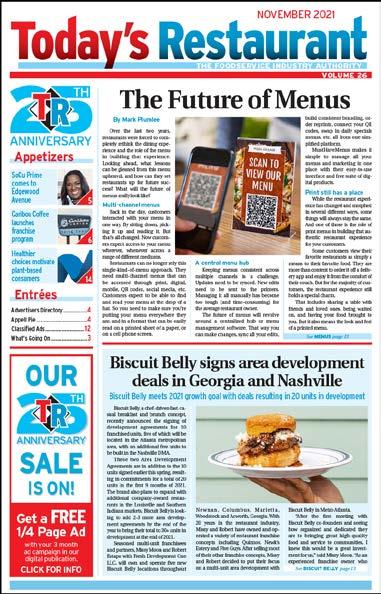

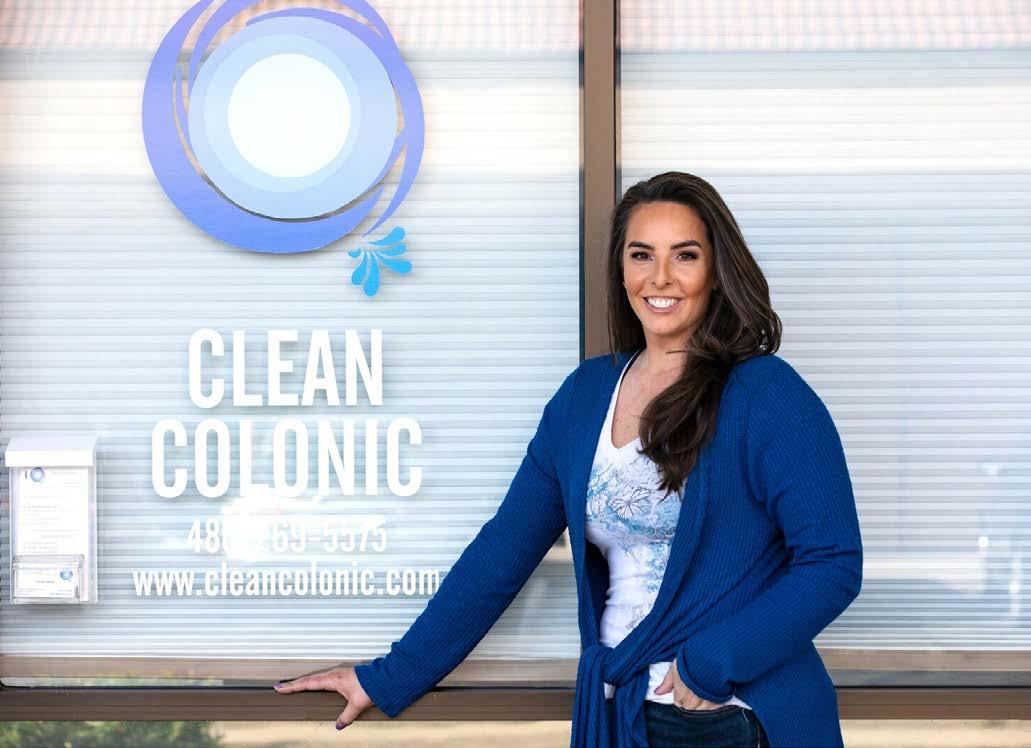
by Greg Tuthill, Consultant, The Franchise Consulting Company
In today’s fast-moving wellness market, one truth is clear: Americans are taking gut health seriously and they’re willing to invest in solutions that deliver real, lasting results. With digestive health now a top priority for millions, Clean Colonic, a leader in professional colon hydrotherapy, is launching a nationwide franchise
expansion at the perfect cultural moment.
Founded in 2016 by wellness advocate Carolyn Berry, Clean Colonic has grown into a trusted brand with multiple thriving Arizona locations. What began as Berry’s personal health breakthrough is now a mission to make colonics once considered niche, a mainstream wellness essential.

Over the last decade, gut health has exploded from a niche interest into a full-blown movement. Once buried in alternative health circles, conversations about probiotics, the microbiome, and digestive
balance now dominate social media feeds, health podcasts, and medical conference stages. Several cultural shifts are driving this transformation:
• The “Second Brain” Revelation: Research confirming the gut’s direct link to mental health, immunity, and energy has changed public perception.
• Preventative Over Reactive: Consumers want to invest in wellness before symptoms become illness.
• Holistic Over Pharmaceutical: Millions are turning to natural, noninvasive methods instead of lifelong medication.
• Influencer-Led Education: Wellness influencers, functional medicine doctors, and TikTok health coaches are normalizing colonics as a key step in detox and self-care.
Berry explains, “The social conversation has shifted. People aren’t embarrassed to talk about digestion anymore, they’re proud to take control of it. Colonics are no longer a secret; they’re a status symbol of wellness.”
Colonics aren’t new, but Clean Colonic has elevated the industry standard. Using FDA-registered Class II medical devices, the process gently cleanses the large intestine, removing built-up waste and supporting detoxification without discomfort or odor. Sessions are private, spa-like, and handled with the highest sanitation standards.
“WE’RE GOING TO MAKE GUT HEALTH MAINSTREAM. WITH THE RIGHT PARTNERS, CLEAN COLONIC WILL BE AS COMMON AS A MASSAGE OR FACIAL — AND WE’LL CHANGE HOW AMERICA FEELS, ONE CLIENT AT A TIME.”
— Carolyn Berry, Founder of Clean Colonic
Key differentiators include:
• Multiple corporate locations proving profitability
• Centralized booking and customer service
• Flexible owner/operator or semi-absentee models
• Same-day appointments, extended hours, and premium client experience
Clean Colonic isn’t just selling a service, it’s tapping into a cultural movement that shows no sign of slowing:
• Wellness Is Now a Lifestyle: Digestive health services
fit seamlessly into the selfcare routines of a healthconscious population.
• First-to-Market Advantage: As the first organized national colon hydrotherapy franchise, Clean Colonic faces no direct competitors with a unified brand.
• Social Media Ready: The visual and transformational nature of colonics makes them inherently shareable, helping franchisees attract clients organically.
• Resilient Industry: Wellness spending continues to grow, even during economic uncertainty.
A TURNKEY OPPORTUNITY FOR PURPOSE-DRIVEN ENTREPRENEURS
Franchise partners receive full training, operational support, and marketing guidance along with the satisfaction of helping clients feel lighter, more energized, and healthier from the inside out.
Berry’s vision is bold: “We’re going to make gut health mainstream. With the right partners, Clean Colonic will be as common as a massage or facial — and we’ll change how America feels, one client at a time.”
For franchise information, visit cleancolonicfranchise. com or call 480-382-7502.
Greg Tuthill is a Franchise Consultant with The Franchise Consulting Company, Business Owner, and serial entrepreneur with over 25 years of experience in owning and developing multiple successful businesses. Reach out to him at 949.293.3508 or GTuthill@ TheFranchiseConsultingCompany.com.
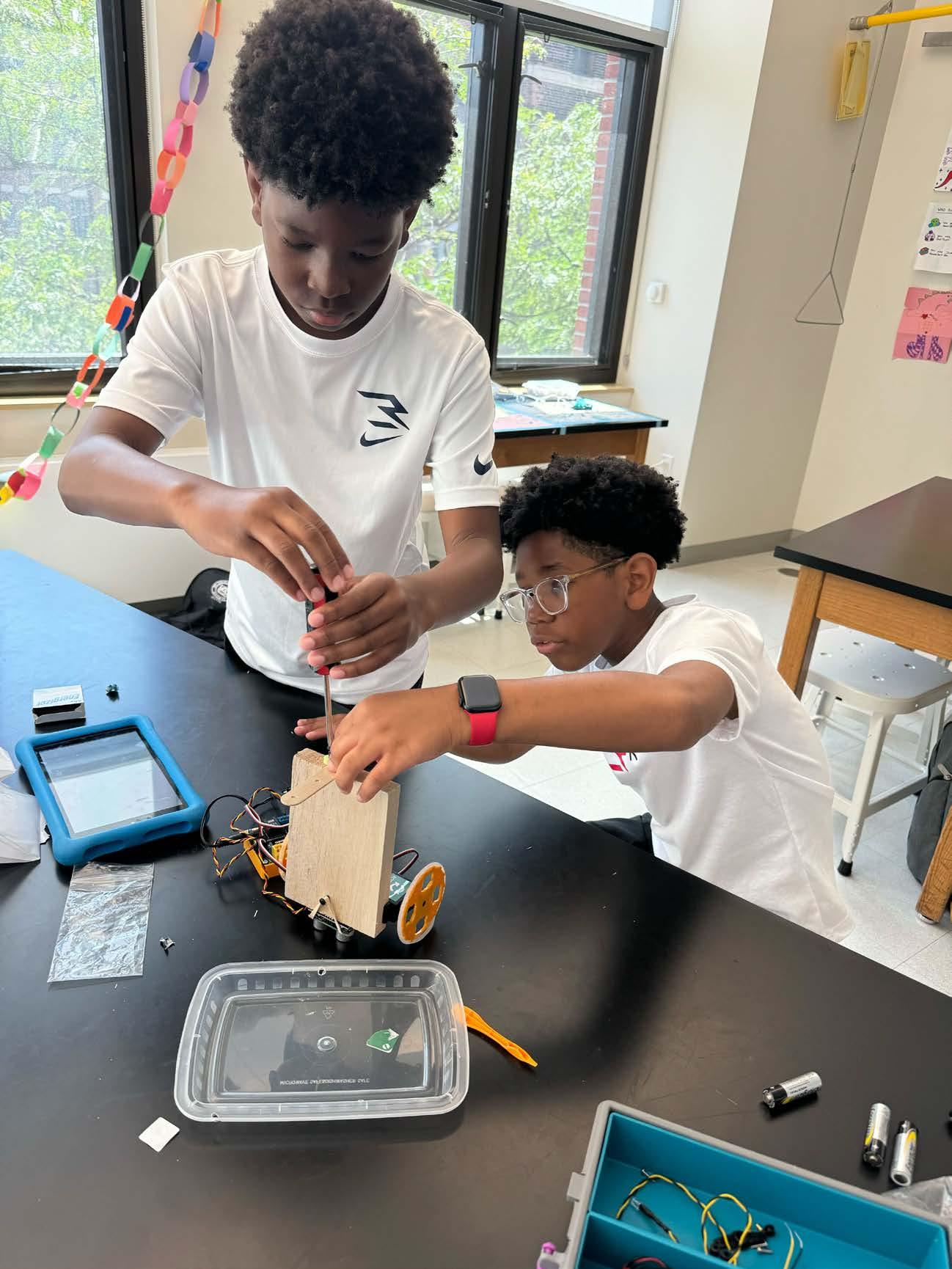





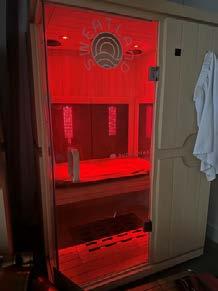

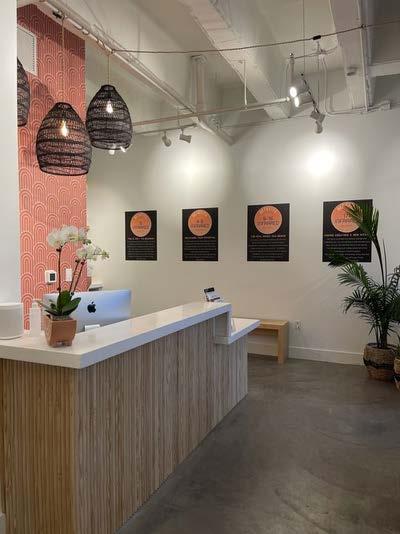

by Nicole Willard, Consultant, The Franchise Consulting Company
As the landscape of healthcare continues to evolve, one constant remains: the need for compassionate, specialized care delivered directly to people’s homes. Families navigating the challenges of aging, disabilities, and autism are turning more and more to in-home care providers who understand the complex, deeply personal needs of their loved ones. At the forefront of this movement is Butterfly Home Care, a company redefining what it means to provide medical and non-medical support at home—with heart, purpose, and excellence.
At the core of Butterfly Home Care is a simple, yet powerful mission: Transforming lives through care.
This isn’t just a tagline—it’s a daily practice, instilled into every caregiver and every service the company provides. The organization was founded by Becky Wang, a trailblazer whose personal experience caring for her son with autism inspired her to create a company that leads with empathy and delivers with professionalism.
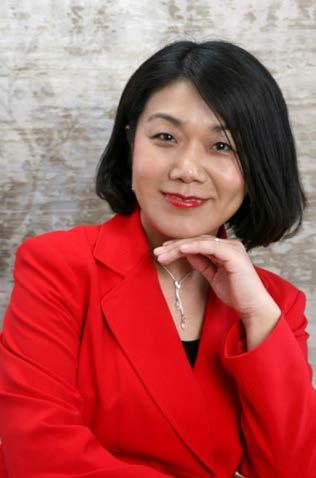
Becky’s impressive background includes executive experience in Fortune 500 companies, leadership in international business and immigration services, and franchise ownership.
Her multiindustry expertise uniquely positions her to lead a home care company that not only serves clients but also uplifts communities and empowers entrepreneurs.

Butterfly Home Care specializes in three rapidly growing areas: autism care, disability services, and senior care. These are not add-ons or generalized offerings—they are the core of the company’s DNA. With a proven track record and years of handson experience, Butterfly Home Care provides highquality, personalized services tailored to each client’s unique circumstances. The rise in autism diagnoses and the increasing lifespan of individuals with disabilities have created a significant gap in specialized in- home care. Similarly, the U.S. senior population is expanding at an unprecedented rate, with millions seeking alternatives to institutional care. Butterfly Home Care stands at the intersection of these needs, providing structured, compassionate support that
meets families where they are—literally and emotionally.
What sets Butterfly apart is the team behind the brand. The company’s clinical advisory panel includes Nurse Practitioners (NPs), Registered Nurses (RNs), Licensed Practical Nurses (LPNs), Certified Nursing Assistants (CNAs), and Direct Support Professionals (DSPs). These healthcare professionals bring deep clinical knowledge to the table, ensuring that every care plan is both safe and compassionate.
The company’s training protocols, oversight standards, and caregiver matching processes are meticulously designed to promote dignity, trust, and comfort in the home environment.
Yet the strength of Butterfly Home Care goes beyond just clinical rigor. Becky and her leadership team prioritize nonjudgmental, culturally competent, and empathetic care.
Every caregiver is chosen not just for their skills, but for their humanity.
Although Butterfly Home Care is now offering franchise opportunities, the company isn’t just handing over a name and a playbook. It’s offering an ecosystem of support, built by industry veterans who understand what it takes to succeed in the home care space. Franchisees benefit from an exceptionally well-rounded

leadership team. This includes:
• Former successful home care franchisees who offer firsthand insight on launching and growing care businesses.
• A CPA on staff to assist with financial planning and regulatory compliance.
• A legal advisor with expertise in healthcare and franchise law.
• A former SBA consultant who helps franchisees navigate funding options and growth strategy.
• Marketing professionals experienced in healthcare branding and digital lead generation.
Together, this team delivers a comprehensive support system that gives franchise owners the tools to make a meaningful difference—while also building a profitable, scalable business.
The timing for home care has never been more urgent. More than 10,000 Americans turn 65 every day.
Simultaneously, autism spectrum disorder is being diagnosed earlier and more frequently, and families are actively seeking care models that prioritize comfort, familiarity, and continuity.
According to industry data, the global home healthcare market is expected to reach over $340 billion by
2030, and the U.S. market alone continues to outpace expectations.
But within this surge, one trend stands out: the demand for specialized care. General home care is no longer enough. Families need providers who understand the nuanced needs of those with autism, developmental disabilities, and age- related challenges. Butterfly Home Care was designed for this moment.
As we look to the future of healthcare delivery, one thing is clear: the home will increasingly become the setting for both medical and supportive care. Butterfly Home Care offers a model that is not only responsive to this trend, but actively elevates the standard of what in- home care can and should be.
Whether you’re a family seeking better support, a healthcare professional looking to join a meaningful movement, or a business leader interested in building a purpose-driven enterprise— Butterfly Home Care represents a path forward where care, dignity, and opportunity all coexist.
Nicole Willard is a Franchise Consultant with The Franchise Consulting Company, helping entrepreneurs find high-impact franchise opportunities aligned with their goals. With a strong business and marketing background, she uses data-driven strategies to guide confident, long-term investment decisions.Contact Nicole at NWillard@ TheFranchiseConsultingCompany.com









by Rhonda Sanderson, CEO, Sanderson & Associates
In the heart of Kansas City, Missouri, a recent venture by Connor T. Burns is revolutionizing the home inspection industry. Burns brings a wealth of experience and enterprising spirit to The Pristine Team, as his Pillar To Post Home Inspectors business is known. With a territory that spans Kansas City and 33 counties straddling the Missouri and Kansas border, Burns is poised to make a significant impact in the real estate community there.
“I opened in January and already had to hire another Home Inspector,” said Burns recently. “We are proud to already have a 62% referral rate in just these months of operation.”
Burns' journey to entrepreneurship began in his formative years, being raised in the family-owned restaurant called Californios, which operated for an impressive 32 years. This environment instilled in him essential life skills such as quality, reliability, hard work, and customer service. These values have been the cornerstone of his professional endeavors and have shaped his approach to business.
20 years before this, Burns took a bold step by helping a friend start a reclaimed wood company named Elmwood Reclaimed Timber. What
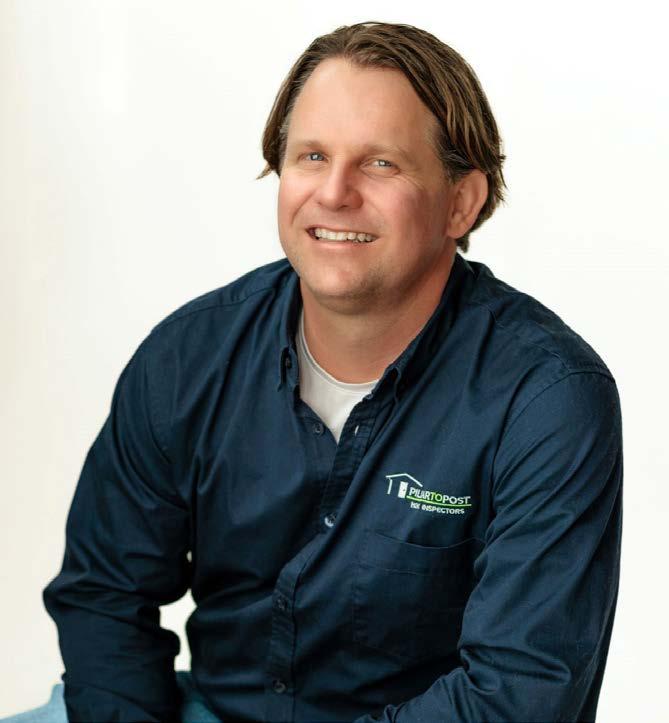
began as a modest threeperson operation quickly grew into a thriving enterprise with 45 employees, generating $8 million in annual sales. This remarkable success story is a testament to Burns' dedication, vision, and leadership.
After 22 years of service at an executive level, Burns felt the call to chart his own course. His experience as a long-term homeowner and real estate
investor sparked his interest in the home inspection industry. It was during this exploration that he discovered Pillar To Post and was deeply impressed with the organization's commitment to quality service and customer satisfaction.
Pillar To Post Home Inspectors is renowned for their comprehensive and transparent approach to home inspections. The company

prides itself on providing clients and agents with the information they need to make informed decisions. Burns' Pristine Team aims to uphold and exceed these standards, ensuring that every inspection is thorough, accurate, and delivered with the utmost professionalism.
Buying a home is one of the largest investments most people will make in their lifetime. Understanding this, Burns is committed to making the home-buying process as stress-free and straightforward as possible. By joining forces with Pillar To Post, he can leverage their extensive resources, innovative technology, and proven methodologies to offer unparalleled service to his clients.
Burns' effective communication skills and passion for helping others are evident in his approach to business. He believes in executing a quality process that reduces stress for all parties involved—clients, agents, and employees alike. His goal is to provide a seamless experience that supports clients in making confident decisions and
empowers agents to assist their clients effectively.
One of the key aspects of Burns' service is the pre-sale home inspection. This service helps homeowners understand potential concerns, provides an opportunity for repairs, and ensures that the home can command or maintain a reasonable price. By providing this service, Burns assists sellers in preparing their homes for sale and contributes to the transparency of real estate transactions.
The Pristine Team is a new chapter in Burns' entrepreneurial journey and is already bringing a new level of excellence to the home inspection industry in Kansas City and beyond. Connor Burns is a glowing example of the franchisee background that fits the company’s new Executive Model.
This quarter marks 10 consecutive quarters of market share growth for Pillar To Post. A major drawing point for franchise business owners toward Pillar To Post is the is this model which is designed to offer flexibility, scalability, and a fast rampup for entrepreneurs from all backgrounds. With low overhead, minimal staffing needs, and strong support systems, the model empowers owners to grow at their own

pace while benefiting from a proven, tech-enabled operational framework.
"Ten straight quarters of market share growth is more than a streak; it's proof that our Executive Model works in any market," said Charles Furlough, President and CEO of Pillar To Post. "From the strength of our owners to the tools we give them, we've built something durable, scalable, and designed for long-term success."
A major milestone in 2025 was the full systemwide launch of Pillar To Post HomePage, Pillar To Post's new proprietary digital platform. Now live across all franchise locations, Pillar To Post HomePage transforms how inspections are conducted and delivered by integrating inspection reports, 360° visual tours, interactive floor plans, and postinspection tools into a single, intuitive dashboard for clients, inspectors, and agents.
As Burns continues this exciting journey his vision for the future is clear. He aims to build a business that is synonymous with quality, reliability, and exceptional customer service. By fostering a culture of transparency and support, he hopes to make a lasting positive impact on the home inspection industry and the community he serves.
Rhonda Sanderson is a franchise expert who has owned and operated Sanderson & Associates and Sanderson PR, both specializing in, traditional, social media and crisis PR in the franchise space since 1986. She has authored many articles, helped grow numerous franchise chains is considered one of the Top 30 Small Business Influencers (Fit Business) in the U.S. Find her at Rhonda@ sandersonpr.com or on LinkedIn where she is the author of Franchise Stars at https://www.linkedin.com/in/rhonda-sanderson-a6b658/




Kaminskiy Care and Repair offers top-quality home repair services, helping homeowners maintain and improve their homes with expert care and attention to detail. As a franchisee, you'll not only support homeowners in protecting their assets but also build your own wealth and success by partnering with our trusted brand in home improvement.

Almost 20 Years in Business
Proven Operating Systems
Effective Marketing & Lead Generation
Strong Support System
Industry- Leading Start-Up Time
Low Investment
Cost-Effective Business Model
by Joe Carter, Consultant, The Franchise Consulting Company
Truth is, most men don’t like going to the doctor. The sterile waiting rooms. The endless forms. The awkward conversations. But what if a medical visit felt more like hanging out in a high-end sports lounge—big screens tuned to ESPN, leather chairs, snacks at arm’s reach—and you left with the energy, focus, and vitality you thought you’d lost for good?
That’s the experience Gameday Men’s Health delivers. And it’s why the brand is quickly becoming one of the fastest-growing names in the $7.1 billion men’s health and wellness industry.
Founded in 2018 by healthcare entrepreneur Evan Miller, Ph.D., Gameday was designed with one clear mission: help men reclaim their lives by optimizing their health. The clinics specialize in four highdemand services:
• Testosterone Replacement Therapy (TRT)
• Erectile Dysfunction (ED) treatment
• Weight loss management
• Vitamin therapy
The difference? A man-cave environment where comfort and convenience come first. From a free testosterone test
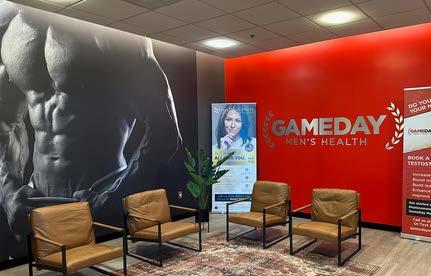

with results in just 15 minutes to a personalized wellness plan and rapid-impact treatments, Gameday’s 3 Step Signature Process is built for speed and results.
The numbers speak volumes:
• 1 in 4 men will suffer from low testosterone by age 40.
• Over 50% of men will experience ED in their lifetime.
• The men’s health sector is growing at a 15% CAGR through 2029.
Men are actively seeking solutions—often quietly, but with urgency. Gameday’s approachable, stigma-free environment positions it as the go-to destination for these lifechanging services.
From an investor’s perspective, Gameday hits the sweet spot of high demand, operational simplicity, and attractive economics.
Here’s why:
• Recurring Revenue
Membership Model – Once trust is earned, men stay. Long-term relationships mean predictable cash flow.
• Small Footprint, Fast Open
– Clinics operate in 1,000–2,000 sq. ft. turnkey medical suites. Many open within 4–6 months of signing.
• Lean Staffing – 4–5 employees keep labor costs manageable. No weekends. No holidays.
• In-Office Lab – Sameday results increase conversion rates and patient satisfaction.
For franchisees, this isn’t just a healthcare business—it’s a lifestyle business with scalability.
Even if you’ve never worked in healthcare, Gameday equips you to win. Franchise owners receive:
• Comprehensive training –Virtual and on-site programs at the Carlsbad, CA headquarters.
• Dedicated business coaching – Weekly calls to track KPIs and drive growth.
• Proven marketing systems –High-ranking SEO, targeted Google ads, and a ground marketing playbook that puts your brand front and center in your community. This turnkey support means you can focus on leadership, team culture, and local engagement—not getting buried in medical minutiae.
Gameday works whether you want to be hands-on or manage from a higher altitude. Owner-operators lead day-to-day operations and community outreach.

Semi-absentee owners can hire a strong general manager while focusing on strategy and expansion. Either way, your role centers on building relationships, driving performance, and scaling your clinic’s impact.
In the crowded wellness market, Gameday stands out by removing the friction that keeps men from getting help.
• No intimidating doctor’s office.
• No third-party lab visits.
• No long waits. Instead, patients get fast results, privacy, and a team that treats them with respect. That combination creates loyalty— and loyalty drives growth.
With prime territories still available across the U.S. and Canada, the window to secure a high-potential market is open. And as the first major men’s
clinic franchise opportunity, Gameday offers investors a chance to be an early mover in a booming category.
Simple? Yes. Easy? No. Worth it? Absolutely. For the right entrepreneur—someone who values health, understands the power of recurring revenue, and wants to lead in an underserved space—this is more than a business. It’s a legacy.
Ready to get in the game?
Reach out to jcarter@thefranchiseconsultingcompany.com to learn more about becoming a franchise partner. Because when men feel their best, they play their best—and Gameday makes that possible.
Joe Carter is a franchise growth strategist and founder of Twin Flame Group who has started, scaled, and exited multiple businesses at double— even triple—EBITDA industry averages. He has helped hundreds of individuals take their first step into business ownership while guiding brands to scale, systemize, and position for topdollar exits. Contact Joe at JCarter@ TheFranchiseConsultingCompany.com.

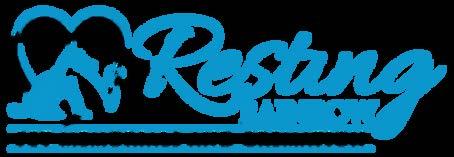









Advertise in Today's Restaurant Digital Edition online and have your ad delivered to thousands of restaurant and foodservice buyers each month. From full page display ads to classifieds we have a size and price to fit your ad budget.

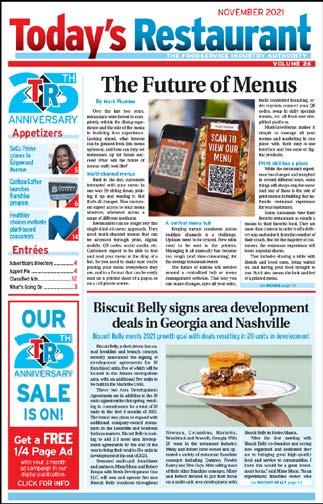

Advertising on the Today's Restaurant Website will expose your corporate or individual message to every visitor. Banner ads can be interactive animated messages. We’ll meet your ad needs and price point.
We’ll email your ad or video to our verified database of over 15,000 restaurants in Florida, Georgia, Texas and around the country. A 10%-20% open rate can be expected with each Eblast and all Eblasts are posted on our social media sites for even more exposure.
Video is hot! Show the industry what your company can provide with a Video Eblast featuring a great product or video interview. Ask to see a sample or call for pricing.
A few days after your initial Eblast, reach out to your Eblast recipients with another special offer. A higher open rate of 40%-70% is often achieved with Eblast Follow-Ups.
Subscribe to our Restaurant Leads Report and every month receive valuable industry sales leads on restaurant openings, restaurants under construction and under new management in an Excel spreadsheet format. Reports include the buyer’s name, phone number, zip code and email when available. Reports for Florida and Georgia are now available.
by Jack Tiwari, Consultant, The Franchise Consulting Company
Over the next two decades, the United States will experience the largest transfer of wealth in history. Economists estimate that Baby Boomers - the wealthiest generation to ever live - will pass down over $84 trillion to their heirs by 2045. Roughly $16 trillion of that is expected to be transferred in just the next decade.
While these numbers grab headlines, they also raise a question for entrepreneurs and investors alike: Where will that money go? For a growing number of inheritors, the answer will be franchising - a path that blends financial stability, proven systems, and the chance to build a lasting legacy.
The coming wealth shift is unlike anything seen before. Boomers hold more than half of America’s wealth - much of it in real estate, investments, and businesses they built over decades. Unlike previous generational handovers, this transfer will happen in an economy shaped by high living costs, evolving job markets, and a cultural shift


toward entrepreneurship over traditional employment.
For many Gen X, Millennial, and even Gen Z heirs, an inheritance won’t just be a windfall - it will be the capital that makes self-employment possible for the first time.
Franchising offers something that resonates strongly with
this mindset:
• Lower startup risk compared to starting from scratch.
• Brand recognition and established systems.
• Scalable ownership for longterm wealth building.
• A community of support from franchisors and other owners.
READY TO ACT.
Not all industries will capture this influx of capital equally. The most attractive opportunities for incoming heirs and new investors will be those that meet two criteria:
1. Stable or growing demand, regardless of economic cycles.
2. Proven franchise models with strong ROI potential. Senior care and medicalrelated franchises check both boxes. As America ages - with 10,000 people turning 65 every day - demand for home healthcare, mobility products, in-home support, and wellness services is skyrocketing.
Other sectors likely to benefit include:
• Essential services (plumbing, cleaning, automotive).
• Education and tutoring (especially with increased remote learning).
• Pet care (a high-growth emotional spending category).
• Food service (with delivery and convenience models leading the way).
The size of the wealth transfer is staggering, but opportunity doesn’t automatically translate into success. For those inheriting capital - and for franchise
brands hoping to attract them - timing, preparation, and strategy are key.
Receiving a large sum can be overwhelming. Many heirs have never run a business, let alone evaluated a franchise. Franchisors and consultants who provide accessible education on the franchise process will build trust and stand out.
2.
For families, franchising can be an ideal bridge between generations. Parents can provide capital, while younger family members bring energy and operational involvement. This creates a business that serves both as an investment and a shared legacy.
With greater access to capital, new investors can think beyond a single location. Multiunit ownership accelerates growth, spreads risk, and builds enterprise value faster - key for those aiming to turn inherited wealth into generational wealth.
Even with inheritance funds, smart investors will blend cash with SBA loans, 401(k) rollovers, or portfolio-backed financing. This preserves liquidity for marketing, expansion, or diversification into multiple brands.
5. Partner with Proven Advisors
Navigating franchise selection, legal agreements, and operational rampup is complex. Partnering with experienced franchise consultants, attorneys, and accountants can prevent costly missteps.
POSITIONING TO ATTRACT THE NEW CAPITAL
Franchise brands also have a rare opportunity to capture a share of this capital influx. To do so, they should:
• Highlight stability and demand in marketing materials.
• Showcase success stories of multi-generational owners.
• Offer succession-friendly structures that make it easy for ownership to pass between family members.
• Develop discovery processes tailored to first-time business owners.
While the $84 trillion figure makes headlines, wealth transfer isn’t purely financialit’s deeply personal. For many heirs, investing in a franchise is about more than profit. It’s about honoring the values and sacrifices of the generation that came before them.
Franchising allows inheritors to create something tangible:
a business that employs people, serves a community, and grows over time. In many cases, this will be the most visible and lasting result of their inheritance. Opportunities of this scale rarely come twice. The Great Wealth Transfer will reshape industries, fuel entrepreneurship, and open doors for those ready to act. For aspiring business owners with new capital, franchising offers a powerful blend of proven systems, community impact, and the potential to turn inherited wealth into enduring prosperity. Whether you’re on the giving or receiving end of this shift, the message is the same: The time to prepare is now.
1. Pause Before You Pounce – Take time to assess your skills, lifestyle goals, and risk tolerance before committing to a franchise.
2. Do Your Homework – Research multiple brands, talk to existing franchisees, and compare financial performance data (Item 19 in the FDD).
3. Think Big, Start Smart – Consider multi-unit opportunities, but begin with a manageable number of locations to learn the ropes.
4. Preserve Your Capital – Use smart financing tools (SBA loans, 401(k) rollovers, portfolio loans) to keep extra cash for marketing and growth.
5. Surround Yourself with Pros –Work with franchise consultants, attorneys, and accountants who understand the industry and can help you avoid pitfalls.
Jack Tiwari is a seasoned business consultant, community leader, and cultural advocate. With a deep understanding of the franchise industry, he helps entrepreneurs achieve success in franchise sales and acquisitions, business development, and social impact. Contact Jack at jack@thefranchiseconsultingcompany.com.



Butterfly Home Care provides specialized home care services for individuals with autism, people with disabilities, and seniors. Our company has built a strong reputation and proven track record in delivering high-quality, personalized care at the comfort of people's homes. With extensive experience in the field, we are committed to meeting the unique needs of each client.













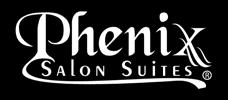














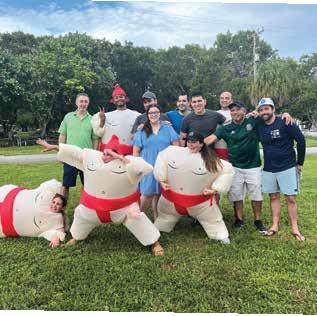
Weekend PE is more than a business opportunity it’s your chance to build a stronger, more active community Since 2015, we’ve delivered high-energy events for all ages, from sports parties and summer camps to community gatherings and classes. Now, you can help bring that mission to life where you live.
Email us at to learn more.

• High Profit Margin Potential
• Easy Training & Staffing
• Semi- Absentee Model
• Diverse Revenue Streams
• Scalable Business Model
addition Wow! A wholesome and exciting to our neighborhood. Coaches were H ighly recommended!

Your
by Michael Stavrinakis, Consultant, The Franchise Consulting Company
Whiplash Pain Center is offering a rare opportunity to own a thriving, proven business model in the booming personal injury and pain management industry. Whether you’re a healthcare provider ready to expand or an entrepreneur searching for a profitable, in-demand business, this franchise delivers both purpose and profit.
• Trusted Brand – Recognized leader in pain management and whiplash injury care.
• Proven Model – Streamlined operations designed for low overhead & high returns.
• Strong Referral Pipeline –Partnerships with law firms drive a steady stream of patients.
• Cutting-Edge Protocols – Innovative, effective treatments patients love.
• High Earnings Potential –
• Top performer: $1.05M annual revenue
• Average performer: $701K annual revenue
• Lean Team – Just 1 chiropractor + 1 staff member needed.
Franchise Fee & Start-Up
Investment: $125,000 What You Get:
• Comprehensive Training – Master our treatment protocols and business systems.
• Ongoing Support – From marketing to operations, we’ve got you covered.
• Market Dominance – Be the go-to clinic for personal injury care in your area.
• Referral-Driven Growth –Reduce marketing costs while increasing patient volume.

The personal injury treatment market is booming, and territories are limited. With Whiplash Pain Center’s proven system, recognizable brand, and strong ROI, you can create a thriving practice that changes lives while building your financial future.
Michael Stavrinakis is an Award Winning and #2 Consultant 2023 & 2024. Contact Michael at mstav@ thefranchiseconsultingcompany.com.



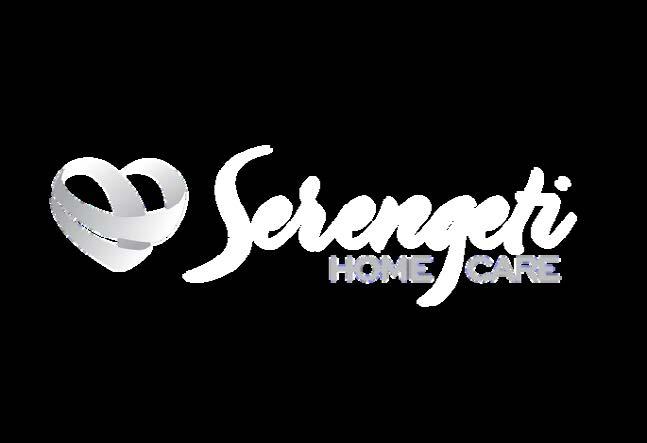
Serengeti Care supports people of all ages in the comfort of their own home. Our clients can trust our dedicated and compassionate staff with their care needs such as personal care, activities of daily living, companionship, and more.
Our home care services are specialized to fit our client’s needs, whether it be a few hours or around-the-clock care. We work with them to ensure their needs are met.
WE BRING CARE TO OUR CLIENTS!
MULTIPLE REVENUE STREAMS


MULTIPLE SERVICE OFFERINGS
RECESSION PROOF BUSINESS

ONGOING SUPPORT AND DEVELOPMENT





by Ann Power, Consultant, The Franchise Consulting Company
“WE’RE NOT JUST IN THE HEARING AID BUSINESS—WE’RE IN THE
MOMENTS BUSINESS.”—Dr. Robert Morrison

When 72-year-old Joan Miller walked into Hear Again America, she hadn’t clearly heard her granddaughter’s giggle in years. The sound had become a faint murmur, something she could only

imagine. After her fitting, Dr. Robert Morrison asked her granddaughter to say hello. The little girl laughed instead—bright, clear, and unfiltered. Tears streamed down Joan’s face.
“That,” Morrison recalls, “is

why we do what we do.” Moments like these are the heartbeat of Hear Again America, a company founded on the belief that hearing care is more than a medical service—it’s a lifeline.
For Asaf Peled, the hearing health profession was never just a job. Beginning in 2002 as a licensed hearing aid dispenser, he quickly recognized that untreated hearing loss wasn’t merely an inconvenience—it was a barrier to relationships, work, and self-confidence.
While serving as Regional Manager of Total Hearing Care in New Jersey, Peled built clinics from the ground up, each with a singular focus: patient care comes first. By the time he co-founded Hear Again America in 2013, he had a clear mission: to change

the way hearing care was delivered.
“The heart of this company is empathy,” Peled says. “Every patient is someone’s parent, spouse, child, or friend. If we can help them hear again, we’re helping them live again.”
His leadership ensures that staff treat every patient as an individual, not a chart entry. Technology is chosen for its ability to enhance life, not just for its features. It’s a philosophy that has made Hear Again America a trusted name in every community it serves.
CLINICIAN WHO SAW THE BIGGER PICTURE
Dr. Robert Morrison’s journey began with handson patient care. With degrees in Speech and Hearing Sciences from Ithaca College and a Master’s and Doctor of Audiology from Indiana University, he treated patients in Washington, D.C., before moving into leadership roles that allowed him to affect change on a broader scale.
As an early executive in a start-up hearing aid company, he helped expand into nine states with 30 locations. Later, with Starkey Laboratories, he became one of Florida’s most respected industry voices, blending technical expertise with an understanding of what truly matters to patients.
When he joined Hear Again America as President in 2016, Morrison brought both clinical credibility and a visionary outlook.

“Hearing care is about restoring connection— between spouses, between grandparents and grandchildren, between friends,” he says. “Every time we fit a hearing aid, we’re rebuilding bridges that might otherwise crumble.”
Peled and Morrison aren’t content to run a successful company—they want to change the national conversation about hearing
health. They see it as a public health priority, one with ripple effects on mental health, cognitive function, and quality of life.
They speak often about the human cost of untreated hearing loss: the isolation, the frustration, the quiet withdrawal from social life. Rather than accept it as inevitable, they’ve built Hear Again America into a network designed to make care accessible, affordable, and deeply personal.
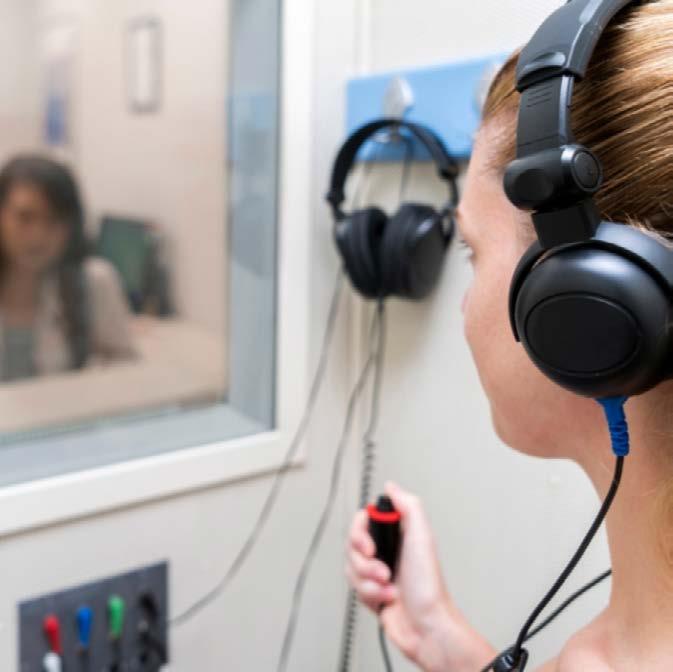
“OUR FRANCHISEES AREN’T JUST BUSINESS OWNERS, THEY’RE AMBASSADORS FOR OUR MISSION. THEY HAVE TO CARE ABOUT PEOPLE AS MUCH AS THEY CARE ABOUT PROFITABILITY.”
—Mary Catherine McDonald, Vice President of Franchise Development
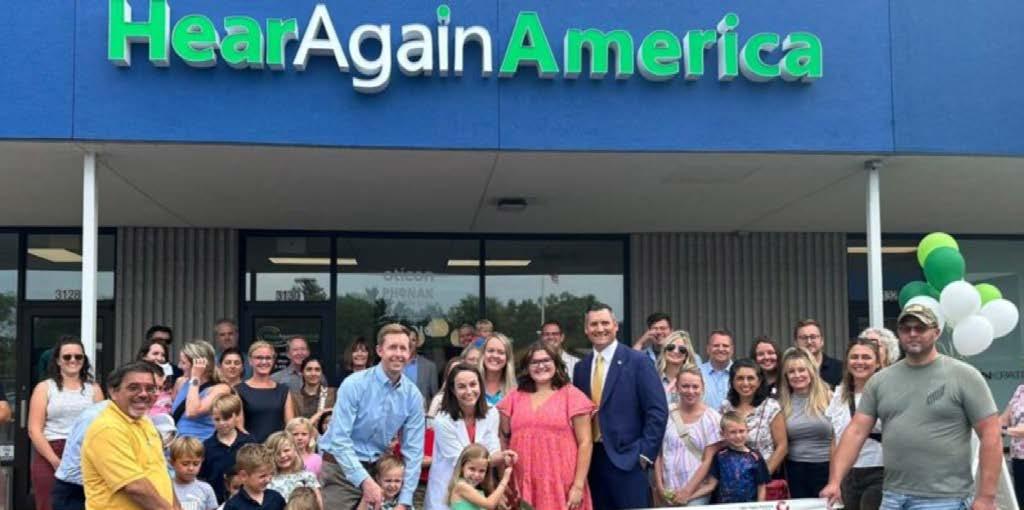
For them, success isn’t just about market share—it’s about lives changed.
The decision to franchise Hear Again America was strategic but deeply missiondriven. By empowering local owners to operate under the Hear Again America brand, they could extend their patient-first philosophy into more communities while maintaining quality.
Leading this initiative is Mary Catherine McDonald, Vice President of Franchise Development. With more

than 20 years in audiology business development and franchise leadership, she ensures expansion is measured and values-driven.
“Our franchisees aren’t just business owners,” McDonald says. “They’re ambassadors for our mission. They have to care about people as much as they care about profitability.”
In a marketplace where hearing aids can be bought at big-box retailers or online, Hear Again America stands apart by preserving the private practice model. Patients
see the same provider over time, receive personalized adjustments, and get ongoing support.
This continuity is intentional. Peled and Morrison understand that hearing aids are not one-size-fitsall solutions. They require professional fitting, finetuning, and a relationship built on trust.
Both founders have long advocated for a holistic approach to hearing care. Research has now confirmed what they’ve witnessed

firsthand: untreated hearing loss can lead to depression, cognitive decline, and diminished social engagement.
Hear Again America clinics go beyond fitting devices. They educate families, counsel patients, and create individualized care plans. They treat the person, not just the condition.
The stories emerging from Hear Again America are proof of their impact. A veteran hears his wife’s voice clearly for the first time in a decade. A choir member returns to singing without fear of missing her cue. A businessman reenters the boardroom with renewed confidence.
“Every life we touch reminds us why we’re here,” Morrison says. “We’re not just restoring sound—we’re restoring joy.”
Peled and Morrison are optimistic about the future of hearing care. With devices becoming smaller, smarter, and more connected, Hear Again America is ready to guide patients through the technology while keeping service deeply personal. Their expansion will continue, but deliberately— prioritizing the right people and the right communities over rapid growth.
In an age when healthcare can feel impersonal, Asaf Peled and Dr. Robert Morrison have built something rare:

WITH DEVICES BECOMING SMALLER, SMARTER, AND MORE CONNECTED, HEAR AGAIN AMERICA IS READY TO GUIDE PATIENTS THROUGH THE TECHNOLOGY WHILE KEEPING SERVICE DEEPLY PERSONAL.
a thriving business rooted in compassion, vision, and humanity. They are not just executives; they are advocates, educators, and humanitarians. Their mission is simple yet profound: restore hearing, rebuild connections, and enrich lives. As Hear Again America continues to grow, one thing is certain—its greatest measure of success will never be found on a spreadsheet. It will be found in the laughter, conversations, and shared moments of the people who, thanks to them, can truly hear again.
Ann Power has over 25 years of experience in franchising. She offers a unique perspective when engaging with those looking to take the leap into franchise ownership. Ann focuses on helping individuals discern whether franchising might be a good fit for their future – both financially as well as meeting their lifestyle objectives. Contact Ann at APower@ TheFranchiseConsultingCompany. com.















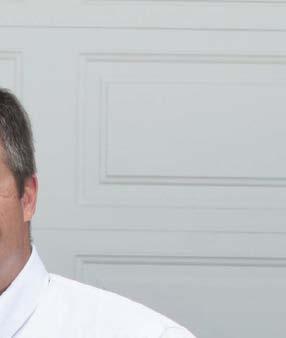


























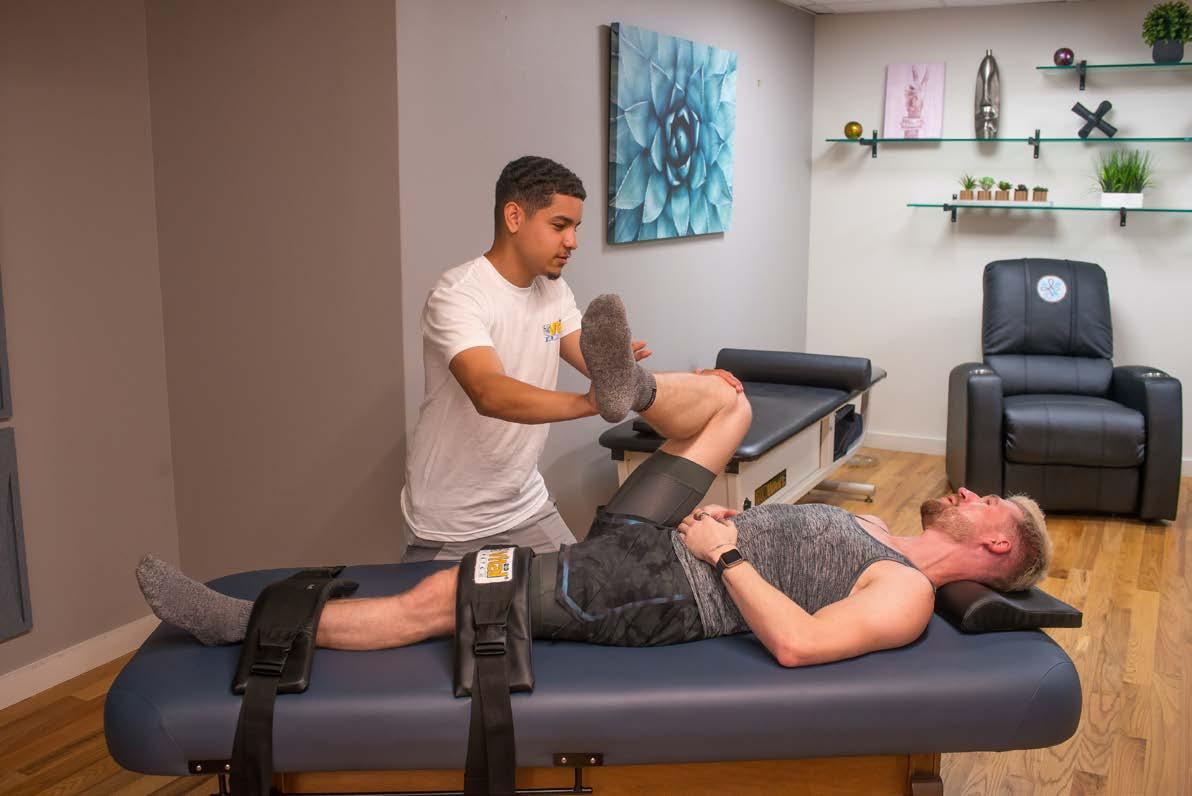



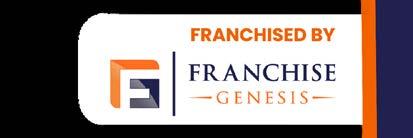

by Michael Stavrinakis, Consultant, The Franchise Consulting Company



In recent years, robotics have moved from the realm of science fiction into everyday reality,especially in healthcare and assisted living. These advanced machines are stepping into roles that keep environments sanitized, deliveries steady, and human caregivers focused on more critical, compassionate tasks.
In healthcare settings, maintaining hygiene is paramount. Robotic floor scrubbers and vacuums operate tirelessly, reducing hospital-acquired infections and cutting labor costs,allowing staff to prioritize patient care. (1851 Franchise, RobotLAB) Delivery robots also autonomously transport food, medical supplies, and lab specimens, ensuring prompt and contactless logistics.(RobotLAB)
During the COVID -19 pandemic, UV- disinfection robots emerged to safely sanitize rooms without human contact. They
have since expanded into hospitals, schools, and offices. (RobotLAB) Newer humanoid robots like Diligent Robotics’ Moxi,deployed in over 30 U.S. hospitals,handle routine "hunting and gathering" tasks, freeing nurses to spend more time with patients.(Financial Times) These “busy-work” roles are especially important amid growing staff shortages: by 2028, the U.S. may face up to 100,000 critical healthcare vacancies.(Financial Times)
While patient-facing automation remains limited, robots are increasingly accepted in supportive capacities, especially when union concerns focus on preserving clinical roles. (Financial Times)

In assisted living settings, robotic systems enhance both safety and quality of life. Floor-cleaning robots provide quiet, continuous cleaning that doesn’t interrupt residents’ routines or sleep, while security robots equipped with motion detection, facial recognition, and night-vision boost facility safety and curb appeal.(RobotLAB) Delivery robots integrated with elevators can bring meals, meds, or essentials directly to residents’ rooms, minimizing human contact and delays. (RobotLAB)
Robots also support telehealth,enabling in-room video communication with family or healthcare providers, and saving on travel and missed appointments.
(RobotLAB) For residents with dementia, AI-driven companion robots offer cognitive stimulation, emotional support, and real-time safety monitoring. (RobotLAB)
At the forefront of this revolution is RobotLAB, a company founded by Elad Inbar, headquartered in Dallas and unique in being the only franchised robotics integrator in the U.S.(Wikipedia) RobotLAB distributes and
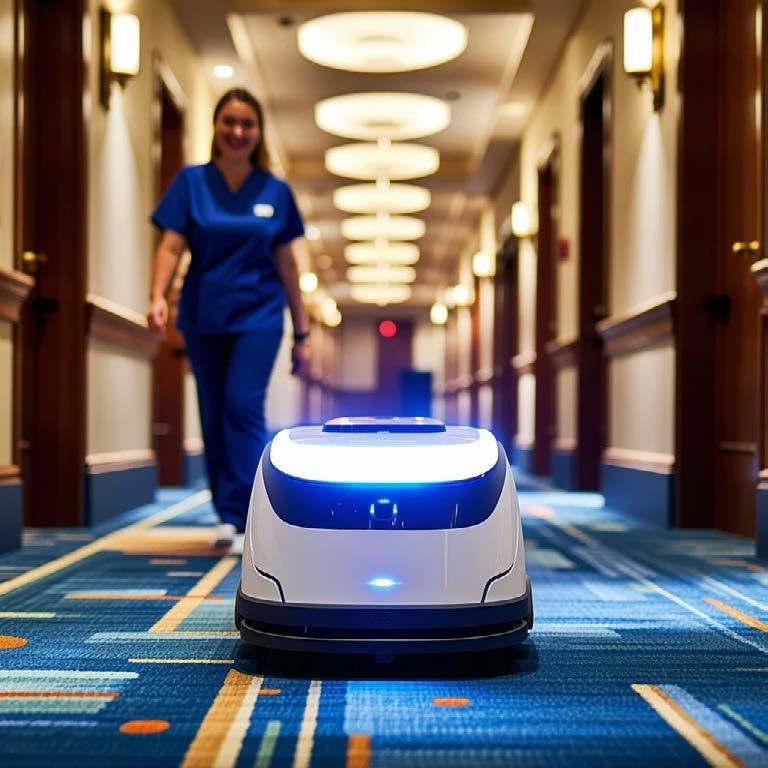
supports robots such as Pepper, Nao, CC1(cleaning), and others, across industries like education, healthcare, hospitality, and retail. (Wikipedia)
RobotLAB’s franchise model is its key innovation,a powerful synthesis of technology and local entrepreneurship.
Within two years of launch, RobotLAB has grown to 36 franchises covering nearly 90 territories, demonstrating both demand and scalability. (1851 Franchise) This "last-mile" approach means businesses can quickly access robotics with local deployment, hands-on training, and maintenance,crucial for sectors like assisted living that benefit from responsive, community-based service.
For example:
• CC1, the autonomous
cleaning robot, vacuuming common spaces and rooms, runs quietly even at night and delivers consistent cleanliness with minimal oversight.(RobotLAB)
• The Phantas cleaning robot is a sophisticated 4-in-1 system (vacuum, scrubber, squeegee) that follows AI-based routes and uses water efficiently.(RobotLAB)
• RobotLAB also offers solutions like CleanBot and CC201, with advanced obstacle avoidance, large-scale coverage, self-recharging, and proof-of-performance analytics,ideal for assisted environments.(RobotLAB) Beyond cleaning, RobotLAB facilitates telepresence, interactive humanoid assistance, education, and telehealth,coupled with

on-site service, training, content, and preventive maintenance.(RobotLAB)
This franchise-plus-tech strategy offers several benefits:
• Local entrepreneurs bring robotics into their communities,enhancing trust and service reliability.
• Businesses reduce reliance on centralized support: prompt response, system integration, and financing options are available.(1851 Franchise, RobotLAB)
• Assisted living facilities and hospitals gain efficiency and safety through robots, while local franchisees ensure smooth implementation.
RobotLAB’s model showcases how robotics can bring practical transformation to healthcare and senior
ROBOTS ARE INCREASINGLY VITAL IN HEALTHCARE AND ASSISTED LIVING, FOR CLEANING, DELIVERY, HYGIENE, TELEHEALTH, AND MENTAL ENGAGEMENT.
care,from sterile, efficient cleaning to seamless deliveries and compassionate companionship. By decentralizing robotics through franchising, Inbar isn’t just selling machines,he’s enabling scalable, localized,
high-touch automation.
As demand for these technologies grows amid workforce shortages and aging populations, RobotLAB stands out by ensuring robotics are not just cutting-edge,but accessible, dependable, and tailored to the communities they serve.
Robots are increasingly vital in healthcare and assisted living, for cleaning, delivery, hygiene, telehealth, and mental engagement. RobotLAB, led by CEO Elad Inbar, is pioneering a franchisedriven "last-mile" deployment that marries high-tech robotics with the agility and reach of local business, revolutionizing how communities deliver smarter, safer care.
Michael Stavrinakis is an Award Winning and #2 Consultant 2023 & 2024. Contact Michael at mstav@ thefranchiseconsultingcompany.com.
RobotLAB worked with a 120-bed senior care community in the South East. The facility faced persistent challenges:
• Staff shortages, particularly in cleaning and routine delivery tasks.
• Increased resident vulnerability to infections, requiring higher hygiene standards.
• Rising operating costs and high staff turnover. Management sought a solution that would maintain high safety and cleanliness standards while allowing staff to focus on providing personal care and engagement with residents.
• Sanitation Pressure: Regular deep cleaning and disinfection required significant manpower.
• Labor Shortage: Recruiting and retaining custodial staff was increasingly difficult.
• Resident Expectations: Families demanded higher transparency about safety, hygiene, and care quality.
The leadership team needed a scalable, reliable, and cost-effective solution that could run continuously and reduce dependence on manual labor.
PARTNERING WITH ROBOTLAB
In 2024, the facility partnered with RobotLAB to address their challenges. The facility adopted a multi-robot package from RobotLAB that included:
• R3 Autonomous Vacuum Robot: Provided daily vacuuming of common areas and resident corridors.
• CC1 4-in-1 Cleaning Robot: Performed deep cleaning, scrubbing, and disinfection in kitchens and dining halls.
• Delivery Robots: Integrated with elevators to

deliver meals and medication trays directly to resident rooms.
• Telepresence Robots: Enabled virtual visits with healthcare providers and family members, improving engagement for residents with mobility challenges.
RobotLAB’s local franchisee provided training, setup, and ongoing preventive maintenance, ensuring seamless operation and quick response times.
• Phase 1 (30 days): Deployment of R3 and CC1 robots for corridor and common space cleaning. Staff were trained on monitoring and data reporting functions.
• Phase 2 (60 days): Integration of delivery robots with elevator systems. Pilot test conducted with the kitchen and pharmacy staff.
• Phase 3 (90 days): Expansion into full facility coverage, including night cleaning schedules and telepresence units in 20 resident rooms.
RobotLAB’s franchise model allowed immediate, on-site support, which was critical during integration and staff training.
After six months of operation, Sunrise Haven reported measurable improvements:
• Labor Efficiency: Reduced reliance on custodial overtime by 40%.
• Resident Experience: Families praised the use of technology for transparency and safety; telepresence robots increased resident-family and resident-doctor communication by 30%.
• Staff Morale: Caregivers reported more time available for direct resident interaction and emotional support.
• Financial Impact: Estimated annual savings of $85,000 in labor costs, with a return on investment projected within 18 months.
• Franchise Model Advantage: Local presence ensured responsive service, hands-on training, and culturally attuned support.
• Scalable Solutions: RobotLAB’s product range covered multiple operational needs,cleaning, delivery, security, and engagement.
• Focus on the “Last Mile”: Unlike traditional tech providers, RobotLAB bridges the gap between advanced robotics and practical, everyday use in community-based facilities
RobotLAB’s integration of cleaning, delivery, and telepresence robots transformed Sunrise Haven into a safer, more efficient, and more resident-focused facility. By combining robotics with a franchise model, RobotLAB ensures the technology is not only cutting-edge, but also locally supported, reliable, and scalable.
This case highlights how healthcare and senior living facilities across the U.S. can leverage RobotLAB to overcome labor shortages, reduce costs, and improve quality of care,ushering in a new era of technology-enabled caregiving.


“RobotLAB gave us more than machines,it gave us time back with our residents. Our families feel safer, our staff feels supported, and our facility runs more smoothly than ever before.”
— Executive Director




SCALE, BUILD EQUITY, LEAD A TEAM, IMPACT YOUR COMMUNITY

This is a BLUE CHIP company, owned by FirstService Brands. Extremely stable, long term oriented, reputable, & ROCK solid corporate structure. Our parent company owns California Closets, CertaPro Painters, Paul Davis Restoration, and other Premier Home Services Brands.

Be part of something different—Align with Amazon. The Flooring industry is the LARGEST interior remodeling industry. 70% of flooring sales are retail. We are a disruptor and provide female decision makers a preferred shop-at-home experience.
The top 50% of our franchisees average $1.8 million in sales with the Owner Operator, Office Admin, & 1-2 Salespeople. We scale by adding Mobile Showrooms. Installation is done by SKILLED LABOR.
Our diversified marketing programs with online marketing automation, realtors, restoration, etc. makes us recession resistant. Also, our shop at home model is particularly appealing versus our competitors who are mostly retailers.
Why NOW is the Best Time to Own a Floor Coverings International Franchise…
With over 30 years in business and over 200 franchisees RIGHT NOW we’ve got a maturity level that impacts our franchisees in so many great ways. We have over 300 OPEN territories, however that number does shrink every day. Our training, support, business systems, and technology are WORLD CLASS. Additionally, it’s been such an exciting time as we’ve been able to begin to form marketing co-operatives that allow us to become the most well known flooring company in North America. Lastly, the orientation of the real estate industry tremendously benefits our ability to grow in the near and long term.




Artistic Edge is a mobile art studio that offers a variety of creative workshops, team-building events, and private parties. Our classes are designed for all skill levels, with instructors providing guidance throughout the process. Many of our projects result in functional art pieces that can be used in daily life. We emphasize community, creativity, and care, aiming to make art accessible and enjoyable for everyone.



High margins
Low overhead
Low initial investment
Flexible Schedule


No artistic experience needed

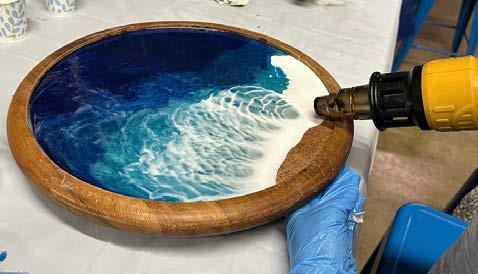








by TJ Treat, Consultant, The Franchse Consulting Company
The senior and medical franchise space continues to expand, offering aspiring franchisees the opportunity to make a real difference in people’s lives. Among the standout brands is GameDay Men’s Health, where franchisees Nick and Mari-Briege Nalette operate the Nashua clinic. With a focus on Testosterone Replacement Therapy (TRT) and comprehensive patient care, their clinic provides both physical and emotional transformations for patients.
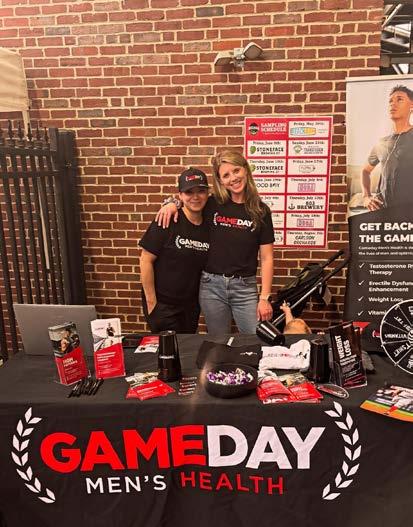
PATIENT IMPACT AT THE CORE
GameDay Men's Health clinics are designed to deliver meaningful improvements to patients’ lives. By combining targeted therapies with exercise and healthy habits, patients often experience enhanced energy, improved muscle tone, and an overall sense of well-being. Beyond the physical benefits, many report positive changes in their daily lives, such as feeling more motivated, optimistic, and engaged with their families. These outcomes highlight the tangible difference a franchise like GameDay can make in both physical and emotional health.
Q&A WITH NICK AND MARI-BRIEGE NALETTE
What does a typical day look like for you as a GameDay franchisee?
“We run our clinic semiabsentee, so we are not on-site every day. Our team keeps things moving. Justin, our GM, handles calls, our clinician manages care, and Josie is the medical assistant. They start around 8:30 a.m., and we officially open at 9 a.m. for new consultations, follow-ups, and weekly injections, with
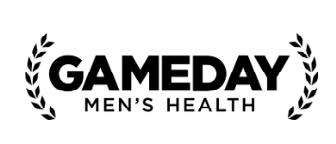
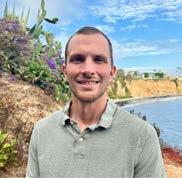
business hours from 9 to 5.
Our focus is on seeing new patients and managing followups. Weekly injections in the first month let us monitor progress, adjust treatments, and discuss add-ons. For mail-out patients, we check in monthly to stay connected. Even from a distance, we stay involved by answering emails, joining corporate and marketing calls, managing social media, and holding short daily check-ins with the clinic team to set goals and stay aligned.”
What were some of the biggest challenges you faced during the ramp-up phase, and how did you overcome them?
“One of the biggest challenges during the ramp-up phase has been no-shows. We schedule patients and confirm appointments, but often they do not show up or respond. To overcome this, we are constantly brainstorming ways to improve communication and make it easier for patients to come in.
Generating consistent leads has also been challenging. After the initial excitement in
“I DIDN’T WANT TO LEAVE. WOW. LOVED IT HERE. I COULD HAVE CHATTED WITH ANY OF THE 3 STAFF MEMBERS I MET FOR HOURS. VERY PROFESSIONAL, CLEAN, AND A GREAT VIBE. ALSO JUST LOOKS COOL AND THE SEATS ARE ALL VERY COMFORTABLE. YOU CAN TELL EVERYONE LIKES WORKING THERE AS THE ENERGY TRANSLATES TO US CLIENTS. LOOKING FORWARD TO SEEING THEM NEXT WEEK!
HIGHLY RECOMMEND THANKS TEAM!”
Ryan Keith

a new market, interest slows, and we need to adjust tactics. We work closely with the franchise’s marketing team, participate in weekly calls, and experiment with different strategies to attract and keep patients engaged. These challenges have pushed us to be creative and proactive, and with the franchise’s support, we continue refining our approach to ensure the clinic grows steadily.”
Can you share a story where you saw a significant life-
changing result for one of your patients?
“We often hear from our general manager about the life-changing results our patients experience. Many of the new patients are excited to come in each week because they are feeling better physically and emotionally. They report more energy, improved muscle tone, and an overall sense of well-being. Some patients have shared that their relationships with family have improved and that they feel more hopeful. It is incredible to hear how TRT,
combined with exercise and healthy habits, can have such a positive impact on both mental and physical health. These stories are a powerful reminder of why we do this work.”
For the Nalettes, the rewards of running a GameDay clinic are deeply personal. Patients’ transformations are tangible, from renewed energy and physical vitality to improved emotional health and family relationships. Through a combination of professional support, innovative marketing, and a dedicated team, the Nashua clinic exemplifies the potential of senior and medical franchising to make a meaningful impact on both the community and the franchisee’s life.
TJ Treat is a franchise consultant, multi-unit franchise owner, and former marine engineer. He helps individuals and business owners navigate the path of successful franchise ownership through strategy, systems, and storytelling. Contact TJ at TJ@ thefranchiseconsultingcompany. com.






by Joe Fox, Senior Consultant, The Franchse Consulting Company

The senior care industry in 2025 is experiencing record growth—and with it, a wave of interest in franchise ownership. America’s aging population is at an all-time high, with millions of families seeking solutions that allow loved ones to age safely and comfortably. This demand fuels three major franchise categories:
1. In-Home Medical Care Franchises – Providing skilled nursing, therapy, and clinical services at home.
2. In-Home Non-Medical Care Franchises
– Delivering companionship, help with daily activities, transportation, and personal care.
3. Senior Care Referral Franchises – Assisting families in finding the right care option (home care, assisted living, memory care) and earning fees or commissions from providers.
While opportunities are abundant, myths still circulate that confuse or deter potential owners. Let’s break down the five most common myths—and learn the truth.
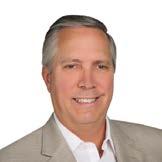
MYTH 1: “THE SENIOR CARE INDUSTRY IS OVERSATURATED— THERE’S NO ROOM LEFT TO SUCCEED.”
Why people believe it: A quick search shows multiple home care agencies in most cities, advertising across billboards, Facebook, and Google. It’s easy to assume the market is already full. The reality: The demand for senior care is not just growing—it’s outpacing supply. Even in cities with several providers, there are still waitlists for quality care, particularly in specialized services.
• In-Home Medical Care: Hospital-at-home programs, early discharges, and chronic condition management have created new demand that existing providers can’t fully service.
• In-Home Non-Medical Care: As more families opt for aging in place, the need for companionship, daily living assistance, and respite for family caregivers is skyrocketing.
• Senior Care Referral Franchises: With so many options, families
often feel overwhelmed. Referrals remain crucial for connecting people to trustworthy, vetted care. Owner takeaway: The market isn’t “too crowded”— it’s under-served in terms of quality, specialization, and reliability. The right positioning still wins market share quickly.
MYTH 2: “YOU NEED TO BE A HEALTHCARE PROFESSIONAL TO OWN A SENIOR CARE FRANCHISE.”
Why people believe it: The words “senior care” and “medical” naturally conjure images of nurses, therapists, and doctors running the business.
The reality:
• In-Home Non-Medical Care Franchises: No clinical license is required. Your focus is on recruiting caregivers, ensuring quality service, managing schedules, and building community relationships.
• Senior Care Referral Franchises: No medical background is necessary. Success here is more about understanding the needs of families and their seniors, networking, sales, and understanding the local provider landscape than hands-on care.
• In-Home Medical Care Franchises: Regulations vary by state, but in most cases, the owner does not have to be the licensed clinician. Instead, you hire or contract with medical directors, RNs, or other required professionals.
• Owner takeaway: Your role as an owner is leadership, customer service, business development, and operations management. The clinical expertise comes from your team, not necessarily from you.
MYTH 3: “SENIOR CARE IS CHEAP TO START BECAUSE YOU DON’T NEED EXPENSIVE EQUIPMENT OR A STOREFRONT.”
Why people believe it: Compared to restaurants or gyms, senior care seems “asset-light.” No ovens, treadmills, or major construction—so it must be cheap.
The reality: While you don’t have heavy equipment costs, you do have people-heavy and compliance-heavy expenses.
• In-Home Medical Care: Higher startup investment due to licensed staff recruitment,
advanced care documentation software, medical equipment (as required), and rigorous regulatory compliance.
• In-Home Non-Medical Care: Licensing in some states, recruiting, onboarding, training, caregiver wages, insurance, and scheduling technology are your main costs. You also need enough working capital to cover payroll while waiting for client payments.
• Senior Care Referral Franchises: Generally lower overhead, but they require significant marketing and relationship-building investment to generate consistent referral fees.
Owner takeaway: Don’t confuse “no storefront” with “low capital needs.” Working capital—especially to fund payroll and marketing during the first 6–12 months—is critical for success.


MYTH 4: “TECHNOLOGY AND AI WILL REPLACE THE NEED FOR HUMAN CAREGIVERS.”
Why people believe it: In 2025, headlines are full of AI companions, remote patient monitoring, smart home devices, and telehealth solutions.
The reality: Technology is transforming care delivery, but not replacing the human element.
• In-Home Medical Care: Telehealth, remote monitoring, and AI-driven care coordination make services more efficient, but skilled nurses, therapists, and aides remain essential for hands-on care.
• In-Home Non-Medical Care: Devices can alert caregivers to falls or medication needs, but they can’t provide a warm meal, drive someone to a doctor’s appointment, or hold a
hand during a difficult moment.
• Senior Care Referral Franchises: AI may help with matching families to providers, but the emotional and trust-building component still requires human connection.
Owner takeaway: The most successful franchises in 2025 are tech-enabled, not tech-replaced. They blend software, AI tools, and monitoring systems with skilled, compassionate people to create a better overall care experience.
MYTH 5: “REFERRALSAND CLIENTS WILL COME AUTOMATICALLY ONCE YOU OPEN.”
Why people believe it: The senior care industry is booming, so it feels like clients should be lining up from day one.
The reality: Whether you’re
running a referral, medical, or non-medical care franchise, clients don’t appear just because you opened your doors. Relationships and reputation drive success.
• In-Home Medical & NonMedical Care Franchises: Professional referrals from hospitals, rehab centers, social workers, and physicians are earned by proving you are responsive, reliable, and deliver consistent quality. Consumer marketing—digital ads, community events, local sponsorships—drives early growth until professional referrals take hold.
• Senior Care Referral Franchises: While your Franchisor will have established relationships with regional and national providers, you must proactively build networks
with additional local providers, facilities, and community organizations while establishing trust with families in need.
Owner takeaway: Building a steady stream of referrals is a long-term business development effort. Owners who are active in their communities, show up at events, and consistently follow through will win both consumer and professional trust.
Believing these myths can derail even the most promising business plan:
• Thinking the market is saturated might stop you from entering—when in reality, specialization could make you the go-to provider in your area.
• Assuming you need to be a healthcare professional might keep you from exploring an opportunity where your leadership skills would shine.
• Underestimating capital requirements can leave you underfunded and unable to scale.
• Overestimating technology’s role could lead you to ignore the most important differentiator—human connection.
• Expecting automatic
referrals might cause you to neglect the ongoing work of community networking and relationship building.
Whether you choose inhome medical, in-home non-medical, or referralbased franchising, the path to success in 2025 has common elements:
1. Specialization: Stand out by offering dementia care, Parkinson’s support, transitional care, or culturally specific services.
2. Community Presence: Be active in senior centers, health fairs, church groups, and local events.
3. Caregiver Focus: For direct care models, your caregiver retention strategy is your growth strategy. Invest in training, recognition, and predictable schedules.
4. 4. Technology Integration: Use tech for scheduling, family updates, and safety monitoring—but keep the focus on personal relationships.
5. Outcome Tracking: Show professional
referral sources your impact—reduced readmissions, high satisfaction scores, and strong caregiver retention rates.
The senior care industry in 2025 is not a closed door—it’s a rapidly expanding opportunity for the right owners. The myths of oversaturation, required medical credentials, low startup costs, tech replacement, and automatic referrals can keep talented entrepreneurs from stepping into a sector that’s both profitable and deeply meaningful.
By understanding the realities—and choosing the right franchise model for your skills—you can build a business that not only thrives financially but also makes a lasting difference for seniors and their families.
Joe Fox has spent his professional career as a Senior Executive owning, operating, buying, and selling multi-site businesses. He believes entrepreneurship is a great vehicle to financial independence and career satisfaction. Joe is based in Nashville, TN and has helped startup businesses all over the US & Canada and has won numerous prestigious awards throughout his career. Contact Joe at joefox@ thefranchiseconsultingcompany. com.




















by Jatinder Taneja, Consultant, The Franchse Consulting Company
As the global population ages and healthcare needs expand, franchised medical ventures have become one of the most resilient and rewarding paths for investors. From senior home care and wellness centers to other formats, healthcare franchises blend reliable revenue streams with the chance to make a lasting social impact. By tapping into proven business models, entrepreneurs can not only ride the wave of increasing demand but also deliver essential services that communities will always require.
RIDING THE WAVE OF DEMOGRAPHIC AND TECHNOLOGICAL SHIFTS
The twin forces of demographic change and medical innovation are creating an unprecedented market for healthcare services. Over the next decade, the number of adults aged 65 and older is forecast to double, driving demand for both acute and long-term care solutions. Innovations in diagnostics, minimally invasive procedures, and digital health platforms are expanding
access and reshaping patient expectations. Preventive care, chronic-disease management, and mental health support have moved from optional extras to core services— forcing hospitals, clinics, and caregivers to innovate or risk falling behind.
For investors, this translates into an industry that’s virtually immune to economic downturns. Even when consumer spending on nonessentials tightens, people continue to prioritize their health. That stability makes healthcare franchising a defensive play: you’re investing in a sector where the worst-

case scenario is usually a slowdown in elective procedures, not a wholesale collapse in demand.
1. Proven Operational Framework
By joining a franchise, you inherit a turnkey business plan—from site selection and build-out guidelines to staffing protocols and compliance checklists. That cuts months or years off your launch timeline and

slashes the trial-and-error costs that solo startups often face.
2.Established Brand Equity
Recognizable names in urgent care, home health, or wellness draw patients from day one. Brand trust translates into higher foot traffic, faster break-even points, and more predictable cash flow.
3. Training, Support, and Compliance
Healthcare is a highly regulated field. Franchise systems typically provide comprehensive training on clinical best practices, state and federal regulations, billing procedures, and electronic health-record systems— minimizing legal risks and ensuring quality care.
4. Scalable Growth Potential
Whether you start with a single clinic or a handful of home-care routes, you can replicate the model across multiple territories. Multi-unit owners often benefit from volume discounts on supplies, shared administrative infrastructure, and crossreferral networks between locations.
5. Meaningful Social Impact
Beyond profit margins, healthcare franchisees play a critical role in improving patient outcomes and expanding access to care. That purpose-driven aspect resonates with today’s workforce and can enhance recruitment, retention, and community goodwill.
EXPLORING FRANCHISE MODELS IN HEALTHCARE Healthcare franchising isn’t a

one-size-fits-all proposition. Here are four leading formats to consider:
• In-Home Senior Care: The most popular & in-demand healthcare franchise model From basic companionship to skilled nursing, homecare franchises serve the growing population of seniors who wish to remain independent. Services can include meal preparation, medication reminders, and physical-therapy supervision, all delivered in clients’ residences.
• Wellness and Rehabilitation: Extremely popular franchise model Franchises focused on chiropractic adjustments, physical therapy, massage, nutrition counselling, and mental-health coaching capitalize on the shift toward preventive and holistic care. Membership models and recurring-revenue plans drive patient loyalty and stabilize cash flow.
• Urgent Care and Walk-In Clinics
These centers treat non-
life-threatening injuries and illnesses on a drop-in basis, positioning themselves as a faster, more affordable alternative to emergency rooms. They cater to busy families, employers looking to minimize downtime, and patients without a primarycare physician.
• Telehealth and Medical Staffing
Remote consultations, virtual chronic-disease monitoring, and outsourced staffing solutions help hospitals and clinics handle patient surges and staffing shortages. These asset-light models often have lower overhead and can scale rapidly across regions.
1. Assess Your Background and Passion
Align your personal interests—such as geriatric care, sports rehabilitation, or digital health—with the franchise’s core services. Passion fuels long-term commitment and helps you weather the inevitable
challenges of business ownership.
2. Review Financial Requirements and ROI Projections
Initial investment ranges widely—from under US $100,000 for certain platforms home care to over US $500,000 for fullservice urgent care centers. Evaluate the franchise’s financial disclosures, average unit revenues, and payback timelines to match your capital and risk appetite.
3. Vet the Franchisor’s Support Infrastructure Scrutinize training
programs, field support, marketing assistance, and compliance resources. Talk to existing franchisees about their onboarding experience, ongoing communication, and the responsiveness of corporate headquarters.
4. Understand Regulatory and Licensing Obligations Healthcare franchises must navigate state licensure, Medicare/ Medicaid enrollment, HIPAA compliance, and local health-department approvals. Ensure the franchisor has a strong track record of guiding

new owners through these complexities.
5. Evaluate Market Competition and Demographics
Conduct local market research to identify service gaps and competitive density. A suburban community with a growing retiree population might favor an in-home care model, while an urban corridor could support multiple urgent-care or telehealth outlets.
Healthcare franchises represent a powerful intersection of social purpose and financial opportunity. Their resilience to economic swings, combined with the security of proven systems and the goodwill of serving critical needs, makes them an ideal investment for both seasoned entrepreneurs and first-time business owners. By choosing a model that aligns with your expertise, investment capacity, and passion, you can build a multi-unit enterprise that thrives today and adapts seamlessly to tomorrow’s healthcare challenges. In an industry where demand only grows stronger, betting on healthcare franchising is not just smart—it’s future proof.
Jatinder Taneja is a seasoned franchise consultant with over 20 years of experience in business and entrepreneurship, helping individuals find the right franchise fit aligned with their goals. His strategic insight and personalized approach empower candidates to make confident, long-term decisions in franchising. Contact Jatinder at Jatin@ TheFranchiseConsultingCompany. com.








1,100% increase in mold-related insurance claims over the past decade.
5 million Americans experience a water damage emergency yearly.
365,000 households report a fire loss yearly.
Source: The Insurance Information Institute


Restorable



How your past decisions are shaping your present choices—and what to do about it
by Mike Martuza, Consultant, The Franchse Consulting Company
Have you ever seriously considered starting your own business, only to find yourself back in another job, again? Maybe you told yourself it wasn’t the right time. Maybe the salary was too good to pass up. Or maybe the idea of business ownership just felt too uncertain.
If so, you’re not alone—and you’re likely experiencing something called self-herding.
Self-herding is a behavioral phenomenon where we unconsciously repeat our past choices simply because we’ve made them before. It’s a psychological shortcut—our brain using prior actions as evidence that a similar decision is the right one now.
Unlike traditional herding, where we follow others, selfherding is internal. You become your own compass, retracing your previous footsteps without stopping to ask if they still lead somewhere you want to go.
And while that might sound harmless, self-herding can quietly but powerfully shape the trajectory of your life— especially when it comes to career decisions.
Let’s say you once considered
owning a business. Maybe you even researched a few franchise opportunities. But then life got busy. A job offer came in. It felt safer, more familiar, so you took it.
That single choice— completely reasonable in context—can solidify into a pattern.
Next time you’re at a career crossroads, you might find yourself thinking, “Well, I’ve always worked for someone else.
That’s just who I am.” But that’s not a truth—it’s a habit of thought reinforced by repetition. The result? You keep taking jobs, not because they’re your best or only option, but because they feel consistent with what you’ve done before.
What started as a short-term decision has quietly become part of your identity.
One of the most common selfherding statements is: “I’m just not the
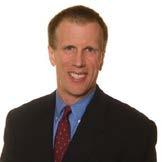
type to own a business.”
But if you dig deeper, that belief is often based on nothing more than a lack of prior action. You’ve worked for others before, so your brain creates a tidy narrative: “That must be who I am.”
This mindset can prevent you from seriously considering

business ownership—even when it aligns with your goals for autonomy, financial growth, or flexibility. It’s not that you’re not capable. It’s that you’re stuck in a loop where your past decisions are writing your future story.
Self-herding doesn’t just influence whether you pursue ownership. It also affects what kind of business you consider.
For example, if you’ve spent your career in corporate environments, you may gravitate toward whitecollar, office-based franchise models—because they feel familiar. But your current lifestyle goals might point toward something more community-based, serviceoriented, or semi-absentee.
In other words, your comfort zone may be steering you toward businesses that look like your past—even if your future would be better served by something different. Several psychological forces make self-herding easy to fall into:
• Cognitive Ease: Repeating a past decision is mentally easier than reevaluating everything from scratch.
• Consistency Bias: We like to see ourselves as consistent. Changing course forces us to confront the idea that a past decision may no longer serve us.
• Fear of Regret: New choices carry risk. If we try something new and fail, it may feel like we were wrong to change direction.
• Identity Feedback Loops: The more we repeat a behavior, the more it becomes part of our self-
image. That self-image then influences future choices— locking in the cycle.
The good news? Self-herding isn’t a life sentence. It’s just a pattern—and patterns can be broken.
Start with awareness. Ask yourself:
• “Would I still choose this path if I had a clean slate?”
• “Am I avoiding ownership because it doesn’t fit—or because it’s unfamiliar?”
• “What decision would I make today if I wasn’t bound by my past?”
If you’ve never run a business before, that doesn’t mean you’re not meant to. It just means you haven’t yet—and that’s a very different thing.
It’s important to recognize that franchise ownership doesn’t mean jumping off a cliff without a parachute. Many modern franchise models are built specifically for first-time business owners. They offer:
• Proven systems
• Ongoing support and training
• Structured semi-absentee models
• Predictable startup costs and financial modeling
In fact, franchising is often described as “entrepreneurship with guardrails.” You get to own the business—but you don’t have to start from scratch. For people trapped in a self-herding job loop, it can be a powerful onramp to autonomy with lower risk.
If you’re not ready to commit to ownership tomorrow, that’s okay. You don’t have to change everything at once. But consider experimenting with one small step that breaks the pattern:
• Schedule a call with a franchise consultant
• Attend a franchise expo or webinar
• Speak with someone who left corporate life for business ownership
Each of these actions creates a new data point for your brain. And the more you deviate from the loop, the easier it becomes to make choices based on where you want to go, not just where you’ve already been.
Self-herding feels like certainty. It feels like safety. But it can quietly fence you into a version of your life that no longer fits.
If your goals have changed, your path can too.
You’re not obligated to keep making the same choices just because you’ve made them before. Whether you’re on your fifth job or your first serious look at franchise ownership, today is a chance to pause, reflect, and ask:
“Is this still what I want—or just what I’ve always done?”
You don’t have to keep following your own footsteps. You’re allowed to step off the well-worn trail and try something different—especially if what you want is waiting just outside those old prints.
Mike Martuza is a serial entrepreneur, lecturer and author of the best selling book "The Franchise Rules." Mike has over 40 years of business ownership, business creation, franchising, consulting, coaching and management experience. He has been helping people find great "fitting" franchises for almost two decades. Contact Mike at mikemartuza@ thefranchiseconsultingcompany. com.

WELCOME TO THE DECENTRALIZATION OF FITNESS!



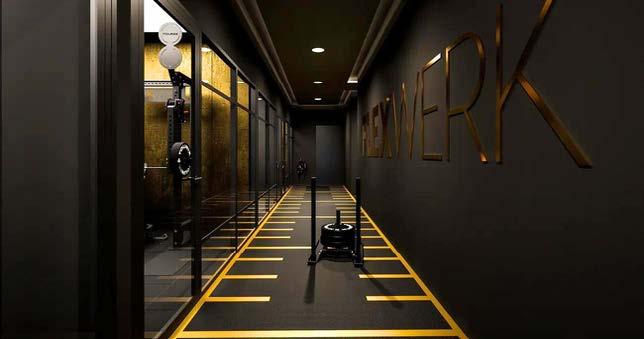
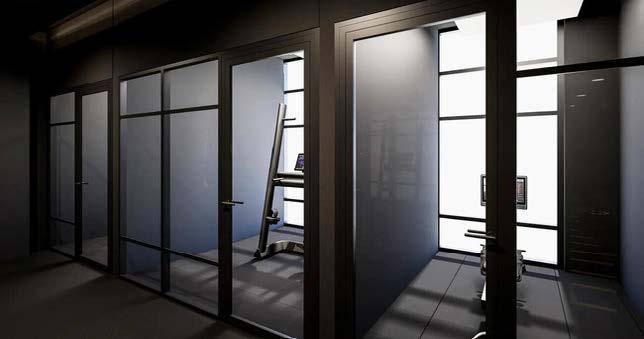
Benefits and advantages of owning a premium, highly customizable, private gym without the ongoing costs and responsibilities that come with it. The perfect place for fitness professionals to be their own boss!

Location is easy to reserve using our free app and always secure using our simple, proprietary
Built to scale. The epitome of a semi-absentee/executive business model No fitness experience is required Technology-driven operations. Strong operational playbook and support.






by Rhonda Sanderson, CEO, Sanderson & Associates
Bowie Maryland resident Ramsey Moorman found himself in a situation in 2020. But was it a common one? Many franchisors found out it was. And capitalized on the idea that incredibly talented individuals like Moorman were seeking a better, more secure future.
“I worked in corporate America, specifically in telecommunications for 23 years”, shared Moorman,
who is now the proud owner/ operator of Floor Coverings International of Bowie MD.
“Throughout my career I served consumers, small to medium-size businesses and government customers, in a leadership role. In my last position I led six sales specialists nationally overseeing a business portfolio of $53M in annual revenue. By 2020 layoffs and unfavorable compensation adjustments were taking
place and the culture, I had come to love seemed to fade. I interviewed several of my peers across multiple lines of business and they all recognized the same cultural shift. I became unfulfilled and my passion to get promoted in this unfamiliar environment faded. I had 4 choices to choose from for my future.
1. Continue down my path of striving for promotion despite the unfavorable environment and the
increase of time away from family it would require.
2. Stay on the course in my Mid-Management position and be satisfied with the salary and benefits.
3. Explore leaving to another corporate job, assuming the bureaucracy would be different.
4. Revisit a Franchise Consultant who had once contacted me to focus on viable franchise concepts for me to explore an exit strategy.
I chose the latter and looked at several companies that met my interests. I primarily focused on home services driven by my desire to engage with the community and to realize a tangible impact of our services and a scalable business that I could grow that would exceed my previous financial opportunity. Floor Coverings International stood far above the other franchise concepts with a proven model, desirable culture and values that aligned with mine (Customer Centric Focus).”
With over 23 years of leadership experience, Moorman brings a customerfocused approach and strong business acumen to the flooring sector.
“One of my core strengths is Emotional Intelligence and understanding how to identify and navigate challenges to find the right solution,” said Moorman. “By leading with a customercentric philosophy, we ensure every client receives flooring options tailored to their vision and needs, all from the comfort of their home.”
Moorman’s passion for service and innovation is supported by his wife, Caryl Moorman, who plays an integral role in operations and community engagement, and their two children who contribute to the family-run atmosphere as “junior marketers.”
Floor Coverings International’s Mobile Showroom eliminates the inconvenience of traditional flooring

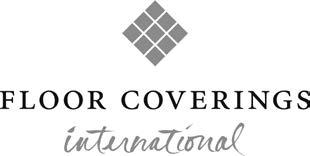
shopping by bringing an extensive selection of flooring materials—including sustainable laminates, authentic wood-look planks, waterproof laminates, advanced vinyl flooring, cozy carpets, and luxury engineered hardwood—right to the customer’s doorstep. This approach allows homeowners to view samples in their own lighting and decor, making flooring decisions easier and more confident. The Bowie location aims to meet the growing demand for petand kid-friendly floors that combine durability with style. Looking ahead, Moorman envisions significant growth for his franchise: “In five years, I aim to grow FCI of Bowie into a $5 million business with 10 team members and five Mobile Showrooms. We plan to expand commercial partnerships and deepen our community involvement through local sponsorships and giving back. Most importantly, I want to build a legacy that benefits my family and the community.”
Rhonda Sanderson is a franchise expert who has owned and operated Sanderson & Associates and Sanderson PR, both specializing in, traditional, social media and crisis PR in the franchise space since 1986. She has authored many articles, helped grow numerous franchise chains is considered one of the Top 30 Small Business Influencers (Fit Business) in the U.S. Find her at Rhonda@ sandersonpr.com or on LinkedIn where she is the author of Franchise Stars at https://www.linkedin.com/in/rhonda-sanderson-a6b658/
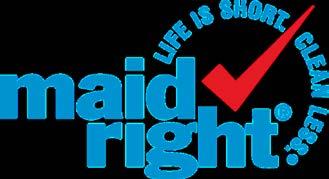



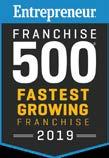



• First hair removal franchise to offer incomparable natural exfoliation and skin conditioning for every body using only sustainable, organic products
• Minimal employee model
• Recurring revenue
• Five corporate units in operation
• High-end retail offerings: skincare products and accessories
• Proprietary “smart sugaring” technique
• Top performing studio revenue: $912,912 in 2022
• Top performing net margin: 32% ...of all skin care consumers now desire all-natural, organic, chemical-free products 50%

Sugaring is faster and more effective than traditional waxing, providing a larger opportunity for revenue enhancing services
Marisa Kochnover Director of Franchise Development
marisa@repmgroup.com
917.757.7172
Rachel Stender VP of Franchise Development rachel@repmgroup.com 612.226.1408
by Becky Wang, Founder & CEO, Butterfly Home Care

My journey into caregiving didn't begin with a business plan. It began with a diagnosis. When my son was diagnosed with a disability, everything in my world shifted. I was no longer just a mother-I became an advocate, a caregiver, a coordinator, and, often, a lifeline. Navigating the complex, fragmented world of disability care taught me firsthand what it means to fight for your child's dignity, services, and independence. That deeply personal experience led me to launch
Butterfly Home Care-a company dedicated to supporting not only seniors but also individuals with disabilities and the families who care for them. What started as a response to my son's needs has grown into a mission-driven business serving people across all stages of life who deserve to thrive at home.
In most conversations around home care, the focus is on aging-and rightly so. The senior population is booming, and the desire to age in place has never been stronger. But equally important are the millions of children, teens, and adults with disabilities who need daily support-not just for survival, but for a full and dignified life.
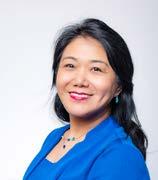
AT BUTTERFLY HOME CARE, WE BRIDGE THAT GAP.
We provide personalized, in-home care services not only for seniors but also for individuals with intellectual and developmental disabilities, autism, cerebral palsy, Down syndrome, and more. We work with families who are navigating Medicaid waivers, behavioral supports, and life skills programs. Whether it's helping someone attend community activities or teaching daily routines with patience and consistency, our work is grounded in empathy and empowerment.
Families like mine know the stakes. They know that one reliable caregiver can change everything. That's why we created a model of care that centers on cultural sensitivity, trust, and longterm relationships. We don't rush appointments
or treat people like tasks to complete. We invest in understanding each individual's strengths, preferences, and dreams. And we train our caregivers to support not just physical needs, but emotional and social ones too.
One of our clients, a young adult with autism, hadn't left the house alone in years. With the patient support of one of our DSPs, he learned how to take the city bus, order food at a café, and greet neighbors on his street. His confidence grew-and so did his independence. That's the power of care done right.
Butterfly Home Care wasn't just founded on passion-it's built on lived experience. I understand what it's like to feel overwhelmed, confused, and unsupported. I also understand what it means to be resilient, resourceful, and fiercely protective.
As our company grew, I realized that families like mine existed in every city, and they were looking for the same thing: a home care agency that sees the whole person-not just the diagnosis or age. That's why we began expanding through franchising.
Our goal is to create a nationwide network of care providers who lead with compassion and operate with integrity. Each Butterfly Home Care franchise is grounded in local relationships but supported by a central team that knows how to build a business with both heart and strength.
Our model isn't for everyone. It's for those who feel called to serve.
We welcome franchisees who want to empower their communities-veterans, educators, nurses, parents of children with special needs, and entrepreneurs who want more than just financial success. We provide training, licensing guidance, hiring tools, and the mentorship needed to build a sustainable care business.
And most importantly, we help them create real impactone family at a time.
Our caregivers are the core of our mission. We don't just recruit them-we nurture them. Many of our team members come from underserved backgrounds, and we see their work as a meaningful career path, not a stepping stone. With continuous training, flexible schedules, and a culture of respect, we reduce turnover and increase consistency for the families we serve.
As both senior and disability care needs grow in the U.S., home-based care is no longer just an option-it's the future. Public programs are shifting funding to community services. Families want personalized support, not institutional care. And communities need more
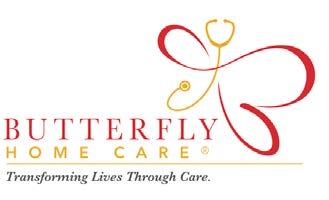
providers who are truly invested in the wellbeing of their neighbors.
Butterfly Home Care is answering that call-not with grand promises, but with quiet, consistent, compassionate care.
The name Butterfly symbolizes transformationand that's exactly what we deliver. Whether we're helping an aging parent stay independent or supporting a young adult with disabilities as they navigate the world, we believe everyone deserves the opportunity to grow, thrive, and be seen.
My story began with my son, but today, it includes every family we serve. Butterfly Home Care is more than a business-it's a movement for dignity, inclusion, and love.
To learn more about Butterfly Home Care or explore franchise opportunities, visit butterflyhomecare.com or connect with us on LinkedIn.
Becky Wang is the Founder and CEO of Butterfly Home Care, a purpose-driven franchise that empowers entrepreneurs to deliver compassionate care to seniors and individuals with disabilities. Drawing from her personal experience as a mother to a child with special needs, she built a scalable, supportive model designed for franchisees who want to build a meaningful business with lasting community impact.







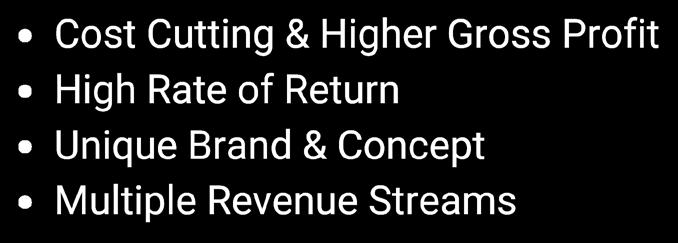



by Taylor Seitz, Franchise Development & Senior Care Professional

When she founded ElderWell® Adult Day Program, Kara Harvey wasn’t jumping on a trend, she was creating one. With over three decades of leadership in aging services, she has consistently stayed steps ahead of an industry that often struggles to meet the evolving needs of seniors and their families.
Kara’s guiding business principle has always been simple: see the gaps and build the bridge before others know it’s missing. This approach has led her to develop compassionate,
forward-thinking solutions well before they became industry best practices. Today, as the leader of ElderWell, she’s redefining senior care with a groundbreaking social-supportive model that’s resonating with families nationwide.
In the 1980s, Kara attended one of the first trainings offered by the Alzheimer’s Association in Watertown, MA. The experience was transformational.
“I became aware of the critical need for innovative services for those living with dementia,” she recalls. “That training showed me how far behind the current care models were and how much potential there was to do better.”
In the 1990s, she opened her first home care agency, prioritizing individualized, trust-based relationships over standardized, task-focused services. By the 2000s, she had expanded into a franchised, multi-service home care business, offering everything from home health to hospice, ensuring clients could remain supported through every stage of aging.
By the 2010s, Kara recognized
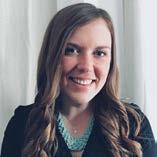
that one area remained largely misunderstood and underserved: adult day programs. “Seniors hesitate to attend adult day care because they remember the institutionalized, impersonal care their grandparents experienced in the 1950s,” she explains. “We needed to reimagine it entirely.”
The first Elder-Well® Adult Day Program replaced sterile environments with dignity, flexibility, and innovation featuring cognitive therapies, warm settings, and meaningful relationships. What began as one center became a scalable model for dementia support and caregiver relief.
Kara is creating something entirely new, a category that didn’t previously exist in the senior care space. And the timing couldn’t be more important.
The senior care industry has shifted from institutional care to more personalized models, but a critical gap remains for higher-functioning older adults
who need some assistance and social connection. Traditional options often fall short:
• Home care agencies bring help to the home but may lack social interaction and cognitive stimulation.
• Medical-model adult day care is often too clinical, geared toward those with high care needs.
From this gap, Kara developed Elder-Well®, a nonmedical, social-supportive day program for older adults who want to remain active and connected while receiving needed support.
These centers offer safe, home-like environments filled with therapeutic activities, healthy meals, and meaningful peer connection. “It’s a place of dignity, purpose, and belonging,” Kara says.
In 2013, she introduced the term “Social-Supportive” to describe this specialized approach. “We enhanced the traditional social model with a curriculum and framework to meet the cognitive, health, and social needs of our participants.” In 2024, she took it further by formally trademarking the term “Enrichment & Activity Center” to clearly define and distinguish her model within the industry.
“Calling ourselves an ‘activity center’ accurately reflects our vibrant, social space and helps remove the stigma often tied to the phrase ‘day care,’” she explains.
With an aging American population, over 58 million are now over age 65, projected to reach 82 million by 2050
and more than 7 million are living with Alzheimer’s or other dementias, the need for affordable, accessible, and compassionate solutions has never been greater.
The Elder-Well® Franchise System’s growth is fueled by a unique blend of heart and smart business. Its sustainable, community-based model offers entrepreneurs a mission-driven way to fill the gap between home care and institutional care.
For seniors, Elder-Well® offers purpose, engagement, and a sense of belonging
For caregivers, it provides affordable daytime respite and peace of mind
For franchise owners, ElderWell® delivers:
• Lean operations with strong profit potential through a low-overhead model
• Adaptable site selection for diverse markets and community needs
• High-quality, personalized care with a 1:6 caregiver-toparticipant ratio
• Sustainable work-life balance with lower burnout than home care agencies
• A ground-floor opportunity in one of senior care’s most innovative growth sectors
Franchisees are drawn to Kara’s proven track record, passion, and vision for the future. “I’ve seen where we’ve been, and I know where we

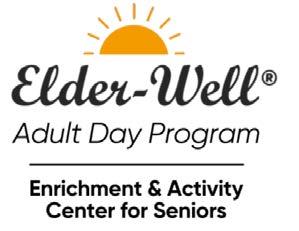
need to go,” she says. “Adult day care isn’t the backup plan, it’s the proactive, person-centered choice.”
She was ahead of the curve then. She’s ahead of the curve now. And with Elder-Well, she’s doing more than leading a franchise, she’s shaping a movement.
Taylor Seitz is a senior care and business growth professional, mother, and sandwich generation caregiver with over 12 years of experience in senior care services, operations, and franchising.
As Director of Franchising, she combines her industry expertise and personal compassion to guide ElderWell’s expansion of its innovative senior care model into communities nationwide.
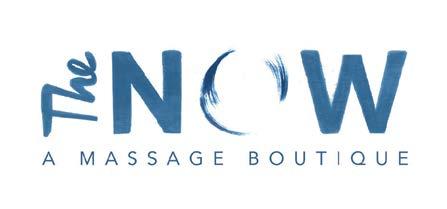

The NOW Massage, a new concept massage boutique, was founded on the principle that self-care is a necessity, not a luxury.
Designed to serve as an oasis from today’s digitally driven society, The NOW offers high-quality, affordable massage services in an inspired setting. The brand has recently signed franchise agreements representing 100+ locations in over 25 cities.
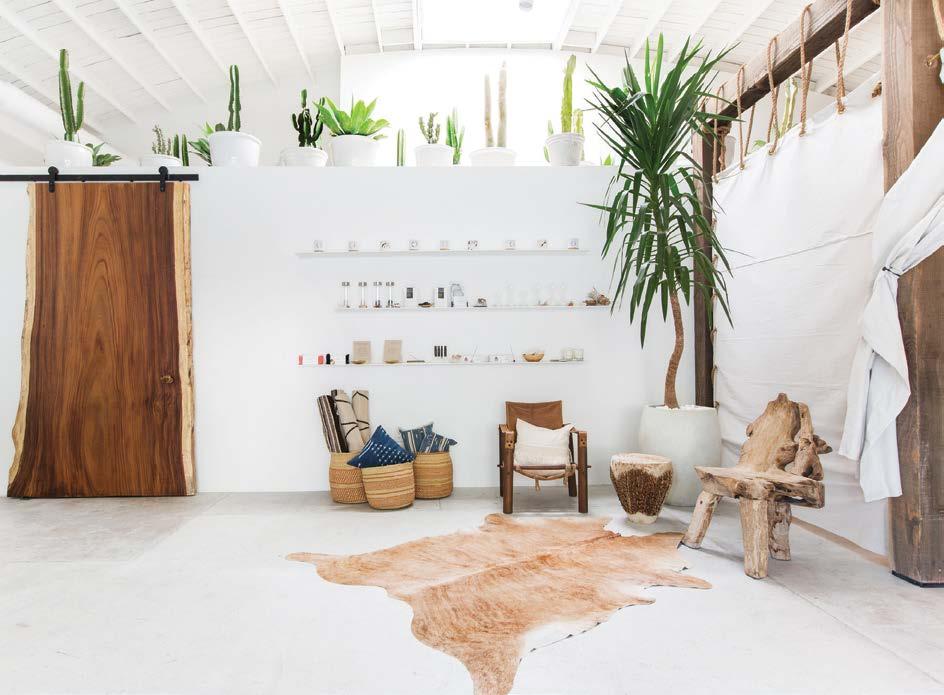


At Limitless Franchise Growth, our mission is to transform exceptional emerging franchisors into iconic brands, empowering them to achieve national expansion and market dominance. We are dedicated to unlocking their growth potential and enhancing the lives of small business owners and their communities with integrity and excellence.

PEOPLE
W e l e v e r a g e a t e a m w i t h
a p r o v e n t r a c k r e c o r d o f
s u c c e s s , c o m b i n i n g
e x p e r i e n c e a n d e x p e r t i s e
r e s u l t s .


by Leah Doroch, CDP, HP, CHT, CADDCT, Founder and CEO of Perfect Care Match
The senior care industry is growing exponentially.
Entrepreneurs seeking to make a positive impact while achieving success are entering this rapidly expanding market with a unique competitive advantage through Perfect Care Match’s (PCMatch) franchise opportunity.
An established holistic home care provider, PCMatch is a next-generation franchise that goes beyond basic caregiving. The company is on a mission to enrich seniors’ and families’ lives through holistic wellness, expertly matched caregivers, and live-in care support.
Founded in 2020, PCMatch is more than a home care agency. It’s leading a movement toward holistic, stress-free home care. Unlike traditional agencies that focus solely on Activities of Daily Living (ADLs), PCMatch
nurtures clients’ mind, body, and spirit, leading to better health outcomes and a higher quality of life for both clients and their families. This includes ensuring proper nourishment, regular movement, and social engagement for each client, while supporting sustainable, generational health for seniors and entire households.
PCMatch stands at the forefront of revolutionizing home care, offering franchisees a unique entry point into the booming home care sector with a proven business model that prioritizes holistic wellness and comprehensive support. The numbers tell a clear story. Every day, 10,000 Americans turn 65. By 2050, that population will grow to 82 million, or nearly a
quarter of the nation.
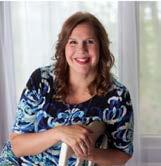
Most older adults say they want to age in their own homes, and their families overwhelmingly support that choice. According to AARP, 90 percent of seniors desire to 'age-in-place', and 85 percent of adult children prefer home care for their parents.
This demand fuels a rapidly expanding industry. The U.S. home healthcare market, valued at $194.24 billion in 2024, according to a report by Precedence Research, is projected to surpass $644 billion by 2034—a growth rate that makes it one of the most promising sectors for entrepreneurs.
PCMatch’s leadership team brings nearly 30 years of

combined experience across assisted living, home care, and skilled nursing facilities, with specialized expertise in memory care for Alzheimer’s and other forms of dementia. This deep industry knowledge creates a solid business model that delivers exceptional outcomes while positioning franchisees for success.
PCMatch's integrated holistic approach to care enhances health, wellness, and quality of life for seniors and can reduce hospitalizations by minimizing exposure to infections, risk of injuries, and falls. For dementia patients, remaining in familiar surroundings with consistent caregivers also helps to relieve common symptoms such as stress and anxiety.
The company’s innovative models of care overcome traditional industry challenges, offering multiple competitive advantages. The company’s exclusive Live-In Home Care Services set it apart in the industry. These include Live-In Care Support, Live-In Memory Care, Live-In PLUS Program, and its exclusive Assisted Live-In Home Care Program, which incorporates live-in aides, supplemental caregivers, and a skilled nurse. This program goes far beyond typical hourly services, offering cost-effective, customizable solutions.
The PCMatch model simplifies operations and generates stronger caregiverclient bonds, resulting in higher retention rates. Since few agencies specialize in
live-in care, PCMatch’s unique expertise can transform potential competitors into valuable referral sources, further strengthening revenue opportunities.
PCMatch removes many of the roadblocks that hinder new home care operators. Its proprietary caregiver-client matching system ensures optimal compatibility, fostering trust and reducing costly turnover. Franchisees benefit from a robust training and support structure that covers operational management, compliance, marketing, and client acquisition—ensuring they are fully equipped to build and sustain a thriving business.
The company’s Signature Recruiting Program represents a game-changing advantage, providing franchisees with access to professionally vetted care staff candidates. This streamlined recruitment process ensures rapid service deployment while maintaining the highest quality standards, enabling them to begin operations quickly and confidently.
PCMatch offers franchisees access to comprehensive holistic wellness education, coaching, and support programs, including workshops and retreats, enhancing market positioning while providing additional revenue streams for franchisees.

The company’s specialized memory care program, which incorporates geriatricpsych nursing consultations, positions franchisees as trusted dementia care experts. The live-in care model fosters stable recurring revenue while giving franchisees a market differentiator that drives client loyalty and strengthens their competitive positioning.
Perfect Care Match is proving that home care can be both profitable and profoundly human. Its integrative model meets market demand while restoring dignity, connection, and wellness to the lives of seniors and their families.
“In an industry where consistency and compassion are everything, we’ve built a system that delivers both— while giving franchise owners the tools to grow a sustainable, impactful business,” says founder Leah Doroch. “I believe that keeping seniors at home is just the beginning. Our mission is to support families in creating Generational Health— sustainable wellness that lasts well beyond care.”
For more information on Perfect Care Match’s franchise opportunity, contact info@perfectcarematch.com and 1-833-PCMATCH (1-833-726-2824).

Lifetime Green Coatings provides the Nation's only eco-friendly, high performing epoxy alternative floor coating for homes and businesses, using a naturally based, patent-protected formula. Our application process takes fractions of the time and hassle for our crews. What takes our competitors a full day to complete one garage, our crews can complete five to six garages in a day! For the past 6 years we have coated over four million square feet across the U.S. in residential homes and businesses and have no plans of slowing down! Territories are going quick, reserve your LGC franchise today.





Proven Business Model
Semi-Absentee Option
4 Billion Dollar Industry
Green Alternative to Epoxy
Scalable in B2C and B2B verticals
Naturally based, patent protected formula made in the USA
Home Based Business
Simple Labor Model
Dallas Company Owned Outlet
$97,000 - $149,750
$49,500
Low
Multiple Revenue Streams
No Direct Competition
Category Disrupter
Robust Support Teams
Simple & Quick Application Process
Great communication, networking & sales skills
Ability to Scale
Owner Operator or SemiAbsentee
Customer Service Focused
Net Worth: $150,000 Liquidity: $70,000

by Anne Pearce, Consultant, The Franchse Consulting Company
In the world of healthcare and waste management, nuances matter: safe disposal, space efficiency, odor control, and aesthetics are more than conveniences—they’re mandates. Enter SubContain, a game-changing, semi-inground waste collection system championing a new era of sanitary, efficient, and visually appealing disposal—now launching across the U.S.
A PROVEN GLOBAL SOLUTION LANDED STATESIDE
SubContain brings the exclusive U.S. franchise rights to Molok’s underground waste systems, which are battle-tested across the world. Since as early as 1991, more than 270,000 units have been installed in over 45 countries—notably in Europe and Canada—demonstrating durability, performance, and wide market acceptance.(USA) These semi-inground units are now making their debut in America—marked as a timely and bold evolution in commercial and institutional waste infrastructure. (franchisejournal.com, USA)
THE SUBCONTAIN ADVANTAGE: CLEANER, SMARTER, MORE SPACEEFFICIENT
The design is deceptively simple yet vastly superior to traditional dumpsters:
• Semi-inground design: Most of the container lives underground; only a sleek, thoughtful module is visible at the surface.
• Natural compaction: Vertical structure and gravity reduce waste volume by 30–60%, powering fewer pickups and lowering hauling costs by around 30%.
• Odor and pest control: Underground storage keeps contents cool, capped, and sealed— meaning dramatically reduced smells, rodents, and unauthorized dumping.
• Space-saving: No need for bulky concrete pads, fencing, or laneways. SubContain units can reclaim critical real estate—ideal for hospitals, clinics, senior-care facilities, and compact urban sites.
• Aesthetic & customizable: Clean looks, customizable signage, and vinyl wraps

ensure that sites remain visually appealing and blend seamlessly into environments.
SUBCONTAIN MEETS MEDICAL WASTE NEEDS
Healthcare settings demand rigorous hygiene and efficiency. Medical waste—ranging from sharps to infectious materials— poses significant health and environmental risks if mishandled. Globally, around 15% of healthcare waste is hazardous, and improper disposal can expose workers, residents, and the public to grave dangers.(PMC, Wikipedia)
SubContain’s semi-inground dumpsters offer hospitals, clinics, labs, and long-term care facilities a safer, cleaner, and more efficient collection method that supports:
• Strict containment, limiting exposure and sharps risk
• Reduced pickup frequency, freeing resources and lowering operation costs
• Discreet placement,
keeping medical campuses orderly and odor-free
At the helm of this U.S. transformation is Ian Paradis, President of SubContain (and one of its founding minds), whose leadership is propelling this franchise launch forward.
Guided by Paradis and his fellow founders Harry Clayton and John Dobson, SubContain isn’t merely importing a product—it’s launching a franchise model tailored for American scalability and local impact.
A dynamic 35-year-old entrepreneur from Louisiana recognized the tremendous potential in Subcontain. Coming from a family whose business legacy reads like a Louisiana dynasty, he grew up immersed in entrepreneurship. His grandfather built a statewide financial services
SUBCONTAIN
empire, which his father later expanded before the company was acquired by private equity. Eager for his next big opportunity, he was introduced to Subcontain and immediately saw its promise. It didn’t take long for him to realize the scope of the opportunity and secure a significant territory; the entire state of Louisiana. To him, Subcontain represents not only a disruptive and revolutionary concept in waste management but also an investment poised to deliver substantial ROI while transforming the industry’s future.
SubContain’s rollout isn’t ad hoc—it’s a franchise opportunity backed by proven technology. As outlined on platforms like Franchise Direct, SubContain offers:
• A recurring-revenue model, since medical and commercial waste is a constant need
• Broad applications—from multifamily housing to healthcare institutions and municipal clients
• Full franchise support— covering sales, permitting, installation, and operations
• Strong environmental appeal and regulatory alignment(USA)
WASTE REVOLUTION NEARS SHORES
Social media buzz and case study hints indicate the dramatic operational

gains these units provide. For example, in Raleigh, NC, installations of similar units yielded 90% labor reductions and 92% fuel savings, underscoring massive efficiency benefits.(Instagram) These units’ global acceptance—270,000 deployed—signals robust viability. And now, as they hit U.S. soil under leadership like Paradis’s, they’re poised to disrupt entrenched norms and elevate standards.
SubContain, under President Ian Paradis, is ushering in a quiet yet transformative revolution in medical and general waste collection across the U.S. by introducing semi-inground dumpsters—a proven, beautiful, and efficient alternative to traditional systems. With decades of global deployment behind it, and a strategic franchise model ready for the American market, SubContain is not just changing how we manage trash—it’s redefining how we think about public health, sustainability, and space.
Anne Pearce is a franchise consultant who helps professionals achieve business ownership through franchising. She offers a service that helps eliminate sales calls from brands that aren't a good fit and targets the correct models for her clients specific business needs. Contact Anne at APearce@ TheFranchiseConsultingCompany. com.





After opening in 2017, 1611 Indoor Golf Club has quickly become the premier golf game improvement and entertainment facility in the Dallas- Fort Worth Metroplex. We offer something for golfers of all skill levels. Improve your golf skills using our state-of-the-art tracking Trackman technology or grab a drink at our full bar and choose from over 200+ world famous courses to play a full round.

Making an impact on the lives of those in your community is just the beginning of why a Legato Living Franchise is a rewarding franchise to open.


If you are interested in becoming part of the Legato Living Franchise Family, we can help you get started through our proven Legato process in almost any location within the US that meets market standards (minimum 8 per home in a population area of 100,000+). Build a business while building your real es tate portfolio.
Our Passion: Developing compassionate people into impactful business owners.
Our Market Niche: Turning a big box industry into an individualized, compassionate, boutique experience.

Step 1: Discovery
Introduction – Qualify
Explore – Establish Territory – FDD
Validate – Talk to Owners and Leadership
Discovery Day – In Omaha
Step 2: Launch
Regs and local ordinance
Land Purchase/Home Purchase
Build/Remodel
Marketing/Sales Operations
Omaha Visit
Step 3: Coach
Establish Key referral Partners
Establish Digital Marketing Strategy
Billing and Payroll Support
HR
Sales Implementation
Step 4: Build
On Site Visit
Maximize Occupancy
Second Location
Step 5: Perfect
Running 3 Locations
Contact: Erin Render, CEO | erin@legatoliving.com
by Ashley Taylor, President, Content Recovery Specialists
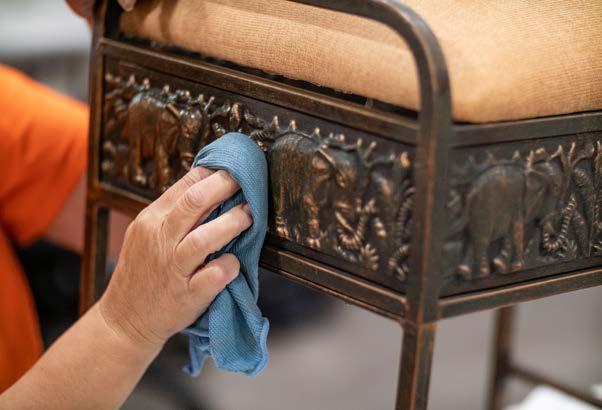
When a fire strikes a home, the loss extends far beyond damaged walls and smokefilled rooms. For senior citizens, these events can be especially devastating— erasing decades of cherished memories, disrupting routines, and threatening their sense of safety. Often times, due to the extent of the damage, people are removed from a home that they have known for decades and raised their families in.
One particular job comes to mind when I think about the true joy that comes from returning a customer’s
belongings to their home. Richard had been living in his home alone for almost a decade and experienced a fire in his kitchen which destroyed his whole home. He was a collector of sorts and loved to collect a variety of different things. When I first arrived on the scene, like many homeowners, he was certain his life’s work was lost forever, and he would never be able to enjoy his collections again. I was quick to explain that while things looked bad now, they were fixable and we would be able to save most, if not all of his belongings. To say he was shocked and relieved is an understatement. When we were finally able to pack his contents back to his home, seeing the look on his face makes every day worthwhile. He was “tickled pink” to be able to enjoy life back in a familiar space with familiar items.

For many seniors, a fire loss is not just about physical damage—it’s about losing the familiarity and comfort of a place they’ve called home for years. Whether it be a commercial senior citizen housing complex or a single-family dwelling, Content Recovery Specialists is equipped with the latest tools and technologies to make the transition smoother and faster. It can be scary to let a company take your most prized possessions to a warehouse for storage. This is why we work with the insured every step of the way to ensure they are well informed of the processes and procedures we follow. We also complete a comprehensive digital inventory of all items we remove from the home for an extra layer of security.
It is amazing what you can collect over the years and for a senior that may be even more special and irreplaceable items. Family photo albums, heirlooms,

letters, and keepsakes often carry far more value than furniture or appliances. Our teams are specially trained in content recovery, using advanced techniques to clean, deodorize, and restore treasured items whenever possible. In doing so, they help seniors hold on to their memories, even when so much else feels uncertain. The best part is, these memories can then be passed down from generation to generation.
Special care is needed when it comes to restoring medical and assistive equipment that many people rely on for independence in their day-to-day life. From mechanical beds to walkers and wheelchairs we meticulously store each item for safekeeping until they are ready to move back home.

restoration—we are in the business of people. Nowhere is this more evident than in the way we serve seniors after a fire. By combining technical expertise with compassion, we provide a lifeline to some of the most vulnerable members of our communities. Each project is a reminder that our work is not just about fixing things, but about helping people rebuild their lives.
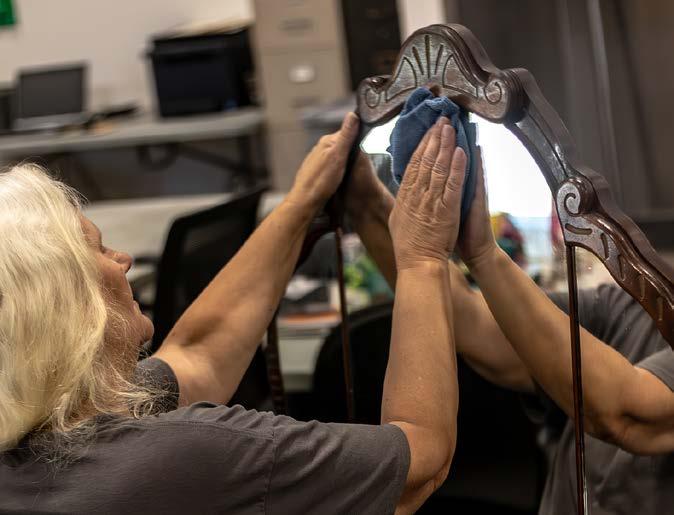
And if they need to move into another housing situation, we help with that too.
At the heart of our company is the belief that we are not just in the business of content
Ashley Taylor is a seasoned restoration specialist with a focus in content restoration. Now the President of Content Recovery Specialists, she focuses her career on spreading the benefits of CRS across the nation.

Proprietary Combinations of IV Infusions Lifestyle Drips, Cancer & Cardiovascular Support





Home Clean Heroes is a fast-growing residential cleaning franchise that supports local first responders with every home that they clean.

Mission Based: A portion of every cleaning fee goes to support local market first responders
Low Investment, Fast Start-up: Item 7 investment range is $76,902 - $100,851 and includes the majority of first year marketing expenses. Franchisees can be open as quickly as 60 days after signing
Part of the Buzz Franchise Brands family: engagement and extensive ongoing support
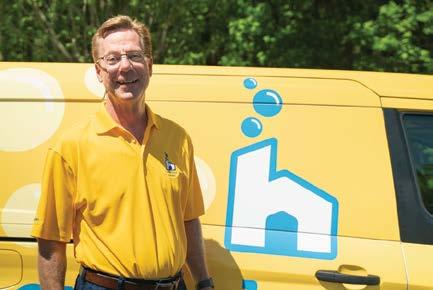
“I chose Home Clean Heroes because everything was buttoned up and put together. From the spectacular training, marketing, leadership team all the way to the cleaning processes. At the end, it came down to the
-David Houck, Owner of Heroes of South Charlotte

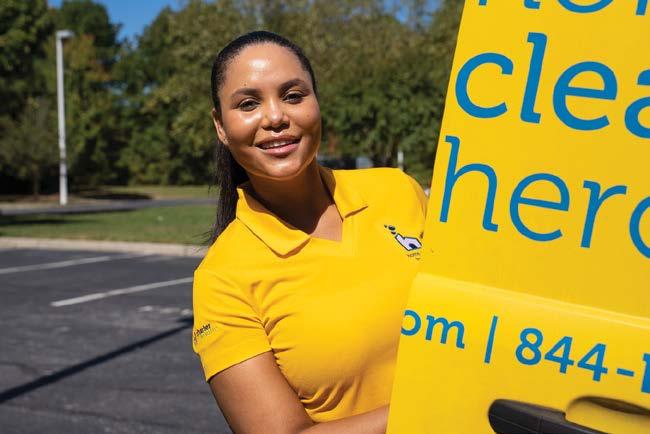
franchise.com
homecleanheroesfranchise.com

by Jeff Dudan, Entrepreneur, Content Recovery Specialists
Franchising has the power to change lives. It’s one of the most effective ways to scale a business and create wealth—and one of the most unforgiving. Studies have shown that nearly seventyfive percent of new franchisors fail within twelve years. Each year, hundreds of new brands franchise, yet the total number of active franchisors in the United States barely changes. For every new entrant, another one fades away.
Even more sobering, fewer than five percent of franchisors reach one hundred units. More than eighty percent remain permanently small, often stuck below twenty locations, which becomes a death spiral and unpleasant for all involved.
I’ve spent my career building and advising franchise systems, and I can tell you from experience: it’s not hard to call yourself a franchisor. What’s hard is building a franchise brand that lasts.
Looking back at my career, there were a handful of decisions—less than ten— that ultimately determined my outcomes in life. Some decisions were good, and others were not, but at the end of the day, our business outcomes and our life outcomes are a function of our decision-making.
The most impactful decision for me was finding the right groups at the right time to broaden my perspective and inform my thinking. I have been a member of Vistage, Strategic Coach, Genius Network, YPO, and EO, and served in various capacities for the IFA. Each one of these groups is organized differently. Some are educationfocused, others focus on networking and creating oneof-a-kind experiences. All have the same goal: to make you a higher-functioning human and exponentially increase your outcomes, whatever you decide them to be.

This is why I created FranMastery.
FranMastery combines the very best of the most exclusive and powerful groups that exist in business today: the educational excellence of Vistage and Strategic Coach, the networking excellence of the Genius Network, and the confidentiality and integrity of YPO and EO.
FranMastery begins with a highly regarded 2.5-day, inperson Franchise Foundations event, provides ongoing specific franchisor brandbuilding tools in an online learning management system, hosts a monthly mastermind, operates an online community for franchisors and their key employees, and offers a crisis hotline—just in case.
If you want to understand what makes FranMastery different, you should review the Code of Conduct from the link at the bottom of the website to get a sense of how FranMastery
creates an environment of unbiased information, truth, and transparency.
You can find the Code of Conduct at www.franmastery. com/code-of-conduct.
As a long-time beneficiary of the franchise industry, FranMastery will be my vehicle to contribute to excellence in franchising and expand the reach and relevance of the franchise industry worldwide.
The first five years of bringing a new brand to the franchise marketplace include predictable phases that you must traverse and challenges that are unavoidable. Your preparation and construction of your franchise program will determine how well you navigate these waters.
I invested fifteen years in bringing my first brand to the franchise marketplace, and another nine years to grow it into a national brand. I accomplished with subsequent brands in fifteen months what it took me fifteen years to accomplish the first time around.
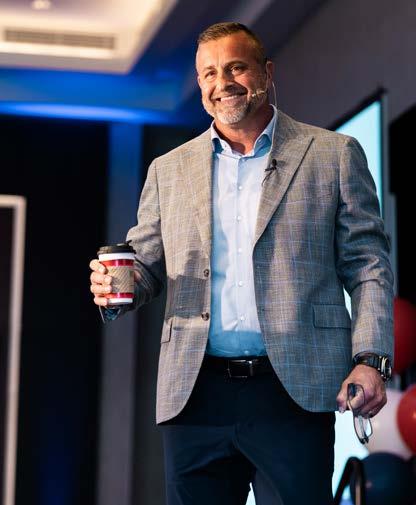

Why would this be? Wrong assumptions, wrong people, wrong advice. It cost me a fortune in time, money, and energy playing the long game of trial and error.
I’ve seen hundreds of emerging franchisors fall into the same traps: launching early, lack of systems and support, attracting the wrong franchisees or failing to attract enough of the right ones, and failure to take appropriate actions when franchisees struggle.
Knowing what to do, when to do it, and having the courage to act only comes from being certain. This certainty is what FranMastery brings to a franchisor and their people, in a confidential setting alongside other founders building great brands.
When has anything started poorly and gone well?
Creating the foundation for your franchise program and the first twelve months of operating will determine, in large part, your ultimate outcome.
Many franchisors do not survive for five years, most fail within twelve, and only a fraction reach one hundred units. While the statistics are daunting, they don’t have to define you.
I’ve lived this journey, and I
know how challenging those early years can be. With the right plan, mindset, and people, you can build a franchise system that will stand the test of time.
FranMastery is everything I wish had existed when I was in the trenches. Is it right for you?
There is some rigor in the membership award process in the tireless pursuit of a valuable, high-quality member experience.
To begin the evaluation process, visit www.FranMastery. com and fill out the Initial Qualification Form. Next, there will be an interview with a member of FranMastery, followed by a Membership Application that will be a deeper dive into backgrounds, financials, and concept feasibility prior to award.
Jeff Dudan is an entrepreneur, angel investor, thought leader, and highly sought-after business builder in the franchise industry. Over his 30-year career, he has successfully founded and scaled multiple franchise brands and franchise servicing companies, creating exit values in the hundreds of millions of dollars. Throughout his career, he has empowered franchisees to create thriving, communityfocused businesses that positively impact families, employees, and local economies, while aligning with charitable organizations that support pediatric cancer, childhood literacy, and transitioning military veterans.
Jeff appeared on Season Eight of Undercover Boss and hosts the popular Unemployable Podcast with Jeff Dudan, which has been highly ranked as one of Apple’s Top Entrepreneurship podcasts. Jeff is a business athlete, husband, father of three, coach, and mentor.
Jeff is currently the Chairman, CEO, and Founder of Homefront Brands

Focal Point Coaching & Training is a franchise organization of business coaches and trainers who work with entrepreneurs, business owners, and executives to help enhance their companies and their lives by leveraging the coaches’ business experience and our proven content.

FOCAL POINT BUSINESS COACHING FRANCHISE HIGHLIGHTS
Best-in-class training for new f ranchisees plus extensive ongoing support.
Extensive marketing support (Strong Start & QuickStart Programs).
Multiple revenue streams available to f ranchisees. Proven processes & content developed by founder Brian Tracy , a globally known Business Growth Expert.
Flexible hours & location! Home based or work from an executive shared space.
High margin business to business opportunity and streamlined business model. No specific industry knowledge needed.
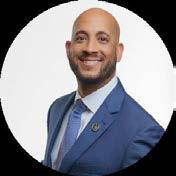
Many available territories!

Decades of huge growth potential.
Focal Point is positioned as the next generation of Business Coaching and is a clear market leader in choosing to become a Business Coach.
MULTIPLE AREA DEVELOPMENT OPPORTUNITIES!
THE IDEAL FOCAL POINT FRANCHISEE CANDIDATE IS:
A seasoned business professional (generally 10-15 years experience in Management and an Executive-level position)
Self-confident with excellent
c ommunication skills
Looking for a better work/life balance
Self-motivated with perseverance
P roblem solver who enjoys a challenge
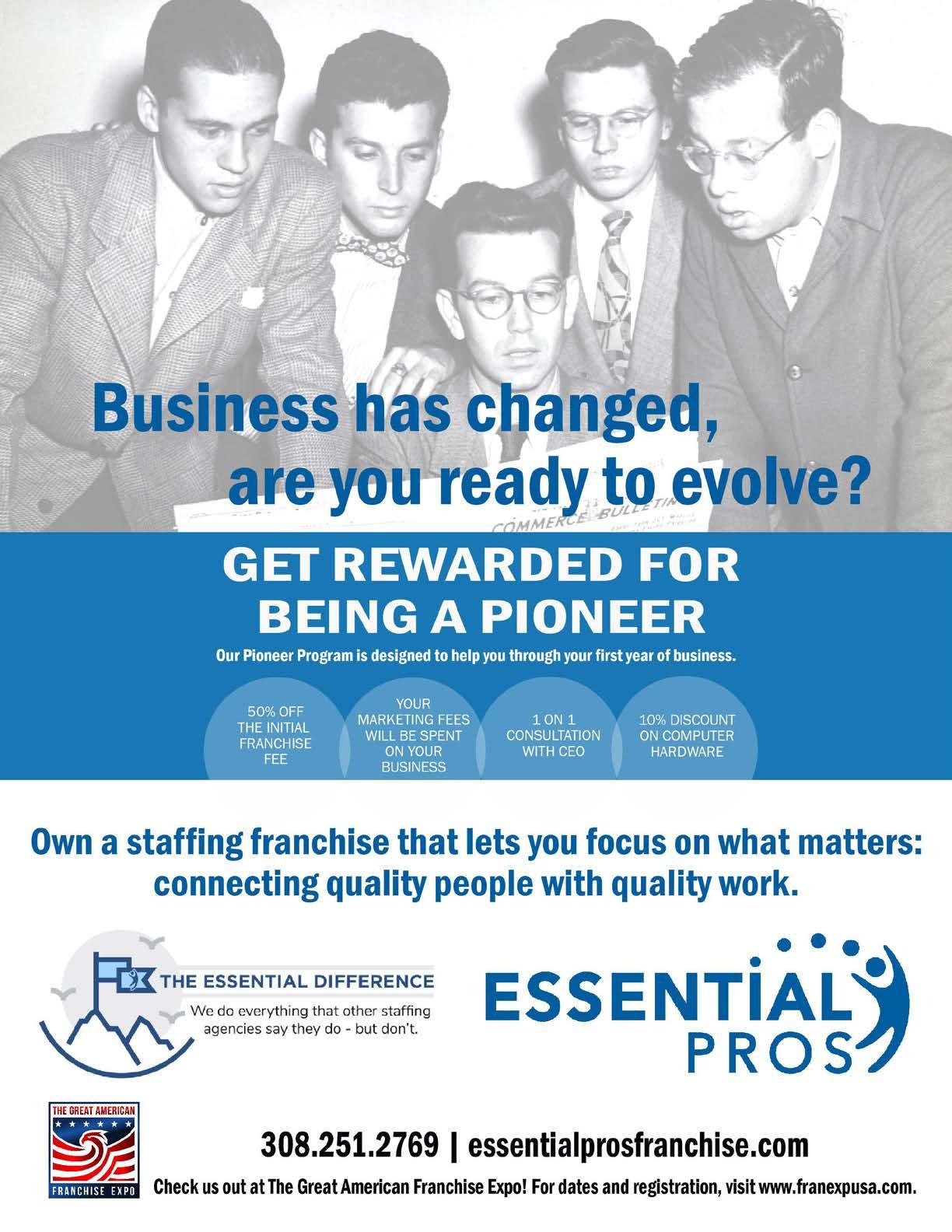
by Harold Montgomery, Global Growth CEO, iBuy App
For decades, small businesses have relied on traditional advertising channels — TV, radio, and print — to reach local customers. But times have changed. Audiences for these legacy media outlets have been shrinking for years, and digital advertising options can be expensive, complicated, or ineffective for merchants without a large marketing budget.
Enter the iBuy App — a powerful, affordable, and data-driven solution designed specifically for small businesses. By combining the reach of mass media with the precision of digital marketing, iBuy is transforming how local merchants attract and retain customers - and for franchisees to score profits fast! Here’s why iBuy App is the future of small business advertising:
1. It Aggregates Motivated Consumers in One Place
The iBuy App is more than just a directory — it’s a centralized marketplace where consumers can easily see all their local shopping options at once. This convenience attracts motivated buyers who are actively looking to make a purchase, not just passively scrolling. For small businesses, that means every impression has higher potential to convert into a sale.
2. It Expands Reach to Thousands of New Customers
Many small businesses struggle to get noticed outside their existing circle of loyal customers. The iBuy App changes that by aggregating consumers into a single platform, enabling
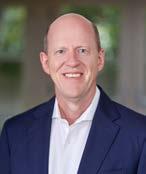
merchants to put their business in front of thousands of potential buyers who may have never heard of them before. In one move, a small shop can level the playing field with larger competitors.
3. It Gives Businesses Actionable Customer Data
Unlike traditional advertising, where you send out a message and hope for results, the iBuy App provides direct contact information for each consumer to its merchant customers. It also tracks spending behavior over time, so merchants know exactly what customers are buying, how often they’re buying, and how much they’re spending. This insight allows for
smarter, more targeted marketing campaigns that deliver better ROI.
4. It Replaces Declining Legacy Media Channels
TV, radio, and print have long been staples of small business marketing, but audience numbers are falling fast. Consumers are spending more time on their phones, not in front of a newspaper or traditional broadcast. The iBuy App steps in to fill that gap, giving merchants an advertising solution that meets customers where they actually are — on their phone and engaged.
5. It Brings Leading-Edge Digital Marketing to Main Street
Digital marketing can be complex and intimidating, but the iBuy App packages powerful tools into one easy-to-use platform
Merchants can reach customers through:
• Email campaigns for direct engagement
• Text messaging for instant offers and reminders
• Video content to tell their story visually
• Social media integrations that tap into TikTok, Instagram, and other channels that dominate consumer attention today
This means even the smallest business can launch campaigns that look and perform like those from
national brands — without the national brand budget.
The iBuy App combines visibility, data, and modern marketing tools in a way that no other local advertising option can match. It helps small businesses get discovered, stay connected to customers, and compete in a digital-first world.
As consumer behavior continues to shift online, the small businesses that thrive will be the ones that embrace platforms like iBuy — where motivated buyers and growth-minded merchants

meet. In the future of local advertising, iBuy isn’t just an option. It’s the advantage
An iBuy franchise guarantees you a place in the dynamic world of digital advertising. You will be selling a service that businesses in your area need and want to buy.



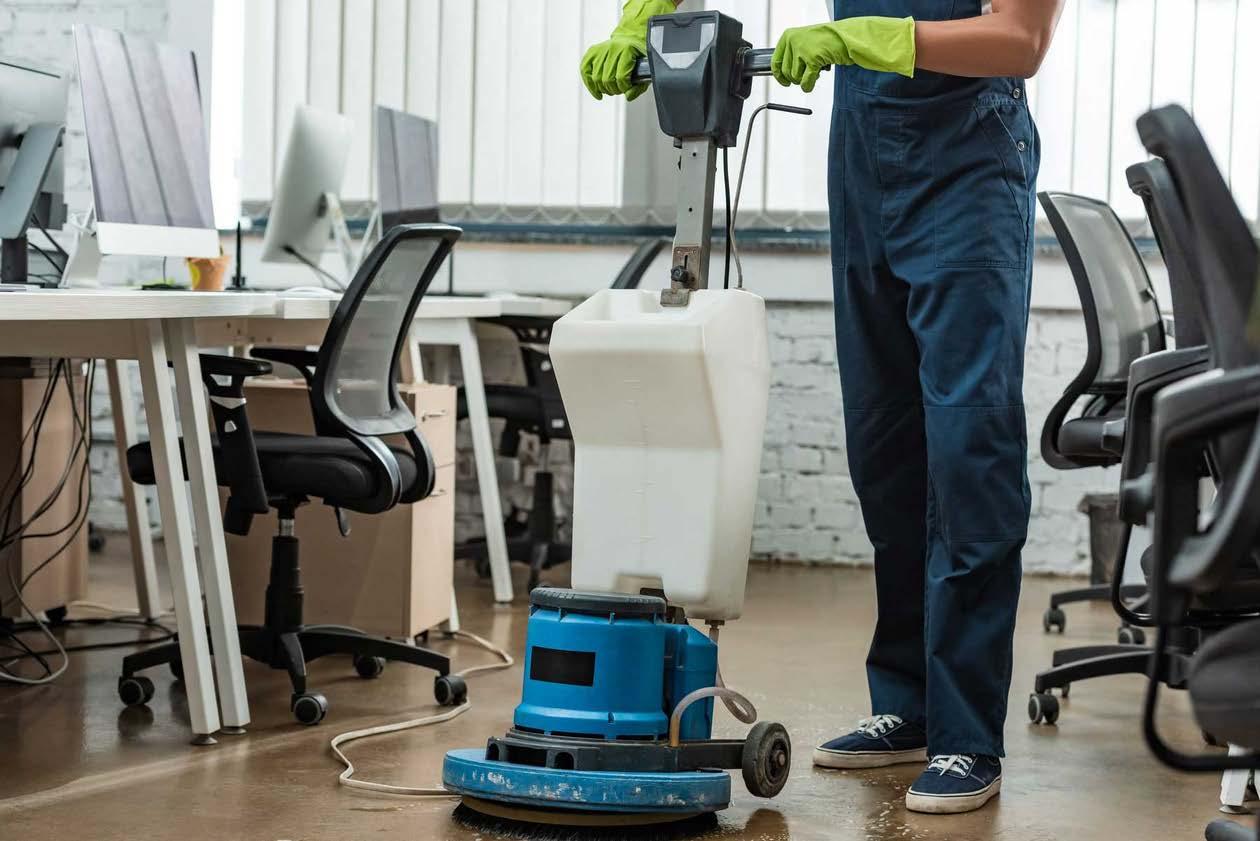
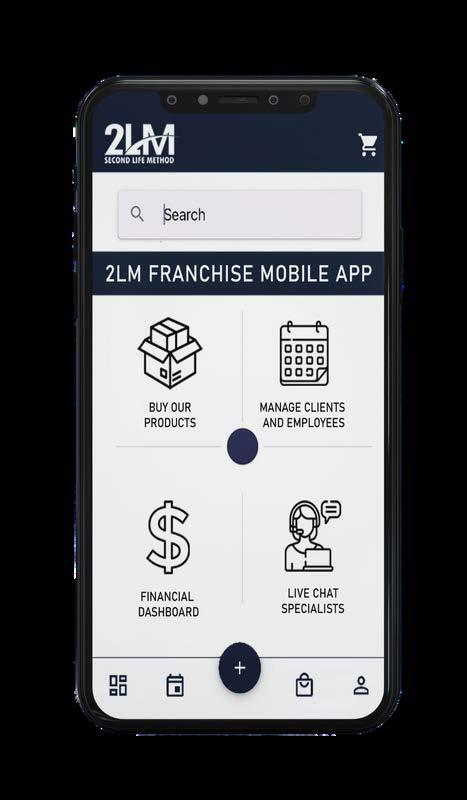


by Tony Jeary, The RESULTS Guy™
Alot of people talk about growth. Fewer are willing to do what growth actually requires. In my experience— working with high achievers, franchise leaders, and executives worldwide—there’s one trait that separates those who keep evolving from those who level off: coachability. Being coachable doesn’t mean taking every piece of advice. It means staying open. It means being willing to look in the mirror, receive feedback, and adjust quickly. It’s a mindset, and it’s one of the most valuable assets you can bring to the table, whether you're a franchisee, a franchisor, or a team leader.
TONY, HOW DO YOU DEFINE COACHABILITY?
Coachability is the ability to listen, absorb, and apply perspective without defensiveness. It’s having enough humility to know you don’t know everything, and enough drive to keep improving. The people I coach who achieve the biggest breakthroughs are the ones who seek feedback before they need it. They ask the right questions. They want
the truth, even when it’s uncomfortable.
It’s not about agreeing with everything you hear. It’s about processing feedback, owning what applies, and using it to sharpen your execution.
Coachable people are learners. They read, they ask, they observe, and they apply. They value being challenged. They

invest in themselves in all aspects.
They also show up with curiosity. They ask, “What am I missing?” They know how to separate ego from opportunity. And they make it easy for others to speak into their life or business because they don’t react, they reflect.
One of the most practical signs of coachability is follow-


through. If you listen and don’t apply, you’re not coachable. Coachable people act on what they hear.
HOW DOES COACHABILITY AFFECT PERFORMANCE AND RESULTS?
It’s a multiplier. Coachable people learn faster, correct mistakes sooner, and align
COACHABLE PEOPLE LEARN FASTER, CORRECT MISTAKES SOONER, AND ALIGN MORE QUICKLY WITH WHAT WORKS. THEY REDUCE FRICTION INSIDE TEAMS. THEY LEAD BETTER CONVERSATIONS. AND THEY CREATE AN ENVIRONMENT
more quickly with what works. They reduce friction inside teams. They lead better conversations. And they create an environment where growth is expected, not optional.
I’ve seen coachability accelerate franchise performance, build stronger leadership pipelines, and increase ROI on training and development. It creates momentum because the mindset of “I can learn and improve” spreads.
MORE COACHABLE?
Start by being honest with yourself. Ask, “Where have I been closed off?” Look at how you respond to suggestions. Do you welcome them or deflect them?
Then, make feedback part of your rhythm. Don’t wait for formal reviews, go get it. Ask your team, your peers, even your customers. Reflect. Take notes. Document your epiphanies. I track mine every year and connect them to my goals. It’s one of the ways I stay sharp and aligned. Most importantly, decide. Coachability is a decision. The best leaders I know choose it every day. They
show up with intention and hunger, not obstinance.
If you want to grow, coachability isn’t a soft skill— it’s a competitive advantage. The person with the fewest blind spots usually wins.
So ask yourself: Are you truly coachable? Are you inviting feedback, acting on it, and using it to level up how you lead, sell, and serve?
That’s how top performers stay on top. And that’s how results compound.

Tony Jeary is a strategist, keynoter, coach to the world’s top CEOs and prolific author of over 100 titles. Tony lives in Flower Mound and works out of his think tank, the RESULTS Center, where he and his team encourage and inspire all those he touches, resulting in their enhanced sales and profitability and raising their companies’ value.
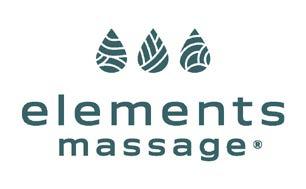
The Elements Massage® brand is a holistic massage therapy franchise that offers personalized treatments through a variety of massage therapy modalities, following The Elements Way ®. We exist so clients feel an improved sense of health as they seek to benefit from pain relief, stress reduction and overall wellness. We are committed to The Elements Promise, which means our massage therapy will meet or exceed your expectations, or the next one is on us! Celebrating nearly 20 years of holistic wellness and therapeutic values, Elements Massage® has more than 250 franchise locations across the USA and 75 under development, nationwide.



TOTAL INITIAL INVESTMENT
$322,783 - $517,125*
TARGET MARKETS
650+ territories available! Los Angeles, Bay Area, DFW, Houston, Austin, San Diego, Tampa, Ft. Lauderdale, Jacksonville, Orlando, and more!








Paramount is an end-to-end solution from inception through completion. The Paramount Team will provide the convenience of a single point of contact from furniture design, specification and procurement through installation and coordinated commercial moves.
SUPPORT COMMITMENT ONE SOURCE

Furniture & Design
Installation & Warehousing
Architectural Interiors
Facility Services


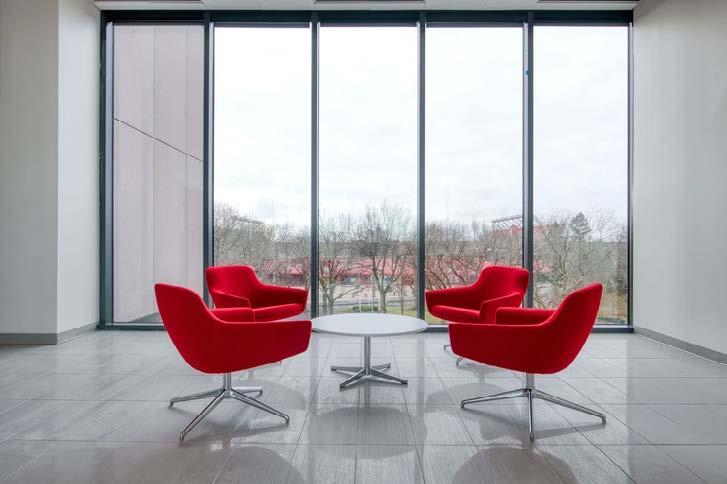

by Tracy Woods, Franchise Development Manager, Mad Science & Crayola Imaginary Arts Academy

When you think about the future of education, enrichment, and community impact, one thing is clear: creativity is no longer a “nice-to-have” - it’s an essential skill. From medical breakthroughs to scientific discoveries to new ways of connecting across generations, creativity drives innovation. And the next generation will need it more than ever.
That’s exactly why Crayola® Imagine Arts Academy™, powered by the trusted strength of Crayola® products and backed by 40 years of STEM expertise from Mad Science®, is inspiring the next wave of creative thinkers,
problem solvers, and leaders.
The theme of this issue - seniors, medical, and what’s next - might not seem like a natural fit with children’s enrichment at first glance. But here’s the connection: the same creativity that fuels children’s growth is also what powers tomorrow’s health innovations, medical solutions, and even the arts that keep communities vibrant across all ages.
Doctors and scientists need creativity just as much as artists do. In fact, one of the key lessons students learn in our programs is that creativity is the common thread between both art and science. Whether it’s developing a new vaccine, designing prosthetics, or painting a mural that brings joy to a community center, creative thinking is what pushes humanity forward.
By helping children build confidence in their own creativity, Crayola® Imagine Arts Academy™ franchisees
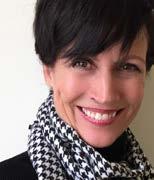
aren’t just running businesses - they’re shaping the future workforce and empowering kids to see themselves as changemakers.
When people hear “art programs,” they often picture paint, glue, and crafts. At Crayola® Imagine Arts Academy™, our programs go far beyond that. We invite kids to explore big ideas and think deeply while expressing themselves.
• Artist’s Passport takes children on a journey around the world, helping them experience global cultures while building empathy and understanding.
• Wild World connects art with conservation, inspiring kids to see the importance of protecting wildlife and our planet.
• Legends & Lore taps into storytelling and imagination, helping students bring mythical creatures and cultural legends to life. Every project is hands-on, curiosity-driven, and designed to spark those unforgettable
“a-ha!” moments that last long after the paint dries.
One of the greatest strengths of Crayola® Imagine Arts Academy™ is the partnership behind it. Crayola® has been a household name for more than a century, trusted by parents and educators alike. Their products bring instant credibility and joy to our programs.
Pair that with Mad Science® - a global leader in STEM education with 40 years of franchise experience - and you’ve got a proven model for success. Franchisees benefit from two powerhouse brands, extensive training, turnkey programming, and marketing support designed to help them thrive.
For aspiring entrepreneurs, the question isn’t just “what business should I start?” - It’s “what business will truly make a difference?”
Crayola® Imagine Arts Academy™ franchisees are making a real impact in their communities. They are:
• Providing meaningful enrichment at a time when parents are actively seeking programs that go beyond screens.
• Filling a vital need in schools, camps, and community organizations that want to offer high-quality creative programming.
• Creating businesses with
heart, where every class delivered helps kids build confidence, empathy, and imagination.
• Standing out in the market, thanks to exclusive Crayola® partnerships and proven brand recognition.
For many franchise owners, this is more than a business - it’s a mission.
From after-school programs to camps, in-school workshops, special events and birthday parties, you can build a diverse, year-round business.
As we think about what’s next for our world - whether in medicine, technology, or the ways we care for an aging population - creativity will remain at the core.
Communities need leaders who can nurture it, and children need mentors who can inspire it.
That’s the opportunity Crayola™ Imagine Arts Academy™ offers to franchisees: the chance to run a business that’s not only profitable but deeply purposeful.
Now, there’s no better time to join us. In celebration of Mad Science’s 40th anniversary, we’re offering a limitedtime 40% discount on the franchise fee. It’s our way of making it even easier for passionate, communityminded entrepreneurs to step into ownership and bring this


unique brand to their local markets.
If you’ve been waiting for the right moment to combine your entrepreneurial dreams with a meaningful mission, this is it. With the strength of Crayola® and Mad Science® behind you, you’ll have everything you need to build a business that inspires children, empowers communities, and shapes the future.
Because when kids learn to see themselves as both artists and scientists, there’s no limit to what they can imagine - or what’s next.
Opportunities across the US and Canada. Visit https://www. imagineartsacademy.com/ franchising
Phone 1-833-204-6777
Tracy Woods is the Franchise Development Manager for Mad Science® and Crayola® Imagine Arts Academy™, helping entrepreneurs build meaningful, communityfocused businesses. With a passion for kids, creativity, and franchising, she connects driven individuals with opportunities that spark curiosity and make a real impact.
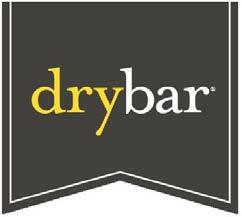
The Drybar® brand is the hair-care blowout category creator and category leader, delivering more than beautiful hair in 45 minutes. It’s the experience, the happiness and the confidence women feel after a fresh dose at a Drybar shop! Celebrating 20+ years as the industry disrupter, Drybar shops aren’t traditional hair salons, it's the answer to the quest to look and feel good. It’s tagline says it best: No cuts. No color. Just blowouts. With more than 155 shops across the USA and 100+ in development nationwide, the Drybar brand has exploded into a nationally-recognized, highly sought-after franchise

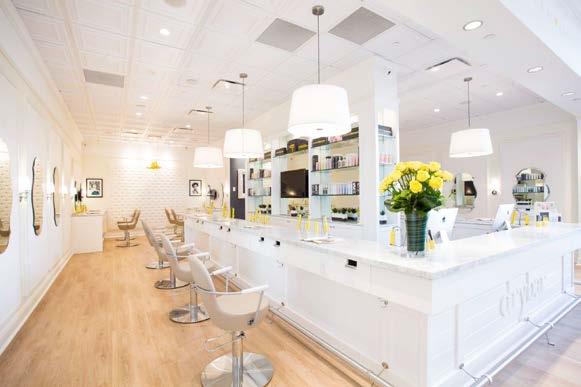

Dedicated to serving the growing needs of beauty and wellness-conscious consumers, WellBiz Brands portfolio of brands offers franchise opportunities with recurring revenue membership models, tech-centered infrastructure and light-asset investments.
Explore the brand portfolio today! (WellBizBrands.com)




● Category CREATOR and Category LEADER
● Recurring Revenue Membership Model
● Appointment-Based Service
● Proprietary Process and Styles
INVESTMENT
$490,166 - $856,824*
$1,508,396* (Top 10 2022)

500+ available territories! 46 states – Ask today! Pacific Northwest, Northeast, South & Midwest 155+ Locations Worldwide! 100+ Under Development
FRANCHISED BY


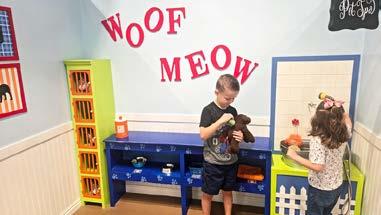

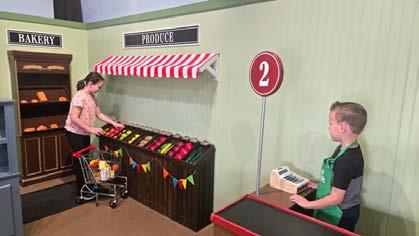
Healthy eating is not a trend you flirt with in January. It is the engine that keeps you moving as the years pile up. As we age, diet quality shows up in real ways: energy, recovery time, joint comfort, and the steadiness to work, travel, and enjoy time with family. That is why the “better-for-you” category in franchising is not a niche. It is the main event, and the brands that make healthy food simple, tasty, and affordable will keep winning. Enter Mahana Fresh, a fastcasual concept built for people who want choice without giving up flavor. The model is straightforward: build-yourown bowls with greens, rice or noodles, stack on vegetables and proteins, finish with sauces, and walk out feeling good instead of weighed down. Signature bowls keep it easy for guests who want a donefor-you option, and the menu leans gluten-friendly with clear, plain language. This is functional food presented with everyday appeal, not a lecture. (mahanafresh.com)
Behind the brand is founder Dave Wood, a franchise veteran whose career began with Domino’s in the early 1980s. He started as a delivery driver in Chapel Hill, managed stores, helped run a large franchise group, and then became a Domino’s franchisee himself. After decades in the system,

he took his experience and built Mahana Fresh around fresh prep, simple operations, and repeatable service standards. That practical arc matters. Operators can feel when a playbook is written by someone who has run shifts, handled Friday-night rush, and lived with P&L reality. (1851 Franchise, Fast Casual Executive Summit)
Wood’s story also explains the brand’s “healthy without
hassle” posture. Domino’s taught speed, accuracy, and unit economics. Mahana Fresh layers those habits onto a menu that speaks to today’s guest: vegetables that don’t taste like homework, proteins cooked clean, and sauces that pull their weight. The catering setup hits the same note. Build-your-own buffet trays, family meals, and signature bowl packs let office managers and youth teams feed a
crowd without the post-meal slump. That versatility expands dayparts and corporate orders, a quiet growth lever many concepts overlook. (mahanafresh.com)
The brand’s momentum picked up extra fuel when Kyle Kuzma joined as an investor and multi-unit developer. Kuzma’s move was not a vanity play. He signed a franchise expansion deal and began opening locations, including in Virginia near his hometown, with additional development on the roadmap. Sports stars often back restaurants for lifestyle reasons. Kuzma did it for growth, aiming to put more healthy bowls in more neighborhoods and to help scale a system that already knows how to run. For franchise candidates, his involvement is a signal: the story travels, and the guest promise translates across markets. (PR Newswire, AfroTech)
The décor matches the name — Mahana evokes warmth — but the real headline is operational: a footprint that fits power centers and suburban retail, a service line that moves, and a menu that plays well with digital orders. That mix positions Mahana Fresh to grow where families live, shop, and work. (Fast Casual, Prince William Living)
So why does this matter to the seniors and medical theme this month? Because aging well is about patterns, not perfection. Most people do not want a clinical program. They want accessible places to eat that nudge them toward better choices. A bowl concept that


normalizes vegetables, offers lean proteins, and lets you dial sauces and carbs up or down is a pattern machine. Pair that with clear nutrition cues and gluten-friendly defaults, and you have a restaurant that earns repeat visits from older guests, their adult children, and the grandkids who want noodles. That crossgenerational appeal is gold for comp sales and community trust. (mahanafresh.com)
From a franchising perspective, the category tailwinds are strong. Consumers are trading for quality and value at the same time. They want food that feels fresh, travels well, and lands under a reasonable receipt total. Operators want units with sane labor models, straightforward training, and menus that can flex with supply. Healthy fast casual checks those boxes. Mahana Fresh’s system messaging underscores those elements:
a consistent real-estate approach, support through site selection and leasing, and a brand voice built around “feel-good food” rather than fads. That is the kind of foundation that holds up in good and rough cycles alike. (mahanafresh.com)
Look ahead and the opportunity widens. Hospitals, PT clinics, and senior-living operators are leaning into wellness partnerships. City parks and youth sports calendars are booked. Employers are subsidizing better food at work. A franchise that can feed a team meeting at noon, a soccer sideline at five, and a couple on a quiet Tuesday has the repetition and margin profile you want. Add a recognizable investor who puts a spotlight on the brand, and you gain the earned media and pipeline bump that drive territory momentum. (PR Newswire)
For Franchise Journal readers, the takeaway is simple. Healthy dining will keep compounding. The winners will be brands that remove friction for guests and owners. Mahana Fresh sits squarely in that lane: real food, bright flavors, clear value, and an operating model shaped by decades of franchise leadership. That combination is built for scale. If you are evaluating concepts for the next decade, put this one on your list. It serves real needs, it reads well in every market, and it gives communities a daily way to eat a little better without thinking too hard about it. That is how you build long-term growth — one bowl at a time.










